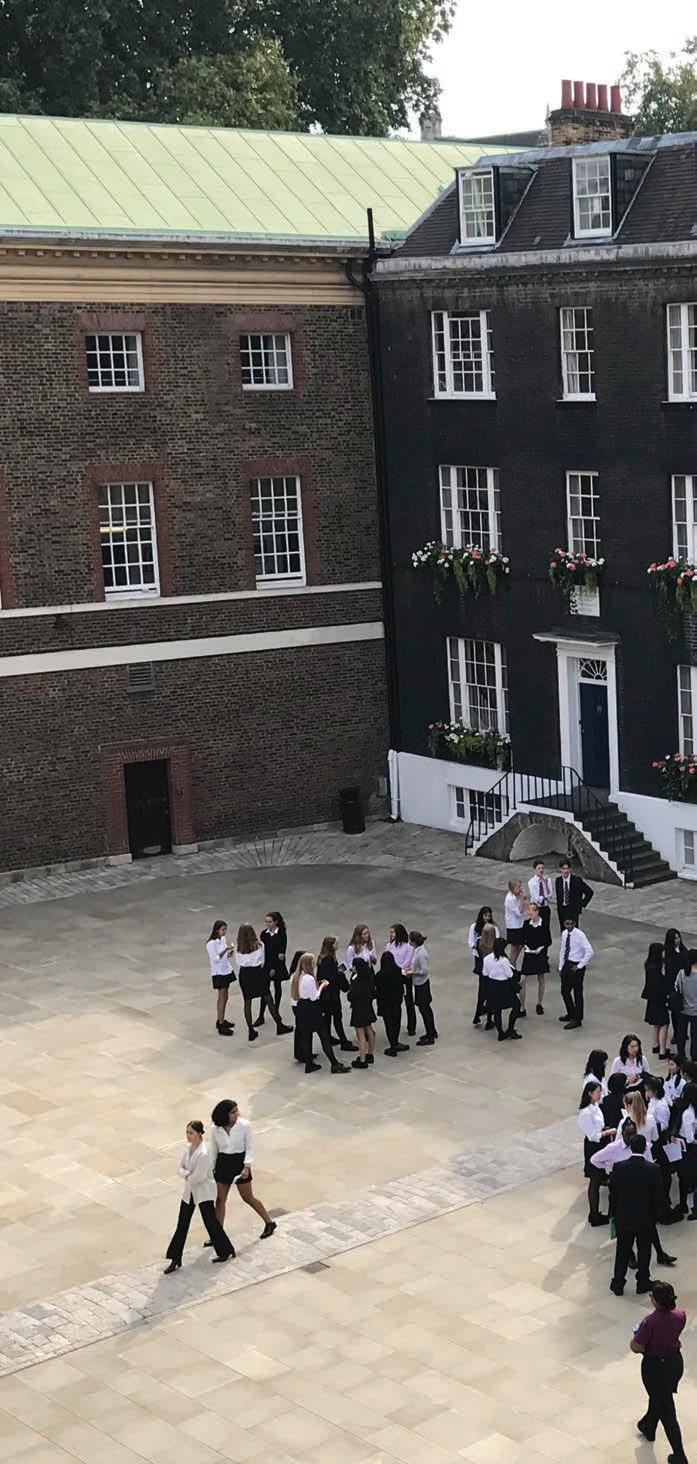THE ELIZABETHAN












I grew up a little differently to most of you because I went to school in China. Our way of life is very different politically and socially. For example, fewer than 15% of Chinese people are religious. So, what binds us together?
One part of an answer is found in Confucianism, a philosophical and ethical framework that guides Chinese morality. Like Christianity in the UK, even though it may not be overtly practised, it permeates our history and national heritage.
Confucianism always taught that existence begins and ends with self-examination; the objective is to attain inner peace that brings wider social harmony. In the Christian tradition, God seems to be without, a figure that guides you, a figure you must obey.
However, I have come to see that these ideas are not so different. Both cultures share what I believe is most important. That is love.
We are taught to love; love ourselves, the people around us and our whole world. We are taught to be kind and charitable, because regardless of creed these are the things that matter. What is also beautiful to me is the way both cultures teach forgiveness. To put right a wrong with gentleness and benevolence is powerful. The words “forgive us our trespasses, as we forgive those that trespass against us” embody a shared human sentiment that I hope none of us will forget; it is a path to peace and belonging.
Since I came to the UK, I have been looking for bridges back to where I come from, in the hope that they will lead me forwards. The way Confucian and Christian frameworks overlap has become clear to me. There is grace in their unity, and I hope this grace will extend to all of us.
by Michael Zhang (RR)Back in Year 7, I went to Cleveland, Ohio, on a school exchange. One thing I remember was the pupils’ independence. They were free to do whatever they wanted, such as going camping at the weekends and even travelling with friends to another country.
Recently, through social media, I have noticed that most of them have moved away from home. One of my American friends told me that it is considered shameful for young adults to live with their parents when they have graduated.
From a rather traditional Chinese family, this has stirred confusion in my mind, as I grew up to know that I have to prioritise family values and decisions over the individual. To me, living with my family is not reliance, but unity. Supporting my parents when they age is a glorious duty, not a repayment. In modern western society, however, personal development seems always to

be the priority, and what our family has worked to provide us with seems to be taken for granted.
Like my American friends, many of us will probably move far away from home as we pursue a career. But is there something about our family life that we have always neglected and have not appreciated that we might lose? In seeking our independence, will we still be able to “Honour thy father and mother”?
by Vanessa Ip (LL)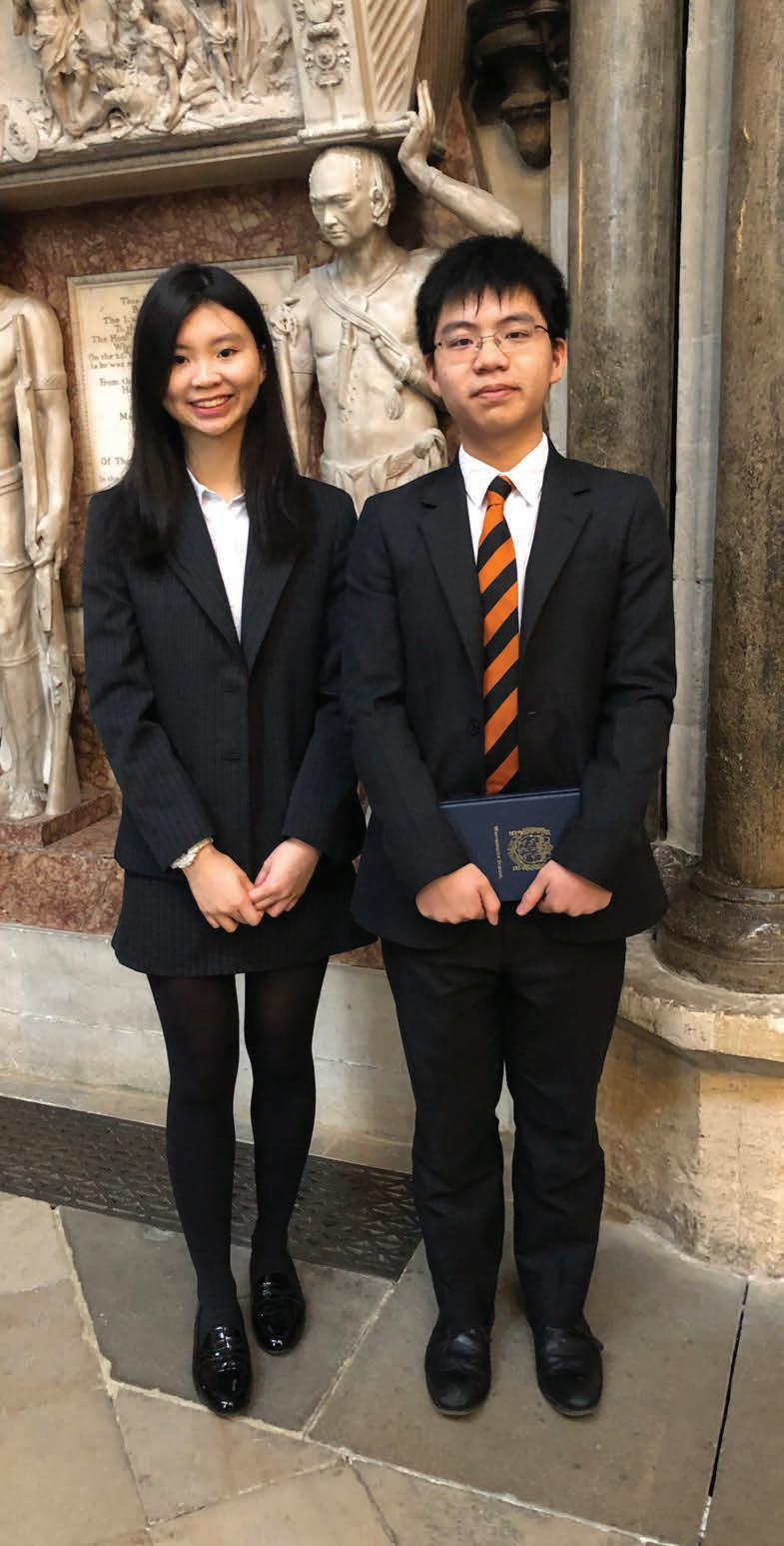
 by Rhiannon Jones-Hopkins, Development Officer
by Rhiannon Jones-Hopkins, Development Officer
Through this Campaign, we aim to transform the lives of as many young people as possible and to enrich the experience of every pupil at Westminster in the process.
The Westminster School Campaign is a declaration of the School’s commitment to providing lifechanging opportunities to young people who show exceptional academic ability, passion and potential for learning, regardless of their financial circumstances. Our ambition is to become truly needs blind, so that any young person can gain an outstanding education based on merit alone.
Westminster School pupils are characterised by a strongly developed critical capacity, intellectual curiosity and a broad cross-cultural understanding, underpinned by a strong sense of their own responsibility to make a difference. An education imbued with a strong commitment to excellence, achieving one’s greatest potential and free thinking, produces people who innovate, challenge norms and break through barriers. An investment in young people from less privileged backgrounds to study at Westminster School, is a direct social investment with immediate and long-term
impact. It will ensure that those who have the ability to advance, enrich and revolutionise our society are never prevented from accessing the tools and resources to do so.
It is passion for education that has defined Westminster since its inception; a dedication to the exploration of new ideas and keeping a healthy appetite for innovation and a demand that we remain curious, independently minded and principled.
When we choose to cast a light on the clear link between the academic traditions of questioning and challenging the status quo, and the deep moral introspection that develops, the necessity of this Campaign reveals itself. When the School was re-founded by Elizabeth I in 1560, specifically to educate “40 poor scholars”, the charitable roots of the School were planted. Supporting the underprivileged has been at the heart of the School’s ethos from its earliest beginnings. We are committed to the continuation of this tradition and are determined to

create a sustainable source of funding to support gifted and deserving young people for centuries to come.
But this is about more than returning to our ideological roots; it is about determining our future as well. The Campaign and its connected schemes are pioneering an approach to incoming pupils that emphasises a true meritocracy and fosters an environment of service in the school community. It is no good teaching our pupils to be egalitarian and conscientious members of society, if we do not also acknowledge that for some talented pupils across London, the fees for Westminster are a deep deterrent, indeed often an insurmountable barrier. The point of the Campaign is to make sure that the School doesn’t miss out on exceptional ability across all academic fields, simply because a child’s financial circumstances make paying the fees impossible.
When asked what the Campaign means to the Head Master Patrick Derham OBE, his personal links to the cause are obvious. As a young man, Mr Derham’s life was changed by a bursary, something he has never taken for granted, nor forgotten. In
fact, what initially drew him to Westminster School in 2014 was that “Widening access is at the heart of Westminster’s DNA. In my time meeting many members of the Westminster community, alumni and parents, it’s that issue above all else that really resonates with them. Here is a School that at its core is not elitist, not snobbish, but a school that is outward facing and really wanting to be representative of society at large.”
The Campaign benefits from having a passionate advocate for it in the highest office of the School, and Mr Derham’s own life story is testament to the life-changing effect that a bursary can have. Although there is a long tradition of bursary provision at Westminster School and in the independent school sector as a whole, what the School currently hopes to revolutionise is the approach to finding young people who could benefit from one. It is our aim that pupils across London, before they even apply, have resources made available to them that demystify and decode the process of applying to outstanding independent schools, and are supported throughout the entire application experience.
The academic standards and entry requirements of Westminster are exceptional for a reason. Like a flower that only blossoms under certain extreme circumstances, the pupils who excel here must relish a challenging curriculum and thrive under demanding academic exercise. It is important that throughout the Campaign we identify prospective pupils who would genuinely benefit from an education here, and welcome them to a school that recognises their unique and specific needs.
The opportunities that bursaries offer pupils go far beyond the traditional academic curriculum; they provide chances for young musicians, actors, athletes and activists to honour their passions and redefine for themselves what they see as possible. Education goes far beyond what you learn in a classroom, and by opening up Westminster to more pupils from different cultures, there is an opportunity to offer all the pupils a chance to learn from each other and expand their horizons.
“Having been born and raised in the East End of London, being accepted into Westminster School instilled within me the confidence that I can achieve anything regardless of social class, family background or upbringing. The School’s support to help prepare me for my application to medical school was phenomenal; as a direct consequence of this I now regularly help my local university with their ‘access to medicine’ programme, helping able pupils from deprived backgrounds. I have not stopped challenging myself since Westminster and am on track to become an academic vascular surgeon, a rare breed of doctor.”
Abdul Waduud (WW, 2005-07), Bursary Recipient
We truly believe that this Campaign, which will continue for at least a generation of incoming pupils, will enrich the Westminster community, not just through the incoming bursary recipients, but by further promoting a philanthropic and communityspirited mind-set within young people who attend the School. This is about so much more than giving opportunities to those who are underprivileged; it is also about a wider cultural change at the heart of the School, where meritocracy and fairness are embedded into everything that we do, including the application process.
In 2016, the School established Platform, a scheme aimed at identifying talented prospective pupils from state schools across some of the most deprived areas of London. Year 5 boys and girls attend Saturday morning classes and activities at Westminster Under School throughout the year, which will prepare them for entrance exams to independent schools and academically selective free schools. Support is also given to their parents with the application process. The scheme is proving to be incredibly successful, so successful in fact that Platform+ was launched last year, initially focusing on STEM subjects, and aimed at preparing and helping GCSE-level pupils to achieve their full potential through Sixth Form applications.
Through purposefully seeking out pupils from underprivileged backgrounds who would flourish at Westminster, the School’s impact will grow from classroom to community and beyond. We already know that
raising the academic and ethical expectations of young people is an important tool in furnishing them with a lifelong self-respect that evolves into a respect for society and the rest of the world. By further investing in gifted young people with diverse backgrounds, and nurturing their talents and unique inclinations, we can ensure that in years to come, the benefits of a Westminster education will be felt across all industries; private and public, creative and otherwise. The global impact that Westminster already has can only be amplified by enriching our pupil intake with as many diverse individuals as possible, who will use their unique backgrounds and education to change the world for the better.
We aim to make Westminster a world-leading educational institution that redefines what an independent school can and should accomplish, for its pupils and beyond. We are incredibly grateful for the time and effort that our staff have put into these pilot schemes and hope that their belief in the Campaign and its impact will be supported by the Westminster community as a whole.
In practical terms, the Campaign has two main funds: The Ben Jonson Foundation – Westminster’s first ever dedicated endowment fund for means-tested bursaries – and The School Bursary Fund, accessible at any time. These two branches allow the School both to strengthen its immediate ability to offer bursary support, and to ensure that for generations to come, it retains and increases its ability to do so.
The Westminster School Campaign was launched on 9 th October 2018 and has already shown that it resonates deeply with the community, with donations being gratefully received before, during and after the Campaign launch. We must keep up momentum to reach our admittedly ambitious goals, but we know that with the support of our wider community, Westminster will lead the way in making an outstanding education accessible for all. It is a long road ahead, one that Mr Derham acknowledged will be an ongoing legacy –“I’m conscious that it will be a long-term process. It won’t be achieved in my time as Head Master, or indeed my lifetime, but in years to come October 9 th 2018 will be seen as a real turning point in the School’s history.”
There are many ways to get involved with The Westminster School Campaign: we are looking for advice, support with hosting events and help in spreading the word about the momentous change we are making. Financial support is also crucial, so we ask everyone to consider making a donation. No matter how large or small, we welcome all contributions and encourage you to visit our website to see our Campaign video, and see the various ways the whole community can join in with this Campaign. We are truly grateful for the support that we continue to receive for the Campaign, and look forward to speaking to as many of you as possible in the months to come about how you can get involved.
Former bursary recipient Peter Smith (RR, 2004-09) who now works at Westminster School as a Maths teacher, explains the impact of his time at School, and the bursary that made it possible:

“What made my time at Westminster was how I was welcomed into a community where if you shine academically, it doesn’t matter what your background is or how much money your parents have. The bursary caused my life to take a completely different direction and the fact that I now get to work in the same environment every day is a great privilege and source of great pride.”
What better endorsement of the notion that an investment in a bursary recipient is an investment into the School, long term; in this case, directly back into the pupils that Peter now teaches. www.westminster.org.uk/ support_us

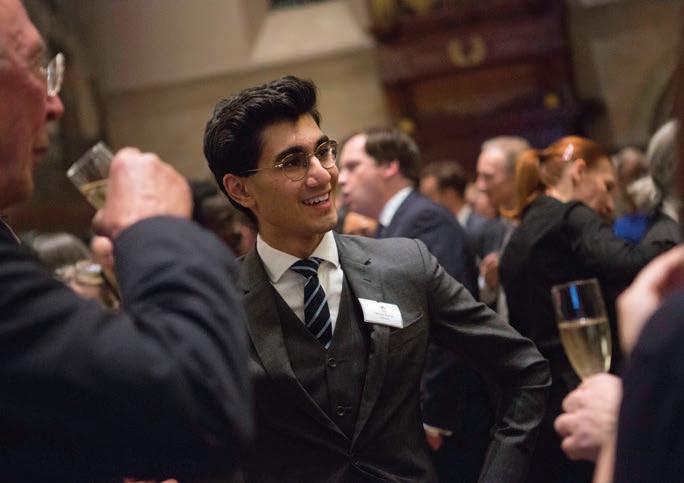
 by Brian Smith, Head of Wellbeing
by Brian Smith, Head of Wellbeing
I remember my first term as a teacher of Modern Languages at Westminster in 1996. The creation of Head of Wellbeing would have been met, in those days, with bafflement and scepticism.
But schools have always been concerned with more than academic achievement, and much of the historic structure of Westminster speaks to the nurturing of the wellbeing of the community – a modern turn of phrase for an age-old idea. In Elizabeth’s charter of 1560, she provides for forty Scholars and two Masters: the Scholars are “tender shoots in the wood of our state [who] shall be liberally instructed in good books”. The pupils come first, and both their vulnerability and potential are indicated: education is their nourishment.
Today we read one mental health story after another. Some are helpful – both by raising awareness (mental health is us all) and by reducing stigma (everyone has difficult times). Other stories cause alarm, confronting us with shocking statistics and evoking an “epidemic”. This can be disempowering for both parents and teachers who may feel reticent about the conversations they instinctively want to initiate, as though the tender shoots might break
if not handled optimally. But when the overarching climate is positive and one in which adults extend themselves intellectually and psychologically to help those in their care – then there is more room to manoeuvre.
I hope we are strengthening and developing the tender shoots. The rhythms of the week (with Abbey and Latin prayers) point to something beyond the self, which binds us together. Expeditions, volunteering, Alston, the huge range of Options and activities allow pupils to explore emerging interests. The House system affirms belonging and provides a social network with Tutors, Housemasters and Matrons backing pupils all the way, while Sister Kate and her team in the Surgery, Chaplain Reverend Williams and Counsellor Dermot Reilly are there for all of us.
The Wellbeing programme helps pupils to think about issues preventatively, with teachers giving the lead where necessary but also
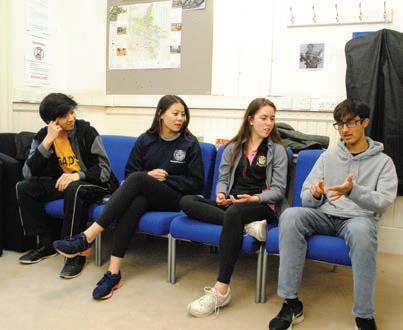

willing to understand the reality of our pupils’ lives in this increasingly competitive and technologically driven world. And Mindfulness is available for those who wish to sit in stillness. Most importantly, the pupils themselves take a range of initiatives and get to see the results of their explorations.
We are not in the business of being “successful” solely in the terms laid down by universities and exam boards. We want to help our pupils to set the stage for their own fulfilling lives. Idealistic yes, but schools are good places for ideals and pupils rise to them. We don’t have neat answers, and life can indeed feel very hard at times. But our values and history, underpinned by a sense of the sacred dignity of each of us, can provide a mainstay during the choppy times of adolescence and the ever shifting political landscape.

As soon as I received an email from my housemaster asking for participants for the Greaze, I volunteered. The next thing I knew, I was in Dungeons Café with the other 32 competitors, three boys from each house, minutes before the competition. We were given a short briefing, “don’t get too hurt”, then advanced up School.
It was full of people and I found myself haphazardly looking around. My friend and I had jokingly agreed that she would recite verses from the Bible in order to bring me good luck, and had gone to the Library to find one. With that in mind I looked for her, but no luck. Although I had spent hours up School for various events and Latin Prayers, School seemed so foreign, and I had trouble finding my bearings. I suddenly saw where the chef was and realised that there were only seconds left. He threw the pancake. It hit the wall and bounced into the hands of a boy in Remove. Instinct kicked in, and I grabbed the entirety of the pancake from his hands and threw myself on the floor. The next minute and 15 seconds were unexaggeratedly the longest of my life. I shoved the pancake under my blue house shirt and waited. I could feel the weight of two dozen boys, most of whom were considerably bigger than me, on my back. I was panting from the increased heart rate. Soon I realised that my biggest problem would be breathing. There was just no air. The boys were actively trying to get the pancake from me; scratching was their most prominent tactic. I struggled a lot and with my right hand pushed their hands away whilst holding the pancake from over my shirt with my left hand. It wasn’t practical. There were too many of them. They tried grabbing my hands and pulling them away but I persisted. After what seemed like centuries, I heard the whistle. I knew I had won!
What I learned from the Greaze, though significant for me, can be summarised in just a few lines. I learned the importance of pushing myself out of my comfort zone and embracing new experiences with curiosity, not fear. I truly hope that I can apply this to my life, and grab onto opportunities and new prospects harder than any pancake.
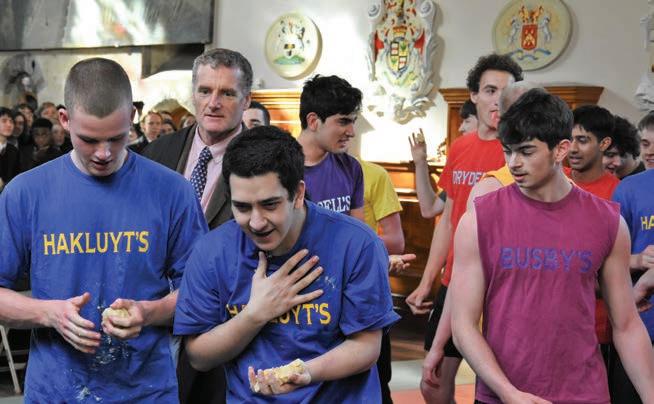

This year has seen many changes in College Hall. Keith Tompkins bids a fond farewell to Frederic Lottin, the face of mealtimes for many years:
Friendly Fred: ‘Would you like an egg?’
Firm Fred: ‘Close ze door!’
Ferocious Fred: ‘Use ze tongs!’
Presiding over the Full English Breakfast on daily offer in College Hall for considerably more than a decade has been Fred, serving and entertaining us all with inimitable Gallic panache. His characteristic resonating questions and imperatives – as above – have become ingrained in the mediaeval timbers of the dining hall, and will remain firmly in our collective memory for years to come. Since Fred’s departure in March, although breakfast is still appreciated, it has become a much more functional affair. Without the ironic observations, the bons mots, the wry humour to cheer us along, we are dull company.
Prior to his time at Westminster, Fred was sommelier at The Ritz for several years, and during his working life, he has served numerous heads of state at banquets, including HM The Queen when she attended a lunch in College Hall in 2010. Yet, whether serving the great and the good, or an inky-fingered Fifth Form pupil at Westminster, he has worked with care, compassion and dignity. As a personal mission, he has done much to improve the manners of all Westminsters over the years: encouraging eye contact and courteous verbal responses from them whilst queuing at the servery, and requiring earphones and mobiles to be out of sight on entry to the dining hall. How will such values be imparted now? We all sorely miss Fred. All thanks to him for his dedication over the years...
The Under Master and the Master of the Queen’s Scholars
When Elizabeth I established the School in 1560, her statutes laid out that Westminster School should be run by two Masters: a Head Master and an Under Master, writes Tom Edlin.
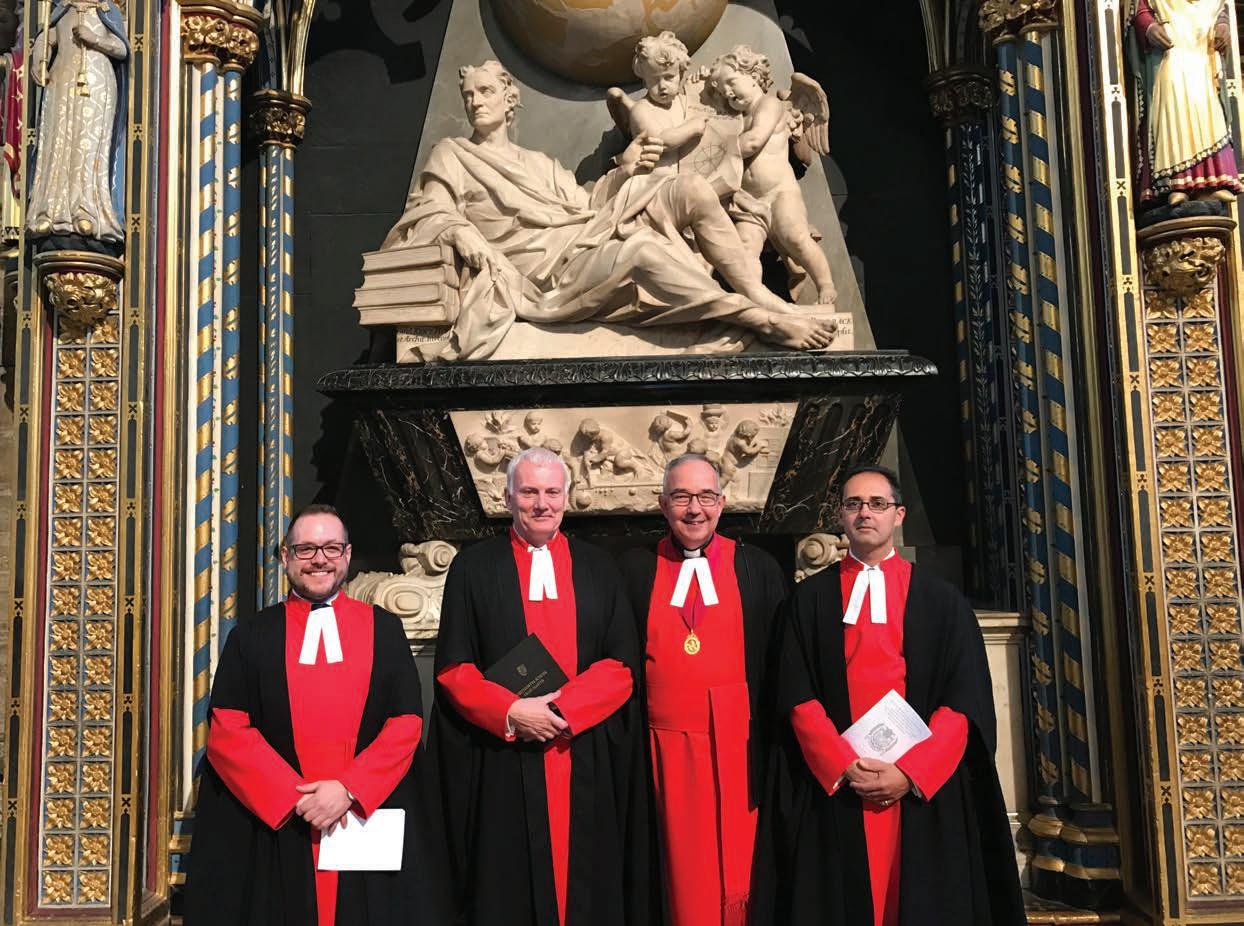
The Under Master traditionally held three roles: he was in charge of the Lower School, served as the Head Master’s deputy when required, and ran College. Thus, the two positions have a shared history. At times, the Under Master ran into conflict with his immediate superior (as when Edward Bagshawe fell out with Busby), while at others the Under Master essentially ran the school (as did Thomas Knipe in Busby’s final years...).
The ‘statutable’ office of Under Master was abolished in 1880, and College was put in the hands of a Master of the Queen’s (or King’s, from 1901) Scholars. In 1949, the title of Under Master was resurrected, for John Carleton. His successors continued simultaneously serving as Under Master and Master of the Queen’s Scholars, until the roles were split in 1987, when Jim Cogan was succeeded as Master of the QSS by Jonathan Katz, and then, a year later, as Under Master by Tristram Jones-Parry. It is only in recent times that the position has not been one and the same.
Since TJ-P, the “modern” role of Under Master (safeguarding, welfare, discipline & being the Head Master’s deputy) has continued to evolve in the hands of Eddie Smith, Gary Savage, Martin Boulton, Deneal Smith and now James Kazi, who is the first English teacher in the role since Cogan. College has thrived under the regimes of Jonathan Katz, Frances Ramsey, Mark Feltham, and now Gareth Mann.
The Under Master and Master of the Queen’s Scholars are formally inducted into the College of the Abbey by the Dean, and led by him to their allocated stalls in the Quire. In September 2018, with James Kazi appointed as Under Master, and Gareth Mann as Master of the Queen’s Scholars, Westminster held the first joint induction of the two positions in the Abbey.
Normally, the Under Master saying “drink as much as you can” may be seen as proof that our institutions have succumbed to subversion. Quite the opposite. James Kazi’s background in the wine trade, along with study at Cambridge, and experience with the military cadet forces, makes him a contrasting figure to the mathematicians and physicists who have held the post in recent years. Head Boy Viren Shetty (QS) spoke to him about literature, his new role, and wine:
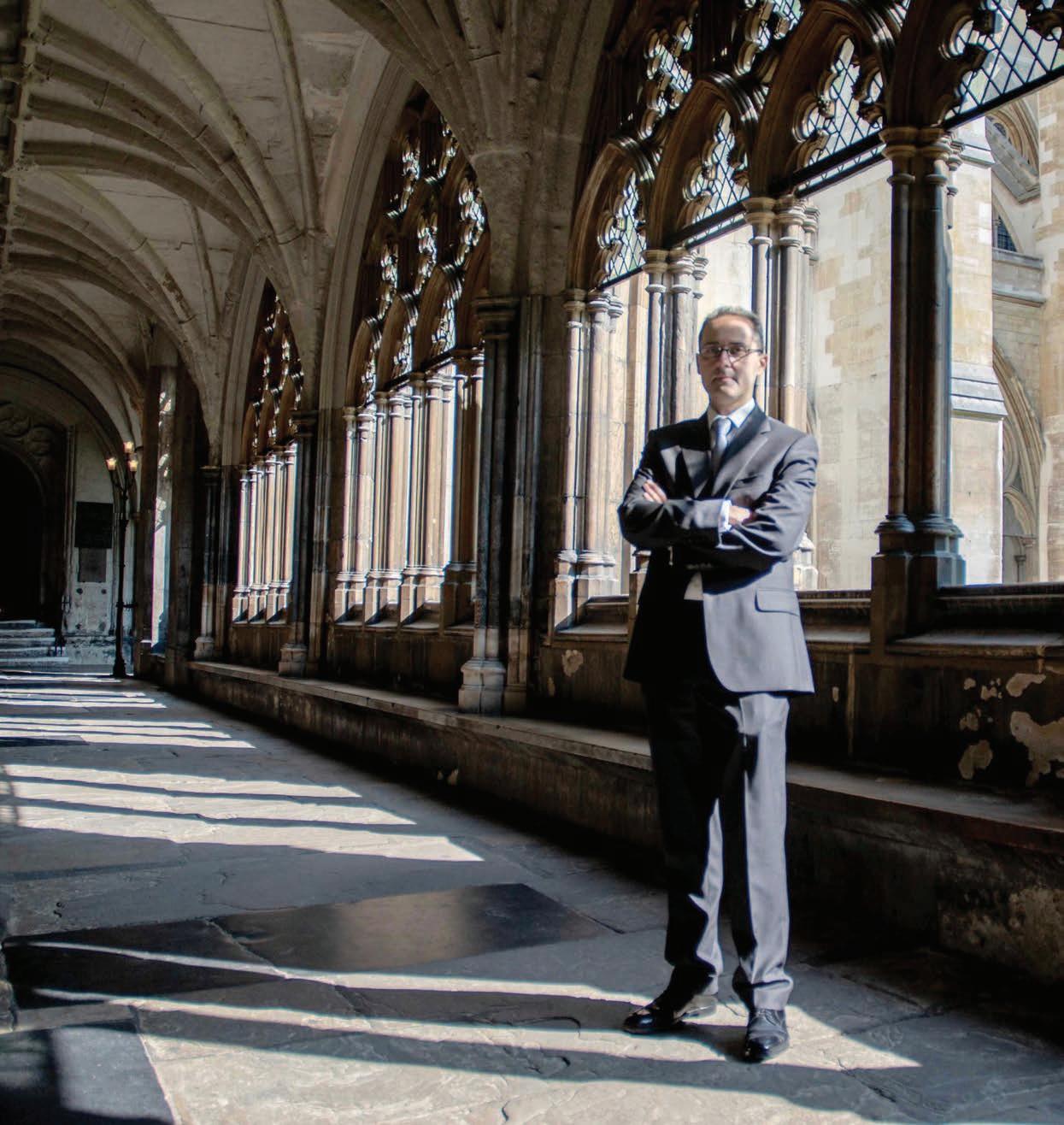
VS: What makes Westminster a different place to places you’ve worked at before?
JHK: Quite a lot, actually! Some people think that a boarding school is like any other boarding school, but actually every school is different. In Westminster’s case, it has a very interesting mix of pupils within the institution, in terms of its metropolitan nature, so that brings an extra dimension. And then there’s the calibre of the Common Room, the staff and the pupils.
How do you see the role of Under Master, a job description if you will? That’s pretty tricky, because it’s one of those roles which has to be incredibly flexible. Yes, there is a job description, but there’s the unwritten job description which means that anything that crosses your threshold is your responsibility. Obviously, that’s very refreshing in many ways, but it’s also quite challenging! At one level, it’s deputising for the Head Master, but another part of my role is as Designated Safeguarding Lead and being responsible for the pastoral and disciplinary sides of the School. And, of course, I’m also a teacher of English. There’s plenty more to it than that, though – it’s about promoting the School’s philosophy, and looking after policy and compliance. In short, it’s multifaceted.
What’s your favourite part of that role?
I don’t think that I’ve got a favourite part of it – it’s the variety of all of those parts that I find so interesting.
You’ve talked about being a teacher of English. If you were on a desert island, and you could take one book, one poet’s collected works, and one play, what would they be?
I’m quietly obsessed by Evelyn Waugh and Brideshead Revisited, and that sense of a time of flux: it’s fascinated me endlessly. Being an Anglican and a student of literature, I would have John Milton’s works, primarily because I would want to have Paradise Lost with me, without question. Drama very much depends on my mood: I see a lot of drama, and try to go to the theatre about once a week. If there’s one play
I could take with me, that really would depend on the point at which I was departing. If you want to know what I’d really love to go to see right now, I’d be very happy to see The Inheritance again. It was premiered at the Young Vic last year, and was back in the West End last January. That was one of the most powerful pieces of theatre I’ve seen in the last few months.
If you could only teach one more text in your life?
Paradise Lost
What’s your favourite memory from your own time at school? My favourite memory is probably not associated with a particular incident, but with a particular teacher who inspired me enormously. He taught me for five years, consistently, and I was very lucky. Mr Broadbent was an absolutely phenomenal French teacher, but more than that he did so much more. He was a member of the board of governors of the Grand Theatre in Blackpool, which had just been saved from closure; he was in charge of the Senior Club (which was where you could go for a drink in the evening); he organised all sorts of functions and events to open up my school to parents and visitors, and he was well ahead of his time in this area. I spent about three years being scared witless of him, but two years in absolute awe of him: his love of life, his love of literature, his love of French, and his real passion for sharing that with young people. So not one particular incident, but an accumulation of them with him.
What’s been your highlight of your first year as Under Master?
I’m not flattering to deceive at all, but working with the Heads of School has been a real highlight for me. I genuinely do mean that – I think they’ve provided me with an extraordinary vista onto Westminster life, and I feel that we’ve worked together so positively, too.
You’ve worked with cadet forces a lot. What lessons that you’ve learnt there could be applied to Westminster?
Leadership is actually my primary focus in what I do with the RAF and cadet forces at Cranwell, where I run
the national Air Cadet Leadership Courses every summer. I actually did that course as a cadet, and some of the things that I learnt there I still try to practise now. I talked a little bit about that at the first Latin Prayers that I spoke at, when I explored the nature of leadership, the importance of teamwork, and being collaborative: the whole theory of leadership and the application of it in various contexts is precisely what I do on a day-to-day basis here at Westminster.
Staying on the topic of your past, what’s been the most interesting job you’ve ever done?
My time in the wine trade was fascinating! It was such a quirky group of people, doing such an interesting job, and it was just a wonderful way to live one’s life –although very damaging for the enamel on your teeth!
If you were giving advice to a budding wine enthusiast, what would it be?
This isn’t meant to sound flippant, but drink as much as you can. You actually need to develop your experiences and memories of taste. Reading widely about people’s interpretations of wine is very important, too, as the challenge with any wine-taster is actually putting across your sensory responses (visual, olfactory and gustatory) into verbal form. In short, you need to develop your language!
If you could teach another subject, what would it be? Philosophy.
Finally, what advice would you give to leaving pupils?
I would hope that you would take with you the best of what Westminster has given you, and use that to develop. Use the past in order to project into the future.

DD: So, Mr Mann, for how long have you been teaching at Westminster, and what would you say your favourite part of teaching History is?
GDM: I’ve taught here since 2011, so that’s eight years. I enjoy the fact that Medieval History is studied here so often in the Upper School, and at such a high level. I like the gaps in our evidence for the Middle Ages: I enjoy being able to imagine, and encouraging people who haven’t studied early times before to join the dots about what might have been the case. I like the capacity for pupils to know as much as experts in terms of the sources –that’s quite an unusual situation for any pupil to be in. When studying Modern History, there’s acres of stuff, which one person couldn’t possibly study in a lifetime, but if you’re learning about the role of King Alfred, for example, you can have exactly the same sources in front of you as the published authorities, and your views on them are in many ways just as valid. I think people who come to Westminster having studied modern periods start off thinking “What am I doing? This is all very strange”, but very quickly, because of that empowering push, come to love it.
Of course, you’re the new Master of The Queen’s Scholars, following Mr Feltham. How has that experience been so far?
It’s been fantastic! I feel very lucky to have succeeded Mr Feltham, because he left a very happy House, and left a very positive and cohesive top year
It is perhaps fitting, considering College’s long past, that Gareth Mann, the new Master of the Queen’s Scholars, is an historian. Head Girl Darcy Dixon (HH) spoke to him about History, Top Gun, and a rather persistent rumour:
who have been really helpful to me, making clear when I’ve got things wrong, and equally being nice when I’ve occasionally got things right. I think College is a peculiar institution, and it’s a place I’ve rapidly come to love because it’s the institutional heart of the School. Westminster is now far bigger than College, but in its legal sense, College is the School, still intact from Queen Elizabeth I’s re-founding in 1560. The fact that this heart is still beating, even though there’s been huge change to the School in the centuries since, is both surprising and moving. With the opening of Chengdu Westminster School, and the other schools planned in China over the coming decade or so, having an institutional gravity and knowing where it all started is going to come to matter even more. To be a part of all that I find fascinating.
What is your favourite part of Westminster?
It’s an intangible thing. It’s the irreverence, the fact that pupils don’t tend to stand up when a teacher comes into a room. We don’t expect heavy politeness or affected grace – what we want is an honest interaction about stuff that matters. In the outside world, Westminster has a reputation for being quite brash and quite rude, and I don’t think that’s entirely right. It’s a directness about important things, and to outsiders that can strike people as a bit fresh, and a bit unexpected. As a teacher, it’s energising, because it forces you to be
on your game, have answers, admit when you don’t know, concede that you’re often talking to people who might not know as much as you, but are far cleverer than you. That keeps you young (mentally, at least).
What is your most profound memory of the School?
It was Big Commem last November – my first one as MQS. There is a bit of the Service that the very large congregation does not see. It’s when the Master (who is the least important player), with the Dean, Head Master, various other members of the Abbey community, but most importantly the Scholars – in 2018, all 47 of them –troop alongside Queen Elizabeth I’s (and Queen Mary I’s) tomb in the north aisle of the Lady Chapel, and lay roses. What really got me was the privacy of that moment, combined with the gentility of it – the idea that this School, refounded by Elizabeth I, is still giving thanks for her gift and foresight in a very measured, clear, and personal way: not just prayers on the anniversary of her death, but a staged visit of all the Queen’s Scholars to her grave.
So how did you manage to learn so many languages?
This is a myth – I don’t really know many! I did German at A Level, and I was lucky enough to live in Germany for a good long time while I was at school, which meant that I came back very happy speaking it. That made me think about the way in which knowing another language gives you courage,
together with the confidence that linguistic development can be relatively rapid. Then I was at university and during that time I spent a year at the Ecole Normale Supérieure in Paris, which is where I improved my French. Then I spent a long time in Syria, where I learnt Arabic. These were all stages in life which I didn’t plan at all. Career-wise, I didn’t really know what I was doing until I was perhaps 24 or so, which is embarrassingly late; but that process of finding things out and living outside the UK was also enormous fun and intensely formative. One of the things I always tell pupils here is that a lack of clear direction is not a terrible thing, so long as you’re working towards something. It’s admirable when people have a grand plan at an early age, and I certainly had friends for whom that was true, but it was never the case for me. I find journeys, in some ways, more interesting than destinations. And by that, I don’t mean I’m uninterested in where I am now! So: I learnt German, then French, then Arabic. Since 2009 I have worked part-time for the Department for International Development, focusing mainly on the provision of education in post-conflict countries. Projects in Afghanistan took up a substantial part of my time in the early days (working too with excellent charities such as Afghan Connection), but more recently I have been involved with schools for Syrian refugees in Turkey. That required me to learn some Turkish. The School gave me money from ‘Zilkha’, a brilliant fund which is used expressly for the personal development of the staff here, and I had Turkish conversation classes after lessons on Saturdays, often seamlessly including a tour of the best kebab establishments in Stepney. I am in no way fluent in Turkish, but my language-learning has carried on, and I find it to be such a stimulating activity, even if it gets far more difficult as I get older. Last month, I started Greek with Mr Theodosiou, and I look forward to those lessons enormously. I’m useless, but I love it!
This is a very long-winded answer to your question. But I think very strongly that teachers who continue to learn sympathise more instinctively with the difficulties that their pupils find in being taught. I think that it’s very easy, as a teacher, to forget that familiar material was hard to learn in the
first place. We speak from a position of semi-authority because we happen to know more, but we didn’t always!
What is your favourite book of all time?
I can answer this more quickly! It’s a book by Guiseppi Tomasi di Lampedusa called The Leopard. Its plot sounds unpromising: essentially it’s an account of the collapse of a Sicilian nobleman’s world – both in terms of his family and in wider Italian society, too. But the book’s capacity to create visual images is unrivalled, in my view, and it’s no accident that it was turned into a film, starring Burt Lancaster, soon after initial publication. I love the brevity and beauty of The Leopard. I first read it in the course of one day when I happened to be staying on the shores of Lake Tana in Ethiopia: a sharp and wonderful memory, which also includes papaya and avocado smoothies, together with languid afternoon swimming. Books which I read rapidly stay with me in a very particular way.
What is your favourite film of all time?
I think it’s Top Gun ! I can certainly think of artier films, films that appeal to my interest in the Middle East or particular periods of history, but Top Gun has a perfect plot. There’s not a wasted moment in it (with the possible exception of the endless homoerotic volleyball): it’s gripping, and you manage both to hate and love the characters at the same time. I would draw your attention to the figure of Iceman, played by Val Kilmer, who is in some ways contemptible –but you also root for him. You’re gutted when he loses out. Any film that gives you that simultaneous sympathy and hatred for characters is pretty fine. I also think the emotional highs and lows in it are vast – I’ve seen it many times, but when Goose dies, I still cry.
If you could teach another subject, what would it be?
This is really difficult. I just can’t imagine not teaching History! I’ve done a lot of observation of people here who are outstanding teachers, and they always make me wish that I knew more about, say, Chemistry or Music. The Westminster Common Room is filled with really high-level expertise: everyone has their niche. But I couldn’t teach anything else.
The Westminster tradition of questioning is under assault in society at large, and I worry about that. There is a pressure to know pre-packed versions of things, set methods for answering problems or writing essays, and I think that should be resisted forcefully. One of the things I treasure about this school is that I am hardly ever asked “Sir, will this come up in the exam?”. In that question is a loud message: “I am only really interested in material so far as it is tested, and that material does not have a life beyond examinations.” So, my advice: enjoy lessons for the access they give you to strange landscapes and new understandings. Resist the pressure of exams – take them seriously, but then move right on. Read more: the Library is both a beautiful space and a rich and varied collection. The speculative mode here at Westminster, that disinterested scholarship which values things as worth discussing for their own sake, is our lifeblood.
A last question that many people have been asking about you for a very long time! Are you a spy? If I was, I have done the worst possible job at hiding it, which is surely the crucial qualification for being a spy. So no, I’m absolutely not. I am fascinated by the Middle East, I teach the history of that region, and I know something of its current politics. I work sometimes for DfID, which is a government agency sponsoring economic and social programmes in the developing world, and that work can have an intelligence aspect to it, but nothing that would spill James Bond’s martini. What I do is mundane: setting up contracts for the building of schools, dealing with curriculums, appointing headteachers.
Thank you very much!
Thank you – it’s been great!

College
by David Edwardes-KerWith a new Housemaster, new pupils and new Tutors, this year in College promised to be one of change. Indeed, in our first House meeting, a fresh-faced Mr Mann made his inaugural speech, announcing plans for sweeping reform to the bathroom facilities. This was greeted with rapturous applause from the masses – rarely in the last five years have there been more than three working toilets at any one time. However, the funds were not spent quite how we expected: whilst the new neon green shower and toilet doors are certainly aesthetically pleasing, more fundamental issues still remain.
Maybe next year.
On the athletic front, College continues to go from strength to strength. We retained the Chess and MUN Cups with ease, as our first teams showed remarkable dexterity, gesticulation and mental endurance. In House Football, our First XI was in sparkling form, breezing through to the last 16. Against Grant’s, College displayed a tactical masterclass reminiscent of Inter v Barcelona 2010: our double pivot formation, tiki-taka style of play, and numerous offside traps left the opposition bewildered and humiliated. However, it was not our year. After Dion ‘Javier Zanetti’ Huang was outrageously pushed off the ball, Jack Gray bundled in a deflected offside handball to take the win.
Next year lads.
Though College seemed threatened by change at the start of the year, the continuity of House life has been striking. Whether it be belting out amici usque arm in arm at College concert, tensely watching KSI “ending it all” in response to Deji, or never failing to draw attention to a certain Lower Shell’s “figurehugging” pyjama bottoms, College has managed to retain its unique charm. When the Remove were deep in exam season, the Sixth Form seamlessly took over the House duties, such as talking to the Fifth Form in their room every night before bed. I therefore have full confidence that College life will continue to thrive, both next year and beyond.
Floreat!
There have been no natural disasters in Grant’s this year: no flooding (despite the best efforts of the girls’ loos), no fires (despite Raman), and no pestilence or plague (despite a brief return of the adorable House mouse). This kind of solid success really characterises the year in Grant’s, which, led by our very own Mr Fair, flourished from the start. At September Saturday, under Max Hubbard’s capable leadership, we mixed tradition and innovation with cupcakes and a dog show, which proved a tremendous success (despite having to abandon the Best Bitch category following an unfortunate misunderstanding of the eligibility criteria). When it comes to Grant’s famous sporting victories it is literally hard to know where to start. For various reasons it would be impossible to list here the sporting achievements of every Grantite, but honourable mention goes to the Remus Elliot brothers who took the noble sport of House Chess by storm (thwarted only at the last by the pawn-stars of College); Thomas Adamo, whose swift legs carried Grants through Towpath, Bringsty and other assorted cross-country challenges; and Arthur Summers, whose legendary skill at climbing is said to rival even that of Dr AK himself (who presumably now regrets leaving such a sportingly talented House). I am also delighted to report that House Athletics this year saw a 100% increase in Sixth Form participation (thanks to the tireless organisation of Head of Hall Hari Pillai). What the GG Girls’ Netball team lacked in skill or success was more than made up for in enthusiasm, blue warpaint and pizza. And the heroic performance of the GG Boys’ 11-a-side football team under the captaincy of Jack Gray, in a hotly-contested final, saw us relieved of the trouble of polishing the silverware this year.
The musical scene in Grant’s has gone from strength to strength; starting impressively when James Garagnon held St John’s Smith Square spellbound with his stunning performance of the Weber Clarinet Concerto No. 2, and continuing only a few weeks later with the GG House Concert. In this, arguably the highlight of the Almanack, House spirit flowed freely – particularly in the heartfelt whole-house rendition

of Africa by Toto which, according to the Director of Music himself, “brought a tear to the eye of all true music lovers.” (It is perhaps worth noting that the rains down in Africa definitely came with much more torrential vigour from No.2 Little Dean’s Yard than from our friends in Tufton Street). The end of this Election term sees a series of fond farewells for Grant’s, to our wonderfully kind and capable resident tutor Mr Bradshaw (who luckily isn’t taking Luna too far away) and to Ms Syne, without whose delicious homemade birthday cakes, spicy TV commentaries, and apparently limitless affectionate support for all Grantites, it is hoped the House will survive. The Upper Shell and new Sixth Form entrants enjoyed taking part in the traditional Great Grant’s Bake Off at the Cookery School in Little Portland Street this year, and without Max Hubbard the number of critical injuries was brought down to zero. A strong team succeeds the outgoing Removes, with Head Girl Hannah, Monitor Jonny (famous outside Grant’s for his triumphs in prestigious debating competitions in Oxford, Cambridge and Durham, and famous within Grant’s for playing jazz loudly in the bath), Head of House Arthur Pickering, and Peer Supporter Maia Ramambason. Under the very wise and Scottish aegis of Mr Fair, long may Grant’s continue to thrive!
Rigaud’s this year saw an impressive number of events pass through the door of 1 Little Dean’s Yard: some impressive, some downright bizarre, all quintessentially Rigaud’s. The Rigaud’s-Liddell’s House Play, Hotel Paradiso, saw all emotions in the space of an evening. Directed by Alex Foster, and with fine performances by Pandora Mackenzie, Simi Prasad, not to mention the hilarious crossdressing star of the show Nicholas Lazarev, “oh what a night” it was, just don’t mention the doors! Such chaos onstage was often mirrored in Rigaud’s proper, with the House experiencing the explosion of the House Toaster into flames, with a blazing inferno narrowly averted by the quick thinking of Dr Kov. Though toast was mourned, there was a far bigger hole left in the hearts of Rigaudites: that of Matron. Due to illness, Matron was not with us for the whole of the Lent term, and her absence for the beginning of 2019 was painfully felt by the House, empty without her. Though Rigaud’s continued with verve, it is no surprise that the biggest cheer of the year came at her prodigal return to Lower Hall at the start of the Election Term –Rigaud’s is whole once again. While some return, others leave: the end of the year saw the departure of Resident Tutor Mr Lorimer. For the past three years always invariably seen helping with Maths in the Tutor office, joining the boarders for a little Love Island, or around the House with a variety of eccentric slippers, all are thankful for the part he played within Rigaud’s. In sporting matters, Rigaud’s achieved
much across the board, and to impressive standard. We stroked our way to bronze in House Swimming, and putted a silver in House Golf, and Sports Day saw Thomas Kemball taking two seconds off his 400m PB and winning, Sam Lui demolishing the Junior 800 and 1600 metres, and the Seniors winning the relay with aplomb. All this along with a stunning victory in the Bringsty by an overall two-minute margin – led by Hector Crosbie, Sophie Sargent, Hector Cross and Sam Lui, it is a swift conquest of mud sure to be seared into the annals of Rigaud’s sporting history. Sporting prowess, theatrical finesse, and toaster-fire talent were just some of the ways Rigaud’s House spirit manifested itself this year. It goes without saying that it was at fever pitch this year, from the salacious Britney tribute by the Remove’s Song, to the House pitching in to help Dr Kov avoid the gunge by (un?)fortunately just one vote at September Saturday, even to the communal post-birthday chanting of the boarders, all combine into an eclectic mix of achievement for the House. We can but hope next year will match, and exceed the heights of this one. Ipsu Razu.
“Busby’s is an unforgettable house. Whether it’s the appetising smell of a burnt cheese toastie, the satisfying resonance of a pool ball echoing through the table or a glimpse of the cool mint green paint, you know that you’ve arrived”
That was the opening of this year’s long-awaited Clarion, a pupil-run magazine about the trials and tribulations of being in BB. For it has long been said that at Westminster there are two types of people: those that cannot, and Busbyites. Our efforts to ‘can’ continue to result in dominance across all co-curricular activities, a dedication fuelled by our glorious leader the Botmeister, who will sadly be departing this year. This year’s athletic highlights include our masterclass on Sport’s Day, forcing AAH back to their pitiful corner of

Dean’s Yard; a cricketing performance featuring the best bowling average in the game ever and our juniors rightfully brought back the House Football trophy. Unfortunately, the impressive cries of BUSBY’S, WHAT IS YOUR PROFESSION? could not do the same for the seniors. The girls also developed a devotion to BB never before seen, which climaxed with the unjust loss of Netball due to a ridiculous ‘goals scored’ rule. But hey, the School has got to give the other Houses something.
Aside from sport, the social scene in BB has continued to thrive. The event of the year, the House Concert improved infinitely on last year’s, featuring a famous musician’s tribute to PAB and a stunning rendition of ‘Hot n Cold’ that even Katy Perry herself described as “bloody brilliant”. Even despite regular ‘dribblings’ and ‘biscuittings’, the kitchen, the heart of BB has managed to stay open for at least 65% of the year – a new record. We also won the inaugural ‘Most Gatings per capita’ trophy with such a landslide victory that even Dr Deneal Smith would shudder. But whether it’s through impromptu Jason Derulo sing-alongs or the many film and pizza nights, the House spirit has never been stronger. Unfortunately, we do have to say good-bye to Mr Botton, who I am reassured will still feature on the Christmas tree, but will be hugely missed by all. I wish Mr Bradshaw the best of luck – but he has some large shoes to fill...
Whether it’s speeding through a rendition of ‘Happy Birthday’ with the smell of a freshly baked cakes or jostling for the chance to make some toast to the soundtrack of a raging table tennis player, a typical morning in Liddell’s reminds us all why it’s such a cool House to be a part of.
Inny Yeung’s decimation of the competition at House Climbing was one of few sporting triumphs for Liddell’s this year. The golden generation of Liddell’s Football showed signs of an ageing side, paving the way for a new set of players who are already hinting at greatness as runners-up in junior house-sixes. However, the high point of 2019 was undoubtedly the House Play ‘Hotel Paradiso’. Orchestrated by Abby Thayanathan, a towering and mature performance from Kamran Shirvani, alongside Annie O’Brien and Asha Bakhai amongst others, left three sold-out audiences both shocked and delighted. In true Liddell’s spirit, many arguably less gifted actors vied for non-speaking roles. In fact, so many Liddellites wished to be a ‘tree’ that it was thought that an entirely new scene might be conceived to accommodate our talents for standing still. Liddell’s rounded off the year with a very respectable 4th place at Sports Day, coming behind only ‘try-hard house 1’, ‘2’ and ‘3’. Without the heroics of Giacomo Santin-Arcadu, which had buoyed us on the previous four occasions, this was truly remarkable...
As Liddell’s officially supports Liverpool, it was simply impossible for 2019 to be a year of anything other than joy and success for the House. While not all our players made it to the end of the season, those of us leaving the House this year will look back on years of friendship and memories, many which were made in the Liddell’s common room. This has all been under the friendship and guidance shown to us by our Housemaster Dr AK and our Matron Jane Rawlins, who will continue to make Liddell’s the special place that it is...
One new development to Purcell’s this year came in the form of a curious white box mounted on the wall, to be filled with suggestions for improvements to our House. Since receiving very few/no suggestions (other than ‘move Purcell’s into Yard’), I have resolved upon the only logical deduction possible – that Purcell’s is, quite simply, the perfect House. Indeed, this conclusion is corroborated in every single aspect of school life, where, even if we did not ‘win,’ we always received the moral victory through copious amounts of good sportsmanship and house spirit.
This only being Purcell’s fifth year as a full house, we have risen in the minds of other (lesser) Houses from being a remote island on Tufton Street to becoming a mighty fortress situated enviably close to Pret and Itsu and the Manoukian. Our legendary quiz and pizza nights have typified this, and we have been able to flaunt not just our general knowledge prowess but our remarkable ability to consume large quantities of pizza. The House Concert provided an auspicious start to the year, showcasing the sheer variety and exceptional musical talent fitting for a House with such a profound namesake. From Bollywood dancing to a novel and emotional rendition of Toto’s Africa, Purcell’s have truly blessed the rains down on Westminster.
The purple footprint has extended further than ever before, with many involved in House MUN, Debating, Chess, Bridge, Music, General Knowledge, Volunteering, and every conceivable sport; It would be impossible to list every Purcellite’s achievements this year because I would run out of words. House Bridge saw a remarkable team effort, taking a very respectable second place, pipped by Ashburnham. In House MUN, too, Purcell’s very narrowly missed out on first place after a long and intense debate amongst the judges. And in House Chess, for the fourth year in a row, we were robbed of our place in the finals by, it must be said, formidable opposition. Nevertheless, our Fifth Formers have exhibited fresh and exciting talent in every area, and it is by a thoroughly competent crew that we leave the purple galleon manned.
In sport, it was difficult to surpass the monumental success of last year’s victory in boys’ and girls’ House Football, but Purcellites have put up strong performances all across the board. A special mention must go to Felix Matheson, whose pure devotion to the House extended to breaking a leg in high jump. There goes another moral victory.
A special thank you must go to the helmsmen of the purple galleon; most notably our Housemaster, Doc, whose consistent air of positivity and encouragement has brightened up even the darkest parts of the Refectory. And also to Matron, whose birthday cakes, friendly conversations and organisational verve have facilitated so much of the above.
The Sixth Form room has lost its door, its fridge and its Remove, but it has been another stellar year for Ashburnham, truly cementing our legacy as the generation of success. A superb second place in Athletic Sports meant we’ve finished in the top two for three consecutive years, a monumental achievement that has
revealed sporting talent throughout the House. Whereas in the past the seniors have thrived, this year the Fifth Form, spearheaded by top junior performer Melchior Walewski, led the Ashburnham charge. Our female athletes, with Sophie Boehler at the helm, really came to the fore, emerging victorious in the Bringsty and Athletic Sports. But the achievement doesn’t stop there. Not content with last year’s triumph, Angus MacKay retained the hilariously small House Golf trophy, whilst we also claimed House Climbing. It was maybe not the victory, but the fact that the shockingly magnificent trophy is nearly bigger than our champion Bastien Virazels, that brought the most joy. Ashburnham are the very proud winners of the inaugural House Bridge competition, with a House so blessed with great players that, come the final round, it was mathematically impossible for us not to win through sheer weight of numbers. We have unearthed a fantastic Junior Football team that were only stopped by an unlucky draw, and already have a Fifth Former playing for the 1st XI in Sachin Lavender, raising our hopes of reaching the final of House Cricket after last year’s defeat in the semis.
Our House Concert combined stunning 20-minute classical pieces with the Beatles, the British Airways song and the Arctic Monkeys, not to mention a rendition of Bohemian Rhapsody that left Freddie turning in his grave. Special mention to the Fifth Form, who performed fantastically as entertaining and informative comperes.
Inspired by a visit to the Archives, Neer Singhal and Zana Mody launched the revival of Ashburnham’s Ashtree magazine, which featured outstanding contributions and discussed important issues within our school and wider society. In a look to the slightly more recent past, we replicated last year’s House Tea in true Westminster style with a bread, cheese and meat morning, an event impossible without Solenn’s homemade baguette.
We are not the most popular House, but we are by far the most determined and fearless, led by all 6’5” of the
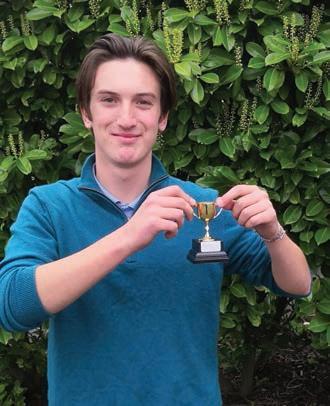
indomitable Mr Walton. Despite everything said against us, Ashburnham competes with pride, dedication and accomplishment, simultaneously creating a fierce but familial house spirit. I have no doubt that our years of success will be continued – we are not a house, but a home.
‘I know it’s just a room on a corridor but I’m going to miss it’ was the reflection of one of our Remove as he left Westminster. This year Wren’s really aimed to foster some inter-year house spirit. The House Table Tennis Competition saw Fifth Formers all the way up to the Tutors participating in a knock-out competition lasting several rounds. Upper Shell Gaurav Kocher ended up the winner in this first year and we look forward to many more. Wren’s enjoyed plenty of sporting success at house competitions this year: retaining the netball trophy was a highlight as well as a triumphant team performance leading to first place at the towpath races. We came second in the Bringsty relay and lost out to our corridor rivals Dryden’s on penalties in the final of the 6-aside House Football.
A highlight of the year was undoubtedly the House Play – the first ever staged in the Bentham Room and the first in Wren’s for

five years. The actors were superb, pulling off the murder mystery with an intriguing twist for two performances. A huge thank you to Dr Durno and Thomas Laskowski for directing and producing the play. The Wren’s tradition of celebrating Christopher Wren’s birthday continues too and the highlights this year were a comedy sketch and some magic tricks from our new Fifth Formers. We say goodbye and thank you to our Remove including our departing Head of House, Tomás Pfeffer, as well as our Tutors Ezra Lutton and Brian Smith as they join other houses.
In another eventful year for Dryden’s, we had more than our fair share of highs. A typically solid (if unglamorous) performance in the Towpath as well as a valiant attempt at Athletic Sports were utterly overshadowed by our remarkable success in House Football. The Dryden’s Senior team of 2019 will surely rank amongst some of the greatest of all time: the achievements of Guardiola’s Barca and the 1999 treble-winning United side pale in comparison to the remarkable double of XIs and Vs achieved by our Reds. Under the executive management of Mr Edlin, the squad’s healthy blend of youthful Upper Shell flair with the experience of
the veteran Sixth Form and Remove blew away every other House. The potent combination of skill and determination reminded all of what it means to be a Drydenite and the wonderful spirit found in the House.
The highlights do not end there. Dryden’s was delighted to welcome Laurence Edlin to our ranks and of course the Remove thought it appropriate to make a babygro in his favourite colours of scarlet and silver, which he wears with pride! The House Concert showed the incredible range of talent amongst the DD ranks and was breathtaking as always, with a particular highlight being the Dryden’s Quartet. And at last it seemed that the pleas of the Sixth Form and Remove had been answered when Dryden’s received a budget for an assortment of break time biscuits and fruit, breaking an age-old tradition of a lack of snacking facilities.
Finally, although bars may have been put on the windows (to stem the tide of pupils climbing into College Garden, apparently, though they were all from other Houses), you cannot restrain the Drydenite for long. But as the Remove move onto pastures new there will always be the memories of a very successful year for the better half of ‘the corridor’.

Nowadays, excellence is the norm for Hakluyt’s Blue Army. From starring in blockbuster movies (go see Slaughterhouse Rulez) to running the School from the Head Girl’s pulpit, Hakluytians are constantly achieving. There were some disappointments: a defence of our House Chess Trophy, the undisputed pinnacle of sporting competition, failed right at the final hurdle. House Netball, what’s more, was withheld from us as the supposedly impartial officials forced us to compete with one player fewer in the final.
Yet woe is the House that focuses on such failures. Hakluyt’s would carry on winning. We first showcased footballing strength. Cassia Jefferson’s spectacular effort in the final secured victory for Hakluyt’s in the Girls’ House Football. Similar successes could not be achieved by their male counterparts, even despite the managerial expertise of Dr Mark Parry (original innovator of Westminster’s 3-5-2). Next on our radar was Table Tennis. Andy Leo spearheaded a swashbuckling team, which easily dispatched Grant’s in the final. Our Girls’ Tennis team even achieved victory in a single afternoon. One might have stopped then, considering the year done. Let the other Houses enjoy their moments in the sun. Those who have only half a corridor need the occasional uplifting moment. Yet our finest hour was still to come.
The Greaze is the ultimate event of the year. For it, we meticulously assembled a crack team, which included Rory Muirhead, Amirali Monshizadeh and Jonah Poulard, all names that will be sung about for centuries. The only question was which of Hakluyt’s heroes would win. In the end, it was nearly two. Amirali and Rory completed a comfortable 1-2; the Blue Army reigned supreme.
Yet on this backdrop of glory, we learned with great sadness that our Housemaster, Mrs Murphy, would be ending her stay at helm of Yard’s greatest House. She was a wonderful leader. Pupils flocked from all over the School to hear her words of wisdom. The flame will be passed on to Chris Kingcombe, and surely the glory will continue, yet now is a time of loss. We will all miss Mrs Murphy.
Under the humble care of Housemaster Dr Hartley and Head of House Joe Devlin, Milne’s has continued to enjoy another successful year. However, upon the close of this academic year, Dr Hartley will conclude his time as Housemaster of Milne’s – ten years no less! Perhaps now best known by his 70-strong house members for his spirited rounds of the Common Rooms on Abbey and Latin Prayers, rather than for his very own album, Everybody Needs Some
(2015), he has firmly led the House through its adolescent stage, with Milne’s only having been established in 1997. It is always a case of wonder how Housemasters manage to sustain their high standards of teaching, alongside caring for each and every pupil within their Houses so acutely, and for this, we are all deeply grateful for his work.
In September, we welcomed a lively Fifth Form into the house, with their Common Room always...buzzing with energy; one would certainly expect Mr Wurr, their Tutor, to channel this energy and enthusiasm into some strong Athletics times, in their time at Westminster. Alongside them, we also welcomed a number of new pupils into the Sixth Form. All new members of the School transitioned smoothly into the house community, most notably selflessly filling spots for the Towpath, a gruelling challenge but one that Milne’s continues to face head on.
Particular highlights include a particularly strong performance from the Senior House Football team in both 11- and 6-a-side Football, with some questionable decisions going against us. This goes alongside very strong individual performances in House Swimming from Nick Bacon and Michael Seoane.
The House produced both a warm and inviting House Concert this year; the true essence being to encourage performances from all musicians regardless of where they are on their musical journey. Star performances came from Kyumin Lee and Head of House elect Jit Shetty, with a tearprovoking performance of some Monty Python. Rhys Evans also delivered a stunningly beautiful performance on the violin. The concert was suitably closed by a House rendition of Dr Hartley’s track Come on, which had been performed by the current Remove boys who joined Westminster in the Fifth Form in 2014 – a timeless classic.
The House excitedly welcomes Mr Smith as its new Housemaster from September, who promises to bring an inevitably different but invigorating approach to caring for Milne’s, as he illustrated in his time as Housemaster of Wren’s. His leadership will be in tandem with Jit Shetty as the next Head of House.
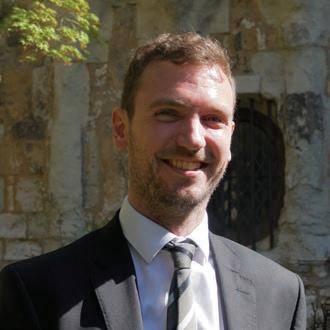
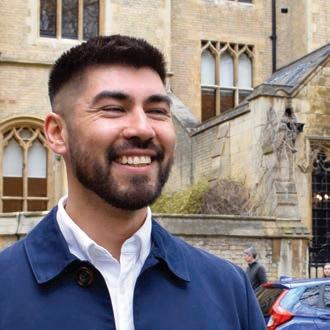
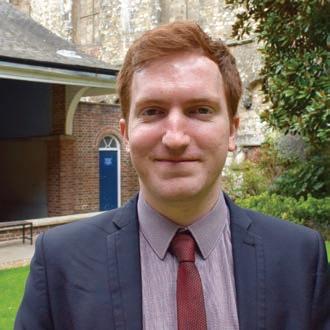



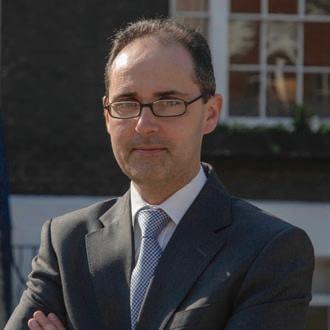


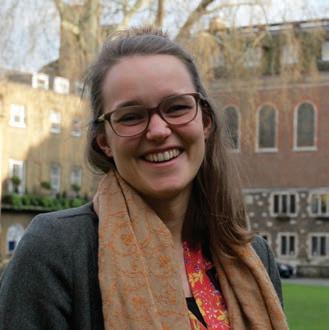



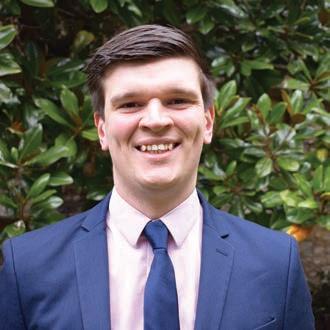
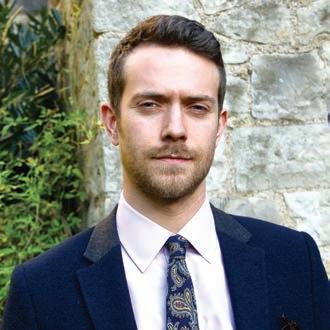
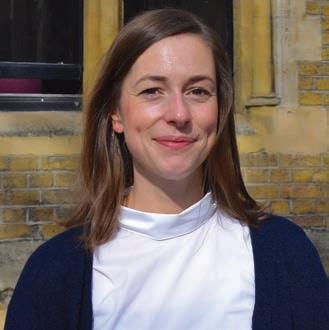


Andrew has joined the Maths department from Highgate School, where he taught for seven years. He went straight into teaching after studying for an undergraduate Masters in Mathematics and Statistics at The Queen’s College, Oxford, specialising in combinatorics and graph theory. During his time at Highgate, he took a two-year gap to return north and studied Operational Research at Lancaster University, involving optimisation and forecasting work with the North West Ambulance Service. Andrew is a keen sportsman, who plays for a Sunday league football team and has enjoyed transferring this enthusiasm to coaching school teams from the sideline. He also climbs regularly and plays the drums whenever the opportunity arises, having been part of a covers band that performed at several weddings as well as the obvious highlight of a Westminster staff Christmas party.
Luis joined Westminster as a Spanish language assistant. After working as an English teacher and teacher educator in Chile, he moved to the UK to study for an MA in applied linguistics at King’s College London. He is now finishing a PhD in Education at University College London. His research explores how teachers design language learning materials from a sociocultural point of view. Luis is also a yoga teacher and has spent time in India learning the sitar. He now spends his spare time swimming daily, reading, gardening, exploring London, and discovering national parks in the UK.
Fraser joined Westminster as a Mathematics teacher and a Tutor in Milne’s in September. He, initially, read Mathematics at Downing College, Cambridge before transitioning to Astrophysics in the third year of his studies. After university he started teaching at Bedford School, where he was for four years prior to moving down to London.
Outside the classroom, Fraser is a keen traveller and takes advantage of the opportunities afforded by the breaks throughout the year. Historically this has taken the form of journeying through Europe exploring new cities, but in recent years has entailed a familiar, more sedate, trip to the south of France as he continues to try and pick up the language.
Rosa Goodman read History of Art and Italian at UCL, spending her year abroad at the Scuola Normale Superiore di Pisa and the Peggy Guggenheim Collection in Venice. For her Masters at Oxford University she pursued her interest in Gender and the Italian Renaissance, and wrote her dissertation on Miraculous Madonnas. After leaving university she worked in various galleries and museums in London and Florence, including The Wallace Collection, Palazzo Strozzi, and The V&A. Rosa discovered her love of teaching when she returned to UCL for a PhD and taught undergraduates. She pursued this passion by tutoring for Art History Abroad and as the Student Teacher at Westminster, before becoming a full-time teacher at Stowe. Rosa returns to Westminster as Head of Art History after joining from South Hampstead High School, where she was Assistant Head of Sixth Form and Head of Art History. Outside the classroom Rosa enjoys painting and continues to love all aspects of Italian culture: film, fashion, Fine Art and, all importantly, food.
Holly Wagstaff joins the Economics department straight from Hertford College, Oxford where she read Economics and Management. Her final year studies focused on analysing the behaviour of organisations. At university, she was captain of the Hertford College mixed lacrosse club and the treasurer for Hertford College ball 2017. During university holidays, Holly worked as a House Parent for Discovery English language courses working with international pupils aged ten to 14. Outside the classroom, Holly is learning how to cook, training for a half marathon and trying to perfect her understanding of the difference between short and long corners in hockey.
Having studied French and German at the University of Warwick and following a career in policy and research in children’s services and education, Oliver joined the teaching professional originally in London’s East End. He very much brings to bear this diverse prior experience in his work with us at Westminster both within and beyond the classroom. An ardent advocate of languages in the secondary curriculum, he continues his postgraduate studies looking at curriculum and pedagogical innovations in his subject. Over recent years, Oliver has also studied Arabic both here in London and overseas in the Middle East and he is delighted to add this to his teaching repertoire. Beyond academic and school life, he is an avid road cyclist –a pursuit which allows to him to combine his great passions of travel, language and the outdoors.
James Kazi joins Westminster as Under Master and teacher of English. Following his time as an undergraduate and choral exhibitioner at Gonville and Caius College, Cambridge, he then went to work in the wine trade (with primary interests in Champagne and sparkling wines), before returning to Cambridge to complete his teacher training in English and Drama. In literary terms, he is interested in the printed voice and drama (from page to stage); he is also a passionate Miltonist. His first appointment was at Haileybury & ISC in Hertford where he was Head of English, IB Coordinator and a Resident Assistant Housemaster. He then moved to Charterhouse and served as Deputy Headmaster (Academic) and Second Master. He is an inspector for ISI and a Site Visitor for the International Baccalaureate; he also acts as one of the Course Commanders for the national Air Cadet Leadership Courses based at RAFC Cranwell. When not at his house in Kirkby Lonsdale, he enjoys theatregoing, travelling (often in pursuit of Michelin-starred restaurants and interesting wines) and choral singing.
Ezra studied Maths at Jesus College, Oxford and then completed a masters in Computer Science at the University of Birmingham. He then went on to train as a teacher on the Teach First programme in the West Midlands. After moving to teach in a school in west London he left to work in corporate finance at PwC. He then returned to teaching as Head of Mathematics in a school in north London. Following this, he joined Westminster in September 2018. In his free time Ezra enjoys running and is a keen bagpiper.
Pauline Michel joined Westminster as a French assistant this September after finishing her master’s degree at the University of Reim’s ChampagneArdenne. She focused her two dissertations (or “mémoires” as they say in French) on the role and importance of elite women during the American Revolution. Before that, she spent one year at St Paul’s Boys School in Hammersmith where she learned that she really enjoyed giving French lessons and sharing her culture. That time in London was part of a gap year she took after finishing her bachelor’s degree specialised in English. Outside school, she enjoys reading, travelling and is a huge fan of musicals!
Alexandra Granville grew up in Belgium and studied German and Italian at New College, Oxford before completing her PhD at University College London, where she specialised in theories and representations of the myth of victimhood in Austria and Italy following the Second World War. At UCL, Alexandra also taught undergraduate translation and Modern Italian Literature courses. Alexandra taught German, French and Italian at Harrow School for four years, where she was also Master in Charge of US university applications and Head of Swimming. Alexandra joins the Modern Languages department at Westminster as Head of German and US applications adviser. Outside the classroom, Alexandra enjoys singing, travel, reading and bracing country walks, among many other things.
Annie joined the Drama department as Head of Academic Drama after teaching at St Marylebone School, London and The Fallibroome Academy in Macclesfield. Before teaching, Annie trained as an actress at RADA and worked in professional theatre, voiceover and radio for seven years, before retraining as a teacher and completing a Drama PGCE at Manchester Metropolitan University. Annie is currently completing an MA in Applied Theatre at the Central School of Speech and Drama. Annie loves film and tries to go to the cinema twice a week. She is also a keen runner and a secret poet.
Dyfan joined the Mathematics Department at Westminster last year after three years teaching at Canford School in Dorset. At Canford, he took the football 1st XI, and was resident tutor in one of the boarding houses. Before joining Canford, he read Mathematics at University College London. Outside the classroom, Dyfan is a keen footballer himself and has recently taken up running as another athletic pastime. He is also a proud Welsh speaker, and hopes to pass on a few useful phrases to the pupils as part of his cultural perspective.
After graduating from the Universidad Pontificia de Comillas in Madrid, Gema had an international career in the financial and fintech sectors, specialising in the derivatives markets. As well as in the UK, she has lived, worked and studied in France, Spain, Germany, Switzerland and the USA. After this international experience, Gema was more convinced than ever of the importance of languages and, upon returning to the UK in 2013, decided to retrain as a French and Spanish teacher. She took a PGCE from King’s College London and joins Westminster from Archbishop Tenison’s School in Lambeth. She continues to learn languages (currently studying Italian at UCL) and enjoys reading literature in its original language, music, travelling and swimming.
Inga joined Westminster as German Language Assistant after a few years of teaching any subject she was presented with in German primary schools. Having studied to be a bilingual primary school teacher at the University of Education Freiburg, she subsequently pursued her interest for Applied Linguistics by completing an MA in Bilingualism and Multilingualism at Birkbeck, University of London. Being from Lübeck, Inga has a truly Hanseatic heart and can never stay away from the seaside for too long, regardless of the weather. Her preferred mode of transport is cycling – the relaxing 10mph kind.
Following his undergraduate degree in Physics at the Massachusetts Institute of Technology, Jeff spent two years at Peterhouse, Cambridge under the auspices of a British Marshall Scholarship. There he earned an MMASt (Part III Maths) and an MPhil in Physics, focusing on implications for causality within a gauge theoretic formulation of General Relativity. After two further years of graduate study at Cornell University, he abandoned his Physics PhD following some philosophical disagreements with his department head and took up a career in mathematical finance at Goldman Sachs. At Goldman, he developed derivative pricing models and risk management systems on a number of trading desks, eventually becoming Partner in 2008 as Global Head of Equity and Credit Derivative Strategies. Before the last of his soul was destroyed, Jeff left finance in 2013, did a lot of gardening, wrote a somewhat dystopian screenplay that never got produced, and then fell somewhat accidentally into teaching after giving a talk on energy depletion at Highgate School. Jeff joined Westminster in January, 2016 as maternity cover, liked the feel of it, and feels fortunate to stay on in the Physics department. Outside the classroom Jeff enjoys rowing, thinking about energy and the environment, and scything his meadow and growing vegetables during the summer.
Nick Page joined Westminster in September 2017 as Deputy Head (Co-Curriculum), to which Director of Communications was added in 2018. He studied French, Russian and Spanish at the University of Nottingham, before going on to complete a PGCE at Queens’ College, Cambridge. He began teaching at Harrow School, where he would stay for the next 17 years, serving variously as Head of French, Head of Modern Languages and, latterly, Academic Director, along with coaching rugby, football and polo and maintaining a strong commitment to the CCF, which he commanded for eight years. Originally from rural Suffolk, Nick devotes his free time to travel, theatre and language learning, and is a keen sportsman, regularly to be found on a pair of skis, a snowboard, a running track or a horse.
After completing his secondary education at Westminster, Peter took a gap year, during which he worked in schools in both the UK and Germany. It was during this time that he confirmed his desire to enter teaching after University, with Mathematics his chosen subject. He graduated from Warwick University with a BSc in Mathematics with Intercalated Year before enrolling on the Teach First teacher training programme. He worked at the Hathaway Academy in Essex for two years before relocating to Hull and teaching at South Hunsley School and Sixth Form College. A further year was spent there before his return to London and Westminster, nine years after he left. Outside the classroom he is an avid follower of Arsenal and also enjoys board gaming with friends, something in which he suspects he is not alone in the department.
Becky read English at New College, Oxford, specialising in Old English and early Bible translation. She qualified as a teacher on the Teach First programme, and then took a break from teaching for a year after getting her first book deal. Becky’s third novel will be published at the beginning of next year, and she continues to write alongside teaching. Before coming to Westminster, she taught English for five years at Putney High School, where she also ran the school’s Extended Project programme. Becky spent most of her teenage and university years playing football, but has hung up her boots now and is learning to box instead. Obviously she also likes to read.




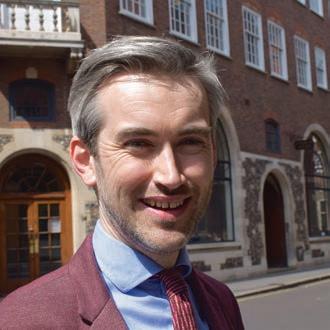
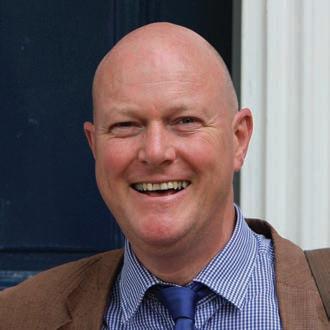
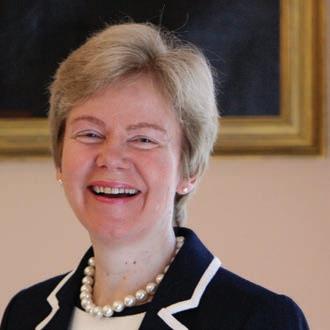

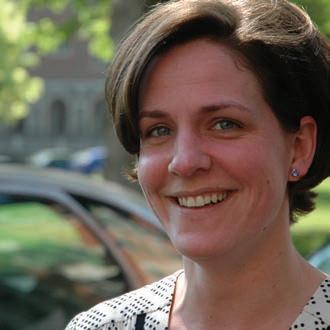

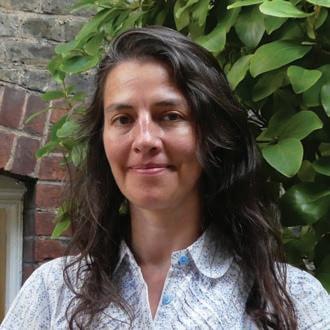









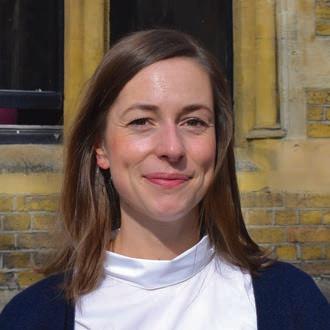
Kate Clanchy joined Westminster’s senior management at the start of the Play Term 2013 from St Paul’s Girls. Her role as Senior Master is undoubtedly one of the most demanding and wide-ranging positions in the School, and it rapidly became apparent that her eye for detail, enquiring mind and indefatigable spirit were ideally suited to this challenging post. In an institution such as Westminster, it can be extremely healthy to have an outside eye inspect the way things work. Kate paid great respect to the traditions of the school, but was unafraid to suggest new ways of operating, and worked tirelessly to ensure that the School ran smoothly. Kate’s willingness to get involved in the broader life of the School included being a Tutor in Hakluyt’s, helping staff trips to St Petersburg (through her teaching of Russian), as well as House and Cross Country trips to Alston, and making innumerable visits to the theatre, cinema and exhibitions. Indeed, Kate was the driving force behind the purchase of a new property in Nenthead, which our current pupils enjoy. Kate left Westminster at the end of the Election Term 2017 to take up the position of Head Teacher at the Yehudi Menuhin School.
During his time with us, Deneal achieved a level of affectionate recognition reserved usually for A-list celebs, literary giants and acclaimed chat show hosts. As with Kylie, Voltaire and Oprah, Deneal was a rarity for being known at Westminster by his first name. In time, everyone forgot he was called “Smith,” or indeed “Dr Smith” as he was just Deneal, although occasionally a new Fifth Former would refer to him as “Dr Deneal.”
Having worked as an assistant housemaster at Winchester, Head of Sixth and Director of Studies at Magdalen College School in Oxford, Deneal joined Westminster as Under Master in 2013. Deneal’s intellect is formidable. Having started a degree in Mathematics at St. John’s Cambridge, he switched to Astrophysics in his final year. He stayed at Cambridge for a further three years to complete a PhD
on cataclysmic variable stars. Assigned primarily to the Maths department here, Deneal could also be called upon to cover in the English department on occasion due to his love of literature. He was also soundly versed in the Classics and mysteries of Ancient Egypt.
Deneal certainly made his mark early on, challenging hallowed traditions such as Yard football in recognition that oddly, not all the school community enjoyed running the gauntlet of a howitzer-like bombardment whilst attempting to get to Grant’s dining room. Whilst initially resolute (“Deneal was in denial” according to members of the Upper School) Deneal’s pragmatism and willingness to see a situation from more than one point of view allowed a mutually agreeable compromise to be reached, and to this day peace reigns in Yard. Or at least until 1.15pm.
The position of Under Master, or Deputy Head, can be a tricky one to navigate at the best of times, requiring as it does the ability to combine pastoral care and a disciplinary role within the whole school community. Add to the job requirements an ability to deal with piercing intellect bolstered by a predisposition towards benign belligerence, at times the role at Westminster must have given new meaning to the phrase “herding cats.” And that is just the staff. Deneal kept a high profile on a daily basis enforcing standards of dress and other rules and regulations, but in time won the respect of the pupils through his sincerity and fairness. One of Deneal’s most admirable achievements was to put Safeguarding firmly on the map at Westminster and to ensure that every member of staff understood their collective responsibility. He was genuinely concerned for the welfare of our pupils and wanted to do his best for each and every one. Together with members of the Common Room and pupil representatives, it was under Deneal’s tenure that the School adopted a more fluid approach to the school uniform, a move that proved to be a significant steppingstone in the establishment of the more inclusive school environment we all enjoy today.
Those who worked closely with Deneal on a pastoral basis testify to his being unbelievably thorough and very tolerant. His attention to detail was forensic, and though firm, he was always
able to see things from a pupil’s point of view and never judged them personally. He was, at heart, an optimistic person. His Sixth Form option on ‘positive psychology’ was hugely popular. Deneal was a very supportive teacher and despite of all his other considerable commitments would go out of his way to provide extra help to pupils in danger of falling by the wayside academically.
Deneal’s devotion to Lisa, Ellen and Anthony, his immense pride in his Northern roots and a wry sense of humour all reflect his softer side –seen in all its glory when he donned his Blackpool football shirt and joined Nico Stone on the ukulele for a duet of George Formby’s finest at September Saturday. He was extremely supportive of Phab, often bringing his children along to talk to our guests and indulge in a spot of karaoke. One Housemaster recalls Deneal’s generosity, inviting him and his family to watch Leicester City play Tottenham Hotspur at Wembley as one of his final acts before departing for his new post of Head Master at Warwick School.
Ultimately, Deneal is an extremely kind man. Expectations were high and rightly so, but whenever the slings and arrows of outrageous fortune wended their way towards us, as is their wont, Deneal had our backs. All of our backs. He will be much missed and we wish him every success in his future endeavours.
Mark came to Westminster from a very significant ten-year career in state schools, as Head of Mathematics and Assistant Head, and brought with him from his experience there many new ideas and a couple of amusing anecdotes, which he was ever ready to share with the department.
Mark is a very strong Mathematician, of course, and a “Properly Qualified Teacher”: a designation he invented to describe himself and a few others. He is also a tremendous teacher: I know that, partly because he often told me so, but also because I have seen his carefully prepared and enthusiastically delivered lessons, and I have heard from pupils how much they enjoyed being taught by him. Even after 30 years in the classroom, Mark was still developing
new ideas for presenting topics he had taught many times before and getting real pleasure from seeing his pupils understand an idea a little better than before.
Mark has been a Housemaster for most of his time here. First in Wren’s, where he worked to create the definitively low sporting baseline which Simon Wurr subsequently ruined, and then College. I lived next to, or above, College for all the time Mark was there, so I often saw him at work fulfilling the most important role of any boarding Housemaster: talking to every child every day – doing his marking in the corridor early most evenings, for instance, so everyone had to pass him at least once – so that it would seem natural to have a more serious conversation with him when necessary. I know that the many Elections that he saw through greatly appreciated his approach, combining consistency with tolerance and firmness with sympathy in the puzzling mix that adolescents seem to require.
Mark had wide interests: literary, sporting, vinous and philosophical (indeed the penultimate of these was often the catalyst of the last). In the Options programme, he drew on his own faith to lead generations of Westminsters (and latterly HarrisWestminsters) through the beginnings of their philosophical thinking.
Mark left Westminster to work for United World Colleges, initially in Mostar, until he discovered that Health and Safety standards in the Balkans would raise at least one eyebrow of even the most complacent ISI inspector, and subsequently in China. It is typical of Mark that, rather than enjoy a comfortable last few years before retirement, he should take a pay cut to follow a more adventurous and worthwhile path, and this reflects his genuine concern for making a difference through education to children who did not start their lives in privilege.
We were very lucky to have Mark as a colleague, and Su-Yin and Freddie living here and forming part of the boarding community, for 21 years, and friend, I hope, for longer; we shall miss them all.
To say that Mark Feltham has been a stalwart of Football and Cricket Stations barely does him justice. From joining Westminster in 1997, he loyally ran teams every term, for much of the time as a Housemaster, and frequently led tours in the holidays.
‘Felts’ was immediately entrusted with the U16A footballers, a key year group on the cusp of their development into the senior sides. His teams were highly organised, perhaps as much due to his beloved Arsenal’s mastery of the offside trap under George Graham and Tony Adams. Famously Mark’s team in 2005-6 achieved an unbeaten season. During warm-ups he would pun wittily on each pupil’s name, and had an almost religious insistence on shin pads. He’d rebuke any staff who turned a blind eye to this, with a loud “It’s your career!”. Meanwhile, his own brand of protection was a bulging pair of calves, grown apparently from playing water polo.
After 20 years with the 16s, he joined the coaching team of the 3rd and 4th senior teams, and gave as much as ever to the training sessions. He was ever-present in the staff football team, playing in defence or on the right wing. As he left the pitch for the last time in the Leavers v Common Room game in 2018, players and supporters joined in a spontaneous standing ovation to mark his contribution.
Cricket is a lifelong passion, and Mark was Master in Charge of Cricket from 1999-2002. He encouraged participation and enjoyment, while ensuring the teams were as competitive as possible. There were great moments, like victory over MCC in 2001, which brought tears of joy from Felts in the dressing room afterwards. He formed a strong partnership with his great friend Mr Kershen, and with former England international Roland Butcher. As a cricketer himself, Mark has represented several clubs and not least the mighty Pink Elephants. He has always made his share of runs and taken over 100 wickets with his seam and swing. To give just one example, a few years ago he rolled the RAC batsmen for the paltry score of 36, with their entire top order LBW Feltham.
by Lisa NewtonSimon arrived at Westminster in 2004 having had an illustrious career in the city and as a lawyer. By 2007 he had been promoted to Head of Department. In the classroom, he used his life experience to good effect and nobody can forget his Saturday morning lessons, which required all pupils to don one of a selection of hats he kept in his classroom. It was a rite of passage for his Remove classes to have a photograph taken on the steps of Weston’s in their favourite hat! In addition, we were all kept on our toes by the infamous tolling of the bell (an old-fashioned school one) at random times often in tandem with the bike horn of erstwhile colleague Geoff Simpson. Happy days!
He was a true Renaissance man, involving himself in many aspects of school life. He was a stalwart of Duke of Edinburgh expeditions, running 25 of them for the great and the not so great as well as being a constant, steadfast Tutor in Milne’s where tutees of all ages appreciated his interest and compassion. Simon loved cricket and was a first-rate Master in Charge of the Second XI for more than a decade culminating in reaching the final of the LSCA U19 Cup in 2018, fittingly his final year at Westminster. It says much about his commitment that he spent his final day at Westminster with his team at Shenley Cricket Centre, where the match was held. It was not all about winning for Simon. He believed in participation and was famous in the cricket club for his rotation policy that gave everyone a game but did not always play the strongest team. He also broke with convention by picking the Second XI before the First XI. He was famous for breaking for tea at odd times in the game! He was adaptable enough to transfer to running golf station with a smaller ball. Simon ran the department with great emotional intelligence and a forensic desire for excellence. People always came first for him. Nick, Jamie and I always knew we could rely on his support. He brought wisdom, kindness and humour to the Common Room.
No longer constrained by school terms he is currently enjoying life in Australia with his wife Hillary, spending time with his daughter and son-in-law. He is a devoted and hands-on grandfather
to twin girls. The department very much enjoy his quirky updates on life down under in Tasmania (or Tassie, as the natives call it)! Travel will loom large in his retirement but he will be back in leafy Barnes from time to time. We miss him!
Amal is one of the most original people I’ve ever met, and her four years at the school were full of fun and enthusiasm! Not only was she amazing at the academic side of the school, but she was always organising trips, and accompanying me on several as well. The LSE to Krakow was a highlight, as her interest and engagement with the history of Poland was all you could ask for from a colleague. I think the thing that I find most special about Amal is her desire to help others. Every moment she has is spent helping pupils at school, volunteering for charity, or thinking of fun things to do with her friends. There is never a dull moment when Amal is there, shown by her pride in mastering the specifically English achievement of “good banter”, which I hope her next pupils will love!
Amal was a French assistante at Westminster for four years. She was (and still is) a vortex of energy who was extremely reliable and organised; she helped all pupils in and out of the classroom and was always quick to create new resources. She resuscitated the French Play by staging an adapted version of Corneille’s baroque play L’illusion comique in Ashburnham Gardens. The cast was composed of Lower Shell, VI form and Remove and it was a roaring success. Another year, she managed a tour de force: Les pas perdus, Denise Bonal’s contemporary play set in a train station, was produced with a large cast composed of Westminster and Harris Westminster pupils (at the Millicent Fawcett Hall). In her third year, as part of the European Drama Festival, she produced Au musée, retour aux origines by Jean-Michel Ribes. We will miss Amal’s enthusiasm and her positivity. We wish her all the best for next year and congratulate her on obtaining a Fulbright scholarship.
John Ward by Guy HopkinsJohn Ward joined Westminster in September 2017, as the Music Department expanded to take on the Music teaching for the Harris Westminster A level musicians. During his time with us, John has worked tirelessly to create opportunities for his pupils and bring the subject matter to life, creating a wealth of resources, arranging visits to Westminster Abbey evensong, and supporting the pupils at various Harris concerts. On a co-curricular footing, John has directed the Chamber Choir in a number of Abbey services. He has played the organ in Abbey, conducted repertoire at the Concerto Concert up School, and coached a string quartet to the semi-final of the Pro-Corda Chamber Music Festival. John is also the Organist and Director of Music at St Mary The Boltons in Brompton, and has kindly allowed various Westminster pupils to sing in the professional choir and accompany services on the organ. We wish him all the very best as he prepares for his FRCO Organ Diploma.
Emily Chappell by Tom EdlinSometimes, only turning the clock back will do. With RED off on maternity leave and an Art History department to run as well as teaching to be covered, it was a huge relief that we were able to welcome back to Westminster the expertise, experience and good sense of Emily Chappell, for what was, in fact, her third spell here: after serving as student teacher she had later become, for six years, our resident gothic and medieval specialist, before leaving in 2013. Although it was always tempting to see this [Miss] Pope who converted to [Mrs] Chappell as something of a Reformation figure, it was soon clear to all who knew her that while she may have embraced Westminster’s non-conformity she was no Puritan, and her breadth of vision certainly reflected that of the late medieval church.
As we knew she would, Emily made an immediate impact on her latest return, and offered great reassurance to exam classes while also inspiring fresh recruits. As it turned out, she also bridged the gap from one regime to another with the appointment of Rosa
Goodman, and she did so with her customary efficiency and good cheer. Perhaps one day we (or more likely the Abbey!) may be able to tempt her back for a fourth incarnation, though for now she reports that her new role at St Swithun’s entails an easier commute and a relaxed rural vibe, which certainly has its own appeal. It is perhaps permissible to reveal now that with her departure the Common Room loses its only member who once regularly rode a Grand National winner – Party Politics, when riding out for Nick Gaselee in Lambourn – as well as a stalwart friend. We hope she will keep in touch.
As soon as RED joined Westminster in September 2013, she introduced her pupils to her great passions for Italy, the Medieval world, and art, and she led them with gentleness, imagination and unfailing kindness. Her Art History classroom up Weston’s, and subsequently up Sutcliffe’s, was a place of peace and creativity. The Options she established are reflections of her interests, skills and eccentricity – Illuminated Manuscripts; Origami; Knitting; Medieval Monsters; Italian for Art Historians – and during those classes she nurtured exploration, contemplation and quiet defiance. Remove Art Historians always looked forward to the annual meeting of RED’s Gastronomic Art Society, where they would create tableaux vivants of artworks which showed epicurean indulgence, and then proceed to eat them. Westminster misses her joy and integrity, but since she left in June 2017, RED has had more time to make her own art, amongst pursuing her many other interests.
In his own farewell tribute to Peter Holmes in the Elizabethan some 20 years ago, Richard Pyatt bade farewell to ‘a giant of Yard’; the same phrase might now be applied to him. Richard has been at the heart of three successive generations of English teachers here: the ‘Mulligan & Moore’ cohort with which he arrived in 1986 to enliven (and perhaps challenge)
the old guard, the new arrivals of the nineties, and the Weston’s team of a more recent vintage. But never defined by any such structuralist nonsense, he remained as fresh and enthusiastic as any, and the occasional element of nostalgia has never made him stale. An erstwhile pupil’s unhelpful reminders of how he used to send us out onto the now inaccessible balcony of Room 32 to find inspiration for our haikus, or of one classmate’s insistence that he was on first name terms with ‘Jane’ in interpreting Northanger Abbey, would be enjoyed, but in their due place. Above all, Richard taught with relish and (unfashionable word) joy, and communicated this to his classes with an enviable lightness of touch. He was a consistent supporter of his pupils’ own literary efforts, too, although the range of poetry written in his honour in the 1990s was slightly undermined by the general tendency to rhyme ‘Pyatt’ with ‘riot’.
When Richard became Head of English in 1996, his department contained his two predecessors in the post, the former Under Master, and the Head Master. His regular deployment of Edwy the Weak as an analogy for such a predicament was in fact an example of his typical modesty. Richard led the department with great skill, managed the move into plush new accommodation in Weston’s and was then called back to become Head of Department twice more. Though once was on a temporary basis this was too good an opportunity to pass up another regal label, and Richard I, II and III all fared rather better than their medieval English namesakes. His wider contributions to the School expressed his character and creativity in full measure. The Elizabethan he edited in the early 1990s contained a strain of very Westminster wit alongside an affectionate incorporation of OWW memories and in-jokes which have aged well. His poems written for ‘Leccy Dinner’ were always brilliantly conceived, with a particular highlight being the Beowulf-style epic he composed for the opening of the Sports Hall, feting the tribes who had collared this latter-day mead hall: the Body Step Armies, Yogaiii, Badmintonii and the rest. His move from Liddell’s
to Hakluyt’s as a Tutor was perhaps inevitable, as he finally joined the House for which in 1987 he had first proposed a suitably challenging but resonant name, just at the moment when Vincent’s was primed to win the day.
President of the Common Room twice, Richard was (and remains) a sage voice of wisdom and source of subtle support for many younger colleagues. Remembering his own early days in the Common Room, he was always concerned to foster a welcoming and collegiate atmosphere. The one old custom he continued to relish was that of using surnames affectionately in conversation: back in the eighties to be called ‘Pyatt’ was a sign all was well, but ‘Richard’ betokened less happy circumstances. Latterly, for many of us, he just went by the name of ‘English’ anyway, and there was something fitting about such an identification. He retains his flat in Pimlico and so remains nearby and in touch, and though much missed in College Hall at lunchtime, he can still be found at The Speaker. The bonds run deep, and long may they continue. As he would say: mwyeeeeu… Floreat!
Tom is a man of many talents, getting involved in a wide array of activities at Westminster School in his four and a half years.
Tom joined the Maths Department in the summer of 2013, one of four new teachers to the department. When discussing ideas for lessons and how we were doing with our classes, Tom was refreshingly earnest and reflective. He would aim to innovate with his teaching and he put considerable effort into the design of strings of lessons, with the pupils’ learning at the heart of it. On top of this, Tom is a formidable mathematician (slightly dodgy with his arithmetic at times…).
Tom’s considerate nature led to his involvement with Wellbeing and his role as Head of Year. He cared deeply about the pupils and had a calm and approachable manner with them, and he was ahead of the curve with many issues that are becoming increasingly relevant. Other highlights include: getting lost with the minibus on the
way to Latymer School with the U15 B football team; his notorious ‘Octopus’ tackle in the match against the leavers a few years ago; taking on the Krakow expedition and making the ill-judged decision to hire town-bikes to head out into the countryside; and his sterling work with Knitting Option.
Tom’s rekindled interest in modelling (not that kind!) and financial mathematics led to him landing a role at Goldman Sachs; we are all waiting for the news story about which economies he has crashed. He will be sorely missed, both as a practitioner and a personality.
In April 2014, on my way back from Norfolk at the end of the Easter holidays, I pulled into a lay-by on the A11 to take a call from Stephen Spurr, then Head Master. He had good news, he told me, and was delighted to appoint Michael Sugden to teach French and German at Westminster. I was delighted too. I had met Michael 20 years earlier when dispatched from Cambridge to complete my term of teaching practice at Felsted School in Essex, where Michael was Head of Modern Languages. This was my very first experience of a British public school and everything was alien to me: pupils seemed to speak like aristocrats, wrote with fountain pens and carried umbrellas; teachers I had seen in morning classes suddenly appeared in combat fatigues after lunch. When I found a whistle and a ‘team sheet’ in my pigeon hole in Week 2, I wondered whether I would last the term. So I turned to Michael. He was warm, generous and understanding. He had time for me and didn’t judge. He taught me how to teach in the morning and took me to the pub in the evening. And I survived. Had it not been for Michael, I would have questioned, quite early on, my suitability to enter the teaching profession.
Tempted out of retirement, Michael joined Westminster in Play 2014 and was soon back into the school mastering routine. Within a month, he had organised a tall ships Lower School Expedition and, a year later, was running Hockey Station and the Berlin exchange. Everything came so naturally to him. In the classroom, he
was just as I remembered him from my pupil days – calm, patient, with a wonderfully poised, gentle authority. In many ways, he was the archetypal, old-fashioned school master and pupils would be found standing sentinel outside his classroom before he ushered them in, banishing their mobile devices from sight.
Sadly, following a period of ill health, Michael was forced back into retirement in April 2018. He returns to Essex where he hopes to take on some language tutoring and examining, as well as organising travel plans to the Far East. Good luck Michael – and thank you from us all.
Emily joined Westminster in September of 2008 having completed a degree in Theology at LMH, Oxford and a successful stint at JAGS in South London. Almost immediately she became a popular teacher, although in the approving words of one parent a ‘formidable’ one! Her command of the subject and the confidence with which she delivered her lessons not only meant that her lessons were a joy to watch but, more importantly, she was an inspiration to her pupils. In fact, one Sixth Former managed to both write and record a (very tasteful) song that was inspired the then Ms Wethered. Emily had immensely high expectations for pupils and an extraordinary ability to get the best out of them. Her passion for theology saw a sharp uptake in the number of Westminsters wanting to read the subject at university and, more significantly, making successful applications.
In 2012, I had the privilege of mentoring Emily as she went through the Graduate Teacher Programme. Remarkably, there was not a single dud amongst the more than 30 lessons that I observed. Her commitment to pedagogy came through in every lesson and she was never afraid to take significant risks –inventing her own games, for example. Her end-of-term revision cupcakes were always a hit and, no doubt, one of the first times that Jeremy Bentham or Elizabeth Anscombe have made an appearance in the form of confectionary! Similarly, Christmasthemed revision quizzes were also
a firm pupil favourite, seamlessly weaving together Aristotelian virtue ethics with Rudolph the red-nosed reindeer.
After almost a decade at Westminster, Emily moved on to new pastures and is now at the Leys School in Cambridge. Their gain is very much our loss. On more than one occasion I have bumped into an Old Westminster whose first question is always “How is Mrs Shortland?” Then, inevitably, follows a series of fondly-remembered anecdotes about her lessons. Always, however, these memories involve her having been an excellent teacher.
No doubt her new pupils at the Leys will be enjoying this same level of pedagogical excellence. The Theology and Philosophy department miss Emily terribly but our own teaching continues to be immeasurably enriched by her.
Melissa Bustamante by David Hemsley-BrownMelissa arrived in September 2015 to teach Computer Science, having spent the previous 12 years teaching in Preparatory and Secondary schools in Dorset and London, and bringing up her family. Melissa entered happily into different aspects of school life, be it contributions within the department, Fives, netball and rounders station or her organisation of Tall Ship and Keelboat expeditions. Melissa is one of life’s enthusiasts and is always looking for new outlets for this enthusiasm. In addition to her Computer Science teaching, she has been involved in teacher education through the Computing At School organisation, taken on teaching of Lower School Electronics and helped Lower School pupils to success in robotics competitions. She has also sought out every opportunity for outreach, including supporting the teaching of many pupils in schools from Lambeth to Hammersmith, for preparation for GCSE coding controlled assessments, or after-school coding clubs. Melissa believes deeply in the pastoral care of pupils and has been a supportive Sixth Form Tutor and committed Assistant Housemaster in Milne’s, helping pupils develop and improve beyond the classroom. Melissa leaves us to take up the exciting post of Head of Computer Science and Creative Technologies at St Pauls Girls’ School, where she
looks forward to the challenge of leading a team integrating computer science and emerging technology.
Alison Derham by Rodney HarrisInterviewing the Head Master’s wife for a part-time post in Learning Support could have been a career ending moment. Fortunately, it was an easy decision to appoint Alison to the Common Room in March 2015, and over the past four years her calm, supportive and good-humoured approach has provided many Westminsters with the confidence, skills and coping strategies to handle their academic work and the pressures of exams. Though never having worked with senior pupils before, Alison has proved adept at deploying her formidable skills, whether working one to one or with a small group of pupils. She readily establishes a wonderful rapport with pupils, who are often so reassured by her advice that even when they have been helped and progress made, they keep coming back to see Alison, great testimony to her impact on their studies. Though retiring from teaching, fortunately for Westminster, Alison will still be part of the community, as the Head Master’s wife, a card that has never once been played; a true professional and a delightful colleague, accolades that are matched by the high esteem in which her pupils hold her calm and measured counsel.
Martin Robinson by Jeremy KemballHaving been left by mistake on his interview day by the then Head of Chemistry wondering what he should do next – an experience which has befallen a number of prospective interviewees, including the odd candidate for the post of Head Master – Martin was eventually offered the post of Assistant Master in Chemistry. He had been teaching at Bedford School and arrived at Westminster in September 1988. The Hooke Centre had just been completed and Martin set about his new job with the skill and energy that have been his hallmarks throughout his professional life. As a friendly, energetic, outward-looking,
VALETE
personable, young and non-smoking sportsman, he was indeed a rare creature. By September 1989 he had landed the job as Head of Chemistry and won the respect of the department. He led from the front, proving each day what a first-class chemist he was and although he would recoil from praise for his administration skills, these too were impressive.
Some months into his Westminster career it was finally discovered, by accident, that Martin was a serious sportsman, a multi hockey blue at Lincoln College, Oxford as an undergraduate and at St Cats, Cambridge during his PGCE year. He was also a handy runner, running the London marathon in well under three hours while feeling particularly rotten. After a spell supervising Basketball in Covent Garden, it was realised that he would be better employed running a football team, and thus begun his lifelong relationship with the U14B football team that lasted until March 2018. He has run cricket teams and of course, summer hockey where the pupils were dazzled by his skills and pace – we all were. He was a tough competitor too and there must still be the odd OW who, from time to time, wakes bolt upright in bed remembering that injudicious teenage tackle that sparked a storm. There are many who dabble in sport and talk up their abilities, but Martin was the very opposite – he was the real deal and yet always humble.
In September 1994 Martin began what he would admit to being the most enjoyable and fulfilling phase of his professional life. He was appointed Housemaster of Liddell’s, leaving leafy Esher to move into school accommodation with his wife, Helena. He was a natural Housemaster, whose honest and values-based approach to the job, ensured that pupils always knew where they stood and that he was genuinely on their side. He resisted the temptation to curry favour with the boys and girls, and invariably held the line. As a result he won their respect, which, even on reflection many years later, endures. It was an important time for him personally, too, as he became a father
twice over with Becky and Victoria, both Liddell’s children. As a colleague on the Housemasters’ committee he could always be relied on to add concise wisdom to any debate without ever cutting corners, indeed his organisational skills and care for his pupils were a model to follow.
After five happy years and having scrutinised briefly the hassles and pitfalls of a move to senior management, the Robinsons moved out permanently to their lovely home in Haslemere and there followed number three, Natasha. Thus begun Martin’s love affair with South East trains, and hours of entertainment for his close colleagues. I began chatting to a person on holiday recently who confessed to living in Haslemere. When I said I worked at Westminster, he blurted out “you must know that bloke who is always on the platform in shorts at the same time every day getting the early train to London”. After Liddell’s, Martin remained a wonderful teacher, crashing through boxes of red pens with his formative comments. He never shied away from an expedition or school trip and was always a trustworthy and wonderful travelling companion. I felt very lucky to have him as a Hakluyt’s tutor in 1999 and he has now presided over and guided to adulthood four full cohorts of Haklyutians with great success.
About three years ago, during the usual Common Room Announcements on a Monday morning, the Head Master’s news that “Rodney will be leaving us…” led to an immediate collective gasp from a shocked teaching staff. It was only when HM managed to complete his sentence “…for a fortnight” that order was restored and thoughts returned to the usual routine...
This vignette gives an insight into the centrality of Rodney’s part in the running of the school in recent years. Quite simply, during this time, it was impossible to conceive of the school operating without him. Even now, despite his many extended visits to China, it is difficult to envisage how things will be. The oft-heard conclusion to a work conversation – “Let’s ask Rodney” – will be heard no more…
Rodney arrived at Westminster in 1990 as Head of Geography. That same summer, before leaving Marlborough College, he had married Debbie, and a year later she joined the Westminster Maths department. Having established the Geography department as a recognised entity for the first time, he soon moved on to bring the same status to Purcell’s in 1994. Until this time, Purcell’s was not recognised as a distinct house, as the boarding girls were attached to either Grant’s or Dryden’s. Rodney changed all that. Following 15 very happy family years in Purcell’s – a time when Debbie and Rodney raised their sons, Tom and George, Rodney moved on to become the School’s exams officer, as well as the UCAS co-ordinator, before becoming Director of Studies in 2010.
Prior to Rodney’s tenure as Director of Studies, this role had seemingly been a matter of quietly maintaining the academic routine – a worthy function, but not involving a great deal of innovation. However, since taking up the position in 2010, Rodney has re-shaped the curriculum and, through quiet insistence and dogged determination, has helped give a sense of pride and ambition to the art of teaching. When Rodney joined Westminster, the cult of the individual still held sway in the classroom. Whilst this had its value and appeal, it also served as a cover for some rather lazy teaching methods; however, with Rodney’s influence, the desire to cultivate evermore effective approaches now prevails within the Common Room.
With his energy, pioneering spirit, and profound dedication to education, it is not surprising that Rodney has grasped the opportunity in China with such alacrity. Whilst it must also be to do with a working lifetime studying maps and globes in the Geography classroom, when many of his contemporaries in the education sector are thinking of retirement and pensions, Rodney is setting himself up for a great big adventure: becoming Head Master of Chengdu Westminster School. We have seen the snaps of him with a panda – fine and dandy – but we have also been shown photos of the vast level plot of land which is due to be transformed into a large school within a year, under Rodney’s watchful eye: a school for 2500
pupils having, amongst other facilities, a 1000-seat theatre, three sports halls and a 50-metre swimming pool. “How daunting!” say I; “Bring it on!” smiles Rodney.
For all his dedication to the improvement of standards, and aversion to complacency, Rodney has never been an ideologue – his approach has always been firmly humane and grounded in common sense. Observant of the needs and perspective of individual colleagues, his judgment of a situation has struck an effective balance between the needs and perspective of the school as an organisation, alongside those of individual colleagues. Such wisdom will make him an exceptional Head Master at Chengdu Westminster. With a full heart in recognition of his decades of service to Westminster, we wish him and Debbie well for the adventure ahead.
Andrew Law joined Westminster in 2001 after a spell teaching in Portugal. He had studied as an accompanist at the Royal Academy of Music and he quickly became an indispensable part of the Music Department team in the days before the move to the Manoukian Music Centre, teaching Lower School Music including GCSE and overseeing the A-level practical component including preparing candidates for their solo recitals. He became Head of Keyboard and taught many individual piano pupils. He was also the main accompanist for House Concerts, Associated Board Exams and Soloists’ Concerts. He was a Tutor in College for many years and threw himself into the wider life of the School, including Expeditions, Bridge LSA and latterly Fencing, of which he became Master in Charge in 2011.
Josh Moore by Jane Evans and Ed CowardIn saying goodbye to Josh Moore, we bid the fondest of farewells to one of the most modest, creative thinkers in the School. Characterised always by great kindness and humility, he has managed to permeate so many aspects of school life, both academic
and pastoral, and has left each one better for his involvement.
For nearly ten years he has been at the heart of the Biology Department and its work, committed to his pupils but also, at all times, to his subject and to his colleagues. He has always maintained the highest academic standards and relished being part of the Hooke community – if evidence were ever required, one need only watch the Hooke Comic Relief homage to Beyoncé’s Single Ladies!
Having studied Zoology at Durham University, Josh’s route into teaching was an unusual one, embarking first on conservation work in Northern Madagascar before a stint in South Africa to study the behaviour of animals in herds. He later joined the education department at the Science Museum, where his love of biology and his passion for teaching was nurtured. On to Westminster and his impact was immediately felt by both teachers and pupils, who benefited from his boundless energy and unwavering support. The department is richer for his involvement in it, gaining a plethora notes and lesson plans branded in typical ‘JAM-style’ with humour, creativity, unusual animals (the naked mole-rat ranking as his favourite) and rock-solid pedagogy. It is a sign of his calibre as a teacher that Josh has no formal teaching qualification, yet demonstrates a knowledge and practice of pedagogical initiatives that would put a PGCE student to shame.
Josh is possessed of great reliability and unquestionable commitment, qualities that he has brought to all facets of school life. As Assistant Housemaster in Wren’s he would produce ‘Wrenite of the Week’ posters that became eagerly – and competitively – anticipated by pupils; and in Cross Country Station the pupils who completed his ‘Labours of Hercules’ workout in Green Park are doubtless still recovering. As a colleague, I soon learnt that if you asked Josh to help with something, you should expect a higher-quality result than you yourself thought possible.
Perhaps lesser known to the wider community is Josh’s involvement in the Westminster Summer School as Course Co-Chairman for the past five years, and it is in this capacity that
I will miss him most. The course has been a huge success in no small part due to Josh’s leadership: no request was ever too much, nor any idea too fanciful, in his pursuit of delivering the best possible experience for the pupils. On Phab too he has been the go-to man for anything with an artistic bent – how many people know that every Phab logo for the last eight years is a JAM creation? He is a man of integrity and utter selflessness who has delivered time and time again.
Josh’s imagination extends to his pastoral commitments too. As a Tutor in Liddell’s, pupils could expect ‘teaser postcards’ pinned to doors in advance of an outing; and as Head of 6th Form his ‘alternative prospectus’ and weekly tutorial ideas became the stuff of legend.
In short, Josh is an exceptional school master in every sense of the word and we are supremely lucky to have enjoyed his company at Westminster, and to call him friend and neighbour. To quote many a pupil over the near decade Josh has taught here: “studying Biology has always left me wanting Moore”.
Laura Murphy by Angus Colwell and Max Raphael / Sam ClarksonAt the end of Mrs Murphy’s first year as Housemaster, the then Head of House wrote in The Elizabethan: ‘What she lacks in Guy Hopkins’ piano virtuosity, she more than makes up for with endless patience, good humour, and a liberal attitude towards registration.’ These are probably the holy trinity of virtues a popular Housemaster must possess (in the eyes of pupils, if not SMC), and Mrs Murphy has displayed them all with aplomb.
If we work backwards, “a liberal attitude towards registration” was the Hopkins characteristic many of us feared we would lose upon Mrs Murphy’s accession. The Hakluytian approach towards it has traditionally redefined the word ‘incompetent’, and we are certainly grateful that Mrs Murphy decided not to pack it in after the first term due to the sheer amount of admin we condemned her to. Her attitude to it may have decreased in
sympathy, with the Hakluyt’s ineptitude gradually improving…
To combat such a disorderly bunch, the Housemaster must surely possess “good humour”. This is present day-to-day. House meetings certainly fall under “short and sweet”, stuffed to the brim with tongue-in-cheek digs at the Sixth Form, and the team of Tutors Mrs Murphy has inherited and modified bear witness to her sense of fun. Unfortunately, Hakluyt’s never quite got round to acquiring ‘Roland’, the House pig that we so vehemently campaigned for.
However, Mrs Murphy’s crowning trait is surely “endless patience”. I don’t mean this in the slightly selfdeprecating sense that this article has so far been, but the patience to devote authentic and individual support to every single member of the House. Certainly, the reason so few Hakluytians end up in detention is because Mrs Murphy instead devotes huge amounts of her time to talking with us. The most common sight in Hakluyt’s over the last three years has been to find, upon entrance, three or four pupils, of all years, crowded around the office having a chat with our Housemaster – some Remove pupils have named this the “Laurtex”. So too has her time extended to our individual pastoral or academic worries, and this is the aspect of Mrs Murphy’s Housemastership we will all miss the most. Hakluyt’s has been incredibly lucky to have the best Housemaster in the School, and we all thank her for her sensitivity and care. This spirit will not die, however –the appointment of another Thronesmad Man United-supporting Cambridge alumnus who plays a lot of hockey was reassuring. For now, though, we wish Mrs Murphy all the best with her PhD, and hope she finds herself enjoying the leafier climes of Whitgift!
It’s easy and often justifiable to critique the fun in English public schools –elitist, insider-jokes that knit together a homogenous group and loudly exclude others. But Laura has a knack of growing a community that is all
about fun but that lets everyone in on the joke. It’s a kind of inclusive comedy – a description I realise might seem particularly unfunny, but that’s only because it is so rare. It was Laura who cultivated an atmosphere of a kind of joyous, wry fun that led to two Hakluyt’s Remove moving from lessons to Library to House with their family dogs on their final ‘muck up’ day – a consummate diversion, equal parts unauthorised, innocent, cheery and a tad allergenic.
I think it was this sense of fun, which functioned almost like two outstretched arms atop her office door, that made Laura the person we all went to when things became difficult – things niggling at the edges of our patience and worries buried deep enough to unbalance us. I’m sure her pupils and colleagues would agree that Laura was not only full of good advice, but seemed constantly to remind us of the other side of life, even if things seemed bleak. There is always fun to get on with.
It has been a bit heart-breaking to watch Laura slowly extracting herself from her classroom up Weston’s as she, bit by bit, clears her heaving shelves and wheels books away in a little suitcase. Laura is going to spend more of her time next year researching female authors from the 30s and 40s who should by rights be the meat and potatoes of literary study. Rebecca West, one of the writers at the core of Laura’s thesis, said: “It’s an absurd error to put modern English literature in the curriculum. You should read contemporary literature for pleasure or not at all. You shouldn’t be taught to monkey with it”. It is natural that even at the heart of Laura’s own academic endeavour, there is a sense of irony and irreverence; no doubt West’s wit has met her match in Laura.
I want to end this goodbye with a kind of oblique reference to one of Laura’s favourite comedies (perhaps the one vaguely in-joke you’ll find here): Laura, you are our energetic, wise, tapas-ordering saint; our glittering scholar-hero; our benevolent, chestnut-haired Queen of the North. We will miss you!
I first met Luke Tattersall in 2013 when he came to Westminster from Gordonstoun for his interview in the Physics Department. Actually, though, we very nearly met more than two decades before that at a well-known school in the Midlands, when we both applied for the same position there. I have it on the best authority (i.e. from Tatters himself) that I was appointed ahead of him because I had a PhD –I knew it would come in handy for something one day. This was an era before teaching a lesson was a mandatory part of the interview process, though, and there is no doubt that had he been observed strutting his stuff in the classroom on that occasion, it would have been no contest and both of our lives might have been very different. As it turns out, he went on to complete a quarter of a century at Scotland’s famous factory for royals, and became Head of Department and a Housemaster alongside running many activities including canoeing, rugby and the local Fire and Rescue Service. These were all the perfect credentials for Westminster and it wasn’t long before his knowledge, experience, outdoor expertise and other skills were being exploited here to the full. Drafted into College as a Tutor and persuaded to run the Upper School Expeditions Society, this energetic and affable figure was rapidly absorbed into the Westminster fabric. He became an ever-present at the climbing wall during Station, organiser of the annual Brock Lecture and a dependable supporter of Lower School Expeditions. Perhaps most notable of all, though, was his masterminding of the remarkable Lyke Wake Walk, the organisation of which is almost as fearsome as the walk itself. Needless to say, he not only managed this impressively, he actually seemed to relish doing so.
There is no questioning his deep Yorkshire credentials and yet here is a man who is generous, warm-hearted, good-humoured and sensitive. So dependent have we become on his impeccable time-keeping that plans are already under way to develop a Tatters hologram that, with exactly five minutes to go before the end of break-time, will rise and head off through the door, the consummate
professional. The ease with which he romped through The Times crossword whilst waiting for the lunch queues to die down (he did not like jumping to the front) was the envy of other cryptic aficionados with whom he acquired almost consultancy status.
Above all, we shall remember him for his passion, intellect and skill in the classroom, for here was a genuine master of the craft. The clarity of his thought would always reflect the depth of his understanding, continually learning and seeking fresh ways of teaching – and enjoying it all as he did so, as the famous videos of him smiling broadly whilst brandishing a van der Graaff wand and lying on a genuine bed of nails to explain tactile pressure will testify. His love of Physics is genuine and his naturally detailed and organised approach to life ensured he was always well prepared; his desire to test equipment and apparatus thoroughly is the stuff of legends. His eagerness to share his love of Physics was matched by the sincere respect he had for all his pupils; the interest he showed in their intellectual and personal development and well-being was exemplary and his care for them was very genuine.
He will be dearly missed for all sorts of reasons, but what I shall personally miss as much as anything, is how he and I would understand each other’s 1970s cultural references and humour in a way that would leave colleagues confused, mystified and sometimes even disturbed. He now heads back up north to resume his residence in his beloved Scotland where mountains, rivers and Physics, for sure, will continue to be a major part of his life. It has been a joy and a privilege to have had him working with us and we all wish him, his wife Lesley and daughter Fiona the very best for the future. So, as the late, great Sir Ken Dodd might have said, “Tatty-bye, Tatters, tatty-bye”.
Inga was appointed the day before the official start of the Play Term 2017 and her prompt start at Westminster was to be an indicator of the energy, maturity and flexibility that Inga ploughed into all her endeavours at the School, which far extended her remit as a Language Assistant. Her training as a primary school teacher and experience at the Deutsche Schule London enabled pupils to overcome their linguistic challenges with entertaining activities, infusing language acquisition with the fun necessary to make concepts stick and keep motivation high. Following her sessions, even the gruffest Sixth Form pupil would present their posters, guidebooks or presentations with pride, such was Inga’s ability to enthuse pupils. In addition to helping pupils harness their inner child for the sake of their German learning, Inga was always fully rigorous in challenging the pupils to be intellectually ambitious and grammatically thorough. To support them with their Pre-U oral examination research, Inga quickly became conversant in topics as broad as the theology of Feuerbach, Max Ernst’s surrealist paintings, 16th -century sword fighting rituals, to name but a few. Her master’s thesis on bilingualism and linguistics always underpinned her scholarly approach to classroom teaching and Inga’s ability to maintain her light touch, while stretching her pupils throughout, sets a real benchmark for future FLAs in the department. Ever positive and encouraging, Inga has made a huge impact on Westminster’s German pupils, be it in the classroom, in her one-to-one conversation lessons, or on excursions. She will be hugely missed, by colleagues and pupils alike, for her cheerful demeanour, total reliability and generosity with her time and resources. We wish her the very best in her new role as Head of German in the primary section at the German School, where she will be tremendously valued. So it is mit einem tränenden und einem lachenden Auge that we say auf Wiedersehen to Inga, and we wish her all the best with the new opportunities that await!


 by Darcy Dixon (HH)
by Darcy Dixon (HH)
African Caribbean Society (ACS) is a society that appreciates and educates about African and Caribbean culture.
We hope to improve student understanding by informing pupils about the different cultures and backgrounds people have in Westminster School, Britain and beyond. A few members of the ACS committee recently attended a conference at Coutts Bank titled ‘A World of Possibilities’, organised by pupils from Westminster, Haberdashers’ Aske’s Boys’, North London Collegiate School and University College School Hampstead that encouraged attendees to achieve and aspire.
Since our inauguration in October 2018, during Black History Month, we have had pupils, staff and external speakers give talks on black culture. I introduced the topic to the school in an Abbey Speech, highlighting the lack of understanding of Black British history and culture. Exploring the necessity of the month, Timi Abioye and I led the controversial discussion “Should we celebrate Black History
Month?”. Gracie Oddie-James gave a talk about her experiences as a young woman with dual heritage in ”A Muddled History”; Thomas Kemball spoke about black portrayal in the media in light of the blockbuster film Black Panther with “Why Representation Matters” and Arthur Pickering provocatively explored race and politics in “Black and Conservative?”. We have also been fortunate enough to have “The Life, Thought and Legacy of Steve Biko” explored by Mr Woodrooffe, as well as award winning scientist, Dr Bernadine Idowu, talking about “Diversity In Science”, and how important it is to see black women encouraged into STEM fields.
We have been working closely with TIRAH, the Harris Westminster equivalent group, to encourage understanding and engagement with all cultures and creeds. Expect more society talks and collaborations, more food, and more things to learn. This is only the beginning!
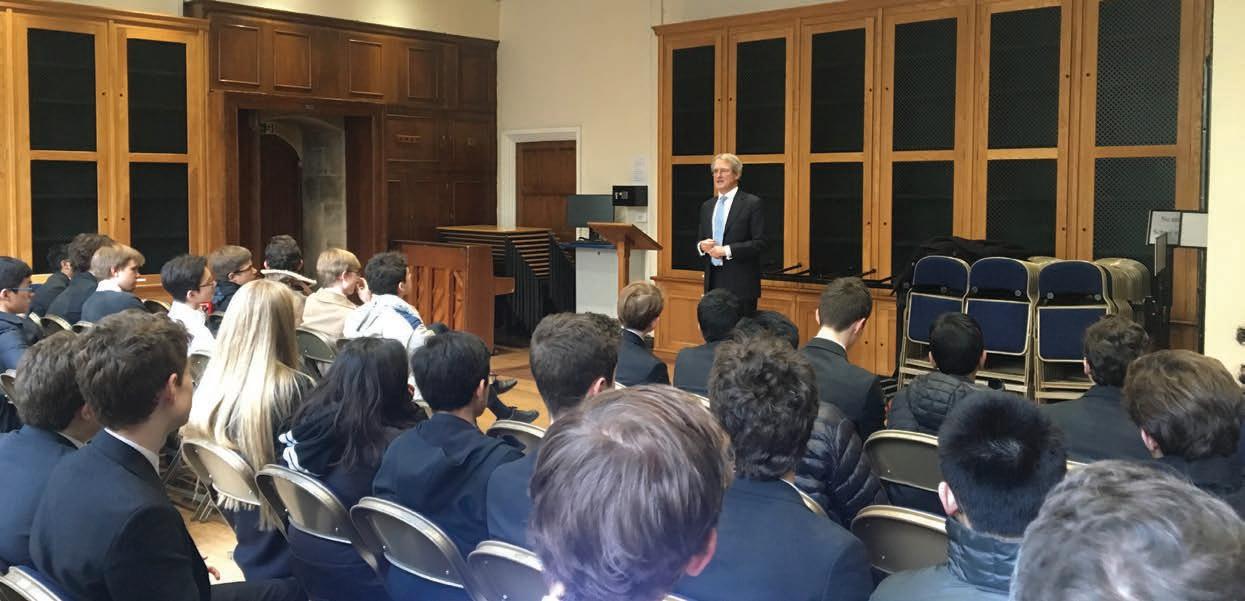 by Skyler Lu (RR)
by Skyler Lu (RR)
John Stace Geography Society has had an extremely busy and productive year so far, as pupils can probably tell from the number of posters we put up with our signature pink stripe. We are very fortunate to have four fascinating external speakers this year. Our first speaker, Mike Mason, spoke about his research and interest in the Global Carbon Crisis. He was followed by Owen Paterson MP, who offered us his thoughts on Brexit: as a member of the ‘Leave Means Leave’ political advisory board, the Q&A session was a breath of fresh air. Gabriella Rutherford from Survival International expressed her passion for defending tribal people’s rights during the conservation process. Our final speaker, Anita Lowenstein, explored themes and ideology surrounding her research on violence, conflict and war.
Pupil-led talks in the society are opportunities for Sixth Form pupils to deliver their own thoughts and for the society to get together. Topics ranged from Japanese demographics to international organizations as well as poverty, the Arctic, social impacts of capitalism, and the development of New York. Snacks are abundant but focused around chips, about which one of the society members is especially passionate.
The society has also been actively participating in a range of other activities. The Sixth Form Geography quiz took place at the start of the year. Two society members attended the Tacitus Lecture delivered by Christine Lagarde, and a team of four from the society represented the School in the Tacitus Public Speaking Competition this year.
We would like to thank Mr Stace, Ms Hughes, Mr Wurr and Mr Stockdale for all their help in running the society. We are very much looking forward to the year lying ahead of us!
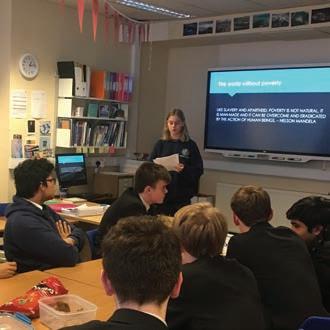

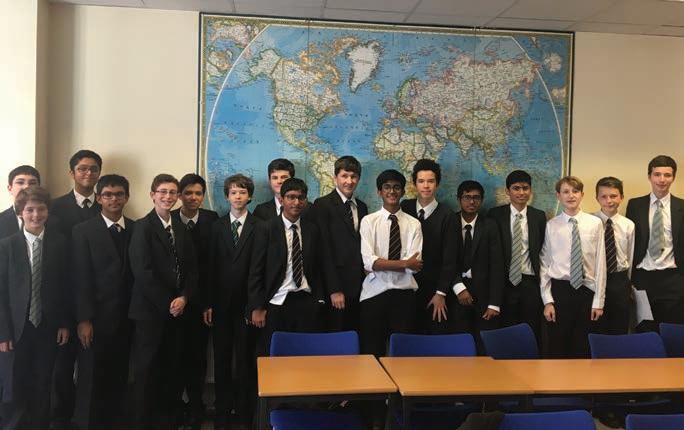
The
McKenzie Society entered its second year in 2018, building on the strong foundations of its inaugural season.
The McKenzie Society entered its second year in 2018, building on the strong foundations of its inaugural season. Catering largely to the Lower School, its aim is to provide a platform for those interested in Geographyrelated matters, with a regular series of talks, quizzes and debates. The year kicked off with a lunchtime quiz, in which 12 teams took part; among the more obscure questions was ‘List as many countries with only one vowel as possible’. The popular programme saw the continuation of Geography Bites, a series of short talks by pupils, with memorable topics including ‘Why the American population is scared of bandages’ and ‘Unrecognised Countries and States’. A lively debate, ’This House would limit open migration between countries’, formed a topical backdrop to the Brexit debate and Trump’s plans for a wall on the border of the United States with Mexico. There was also a series of fascinating talks given by members of the Fifth Form, with topics ranging from ‘Hergéographie: The geography of Tintin’, to ‘China’s relations with the outside world’. Winners of a further contest went on to represent the School in the prestigious Geographical Association worldwide quiz. The team of Piers Wilder-Jacobs, Cosmo McWilliam and Nikhil Singh won the quiz and ended up securing third place in the competition overall.
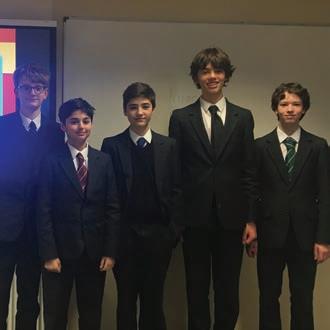

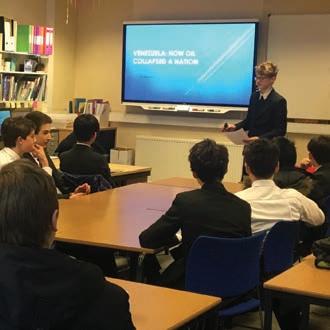
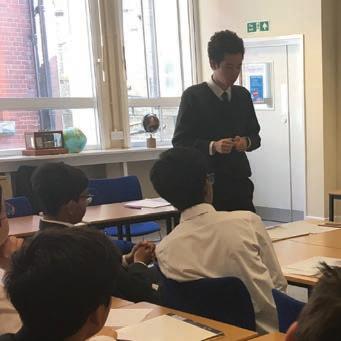

 by Angus Colwell (HH)
by Angus Colwell (HH)
Rec Soc went so well in 2017/18 that Hari and I were wary of the ‘secondterm curse’. We appealed to US history – don’t fund a terrorist organisation through selling arms, don’t have sexual relations with that woman, and don’t plant listening devices in your rival’s base. While we can only apologise for the first, deny the second, and remove the teddy bear spy camera from Film Soc’s base for the third, our sins were cloaked enough for Rec Soc to enjoy another exhilarating year.
The year kicked off with a talk apprehensively entitled “Under the Covers with Mr Allchin”: any law enforcement authorities who attended would have been delighted to put the handcuffs away, and sing along to Tina Turner and other cover songs. My talk on sad songs featured a mass shout-along to Foreigner’s I Want To Know What Love Is. We apologise to Philosophy Society downstairs who had to endure such ear-sores, although we hope we exemplified Rudolf Otto’s criteria for a religious experience.
Head of Security Simon Lynch delivered a talk as secure as the premises as he illustrated ‘his punk journey’ – hilarious and captivating,
and good for Rec Soc actually to have a record player present! Richard Li followed on the human voice, and the term ended with a Christmas songs special. In February, we welcomed our first external speaker, Nataly Dawn, an internationally-renowned YouTube musician. She charismatically illustrated her trade, as well as the context for the creative person in 2019. Next, Mr Derham (somehow) agreed to come to Rec Soc to speak on “me and Bowie”, playing his favourite five tracks from the Starman.
Finally, after a quiz that was shockingly won by national general knowledge champion Leo Doody, Hari and I realised that Rec Soc can’t be run from uni and handed over management. We’d like to thank our patron teacher Mr Allchin for his humour and assistance, Mrs Murphy for letting us invade her classroom, Mr Page for letting us start the society, and Helena Zara for handling our administrative chaos and acting as paparazzi. Lastly, we should thank the Rec Soc regulars, who provided an audience for our passions, and had a refreshing lack of perspective on which talks to turn out the large audiences for. As Nickelback once sang, “goodbye ”.

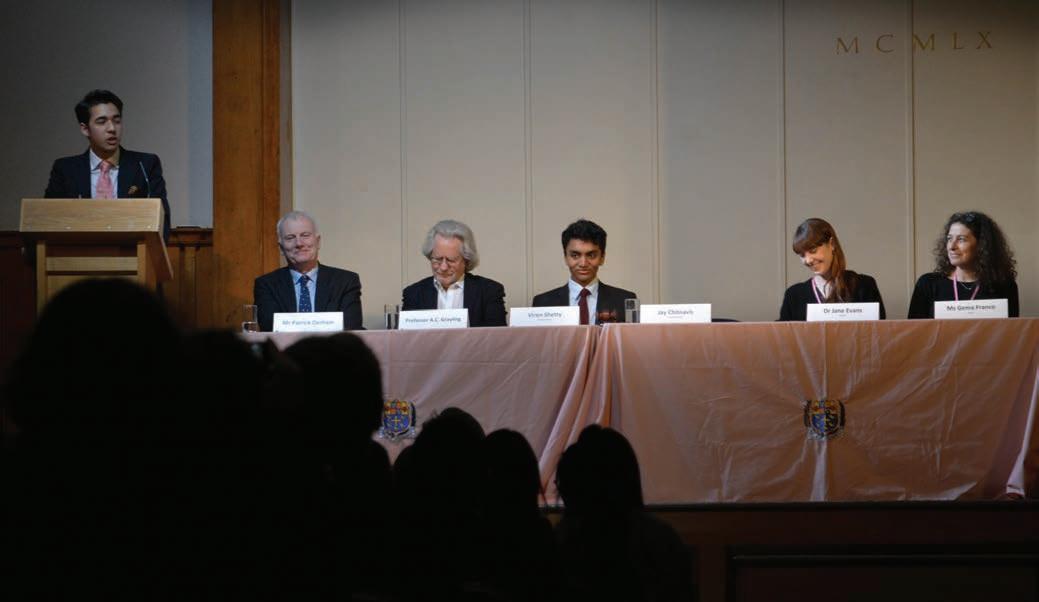
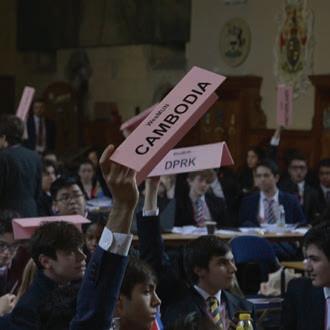
We were fortunate enough to have Professor A C Grayling give the Opening Ceremony address, giving delegates valuable insight into the many aspects of democracy for them to begin debate promptly on Friday evening on topics under the conference theme: “Establishing and Consolidating Democracy: A means towards stability and social equality”. Committee issues ranged from ”colonial repayment and expatriated cultural artefacts” to ”the Situation in Kashmir” and even ”Security Council Reform”, debated appropriately in the Security Council, housed in the Gibbon Room, under the Presidency and Co-Presidency of Lara Brown and Cate Goldwater-Breheney respectively.
One highlight was the time capsule of Room 13, where Sam Rubinstein and Melissa Adams turned the clock back to 1966, debating the Samu Incident and the Ghanaian Coup with
Third-time lucky? From the 15th-17th February, three years after the last Westminster Model United Nations (MUN) Conference in 2016, School played host to a General Assembly of 200 delegates, ambassadors and press officers with schools from all over the UK, and two from Italy and Morocco.
the benefit of hindsight. While the Library was transformed into a frenzied den of Resolution printing, tasteful tote bags and Excel spreadsheets with Tara Sallaba, Nathan Leon and Himeno Nimi running the show, Room 24, our ‘Press HQ’, was a peaceful and scholarly sanctuary (so I like to believe) with the quiet buzz of articles being drafted for the daily WesMUN Paper, under the management of Angus Colwell.
As the conference progressed, everything fell into place and the months of hard work came to satisfying fruition. Pink plastic placards, the product of too many lunchtimes spent in Open Workshop trying to remember how to use a ”stripper heater” (I think it’s called that but I’m not sure because I wasn’t paying attention in Fifth Form), were finally put to use, and iMUN, our bespoke WesMUN online software created by James Bithell and
Freddie Poser (OWW), was up and running and did not let us down once. Despite the failure of certain committee chairs to attend 9am meetings, Head Chairs Aryan Mishra, Charley Gillingwater, Thomas Adamo and Alethea Ling led their teams valiantly into Sunday morning, with every committee able to pass a resolution before the plenary session and take part in a giraffe-related crisis. Even Security Council delegates, after hours of heated debate, came to the General Assembly after invoking UN Charter Article 377, under which a P5 veto could be overridden by a supermajority in GA. Despite the Assembly’s failure to support council members in their endeavour to reform the Security Council, the conference was able to end on a high, with many delegates and advisors ending the conference by simply asking to confirm dates for next year’s conference.
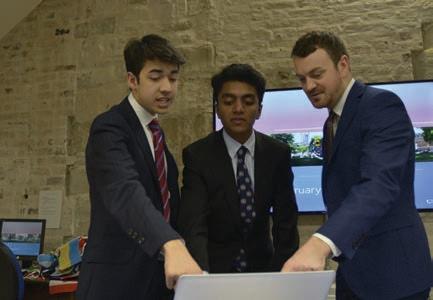
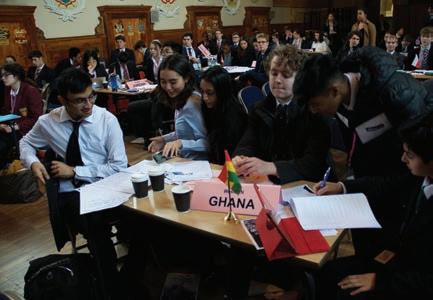
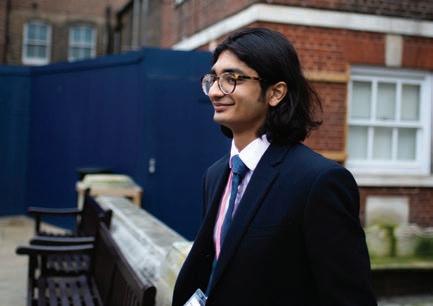
Of course, none of this could have happened without the three bastions of Westminster MUN: Dr Evans with her attention to detail and beautiful handwriting on every delegate’s participation certificate, Ms Franco and her invaluable socio-linguistic skills, and of course Mr Brown, who is yet to recover from the sheer onslaught of emails and admin throughout the year in making this happen.
For us, WesMUN marks the culmination of our MUN careers at the School and has been something we have dreamt about since our first days as delegates in the Lower School. So we’d like to thank everyone who was involved in the conference, in any capacity, for helping to make it such a success. We may depart in peace, knowing that the UN flag will rise in Yard for many years to come, just hopefully with a proper knot next time.
Various informal concerts took place in lunchtimes throughout the year, with a large variety of repertoire performed. Many music award holders took part in this, with performances from all years. Among those who performed were James Garagnon (Remove), Jonathan Watts (6th Form) and Titus Parker (Lower Shell). Chamber groups and pupils taking ABRSM Music and GCSE music exams also performed; Henry Bishop (piano), Vivian Lui (violin) and Maryam Zaidi (cello) gave a stunning performance of Debussy’s Piano Trio in G major. There were various celebratory concerts too: Alexander Austin was appointed the new Henry Purcell Organ Scholar for the next two years and gave a fantastic solo recital in the Chapel, and a concert by the successful Oxbridge choral scholars, including Darcy Dixon, Clara Falkowska, Nicholas Bacon and Agatha Pethers, gave a concert. The piano scene was very active as well this year: the Steinway up School was used for solo recitals by Veronika Izmaylova, Shutian Cheng and Zacharias Brandman. Overall, Music Society has been a great opportunity for pupils of all ages and abilities to perform, and we hope that it will continue to flourish next year.
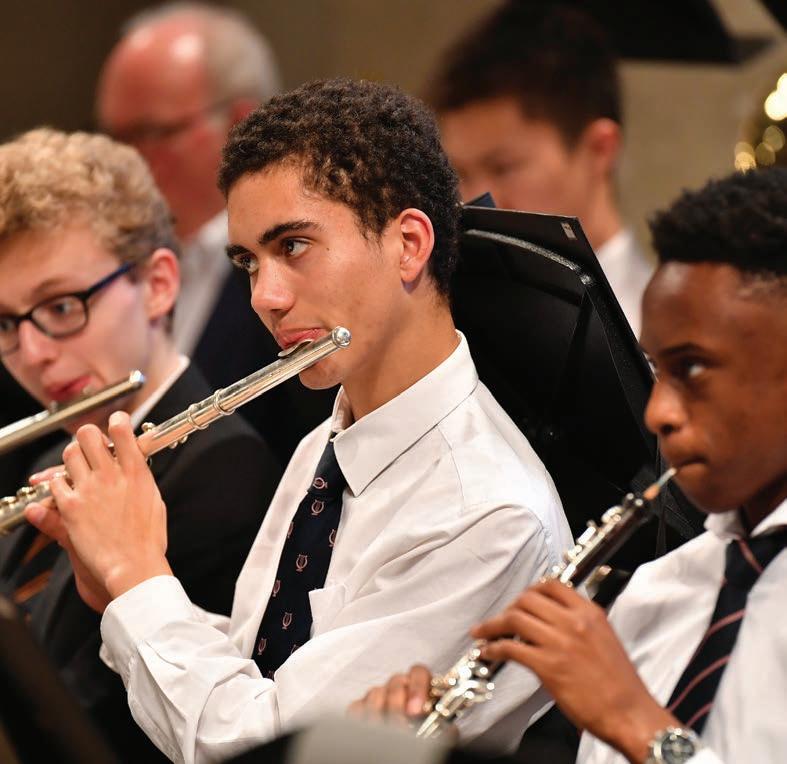
This has been a busy year so far for Art History Society, with a variety of different meetings. We have had pupil-led talks on many different areas of Art History, from Scandinavian contemporary art duo Elmgreen and Dragset to the works of Goya’s Black period. Our lecture series has focused on non-western art, and aimed to cover areas of Art History that remain neglected by mainstream syllabi, including Dr
Christian Sahner’s talk on Art and iconoclasm in Islamic tradition and Emily Hannam’s talk on curating the Splendours of the Subcontinent. The most popular talk this year was Dr Alexander Röstel’s lecture on his National Gallery blockbuster show ‘Mantegna and Bellini’, which shed new light on old masters.
Meanwhile, Art History pupils have been continuing to pursue their
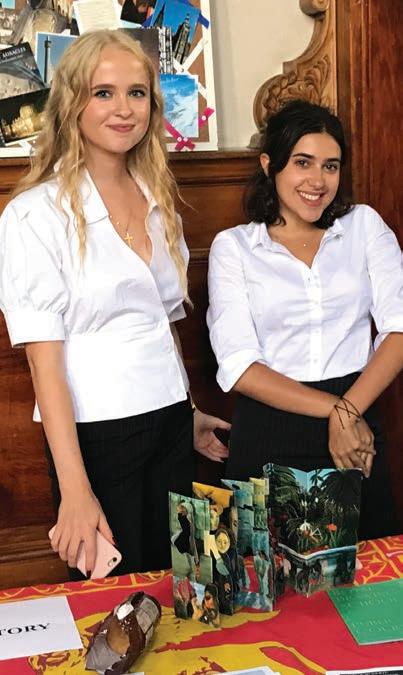
interests in art outside the classroom with Gastronomical Art Society – Mr Walton making a Renoir-themed feast for participants who then re-enacted the famed Le Déjeuner des Canotiers Pupils have also participated in the ARTiculation competition, giving talks to guest judges from the art world on variety of subjects including Munch, Ibsen, Jeff Koons, and Antony Caro. Zoe Turoff won the internal heat with her fascinating talk on Maurice


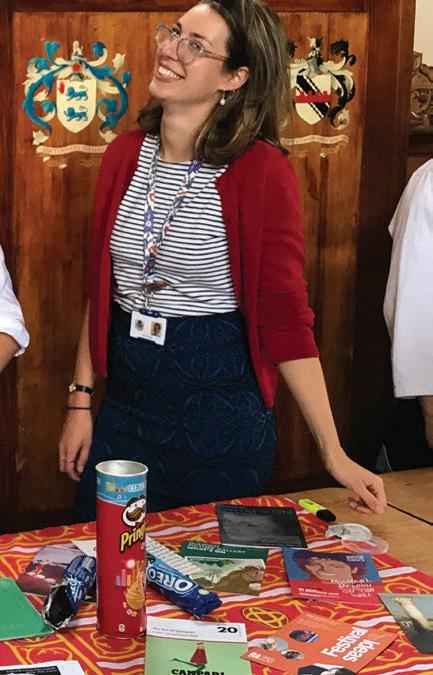
and proceeded to represent
School at the Royal Academy. The society continues to encourage interest in art and culture within the pupil body, using the incredible galleries and museums near School, and making as much use of Westminster Abbey as possible.

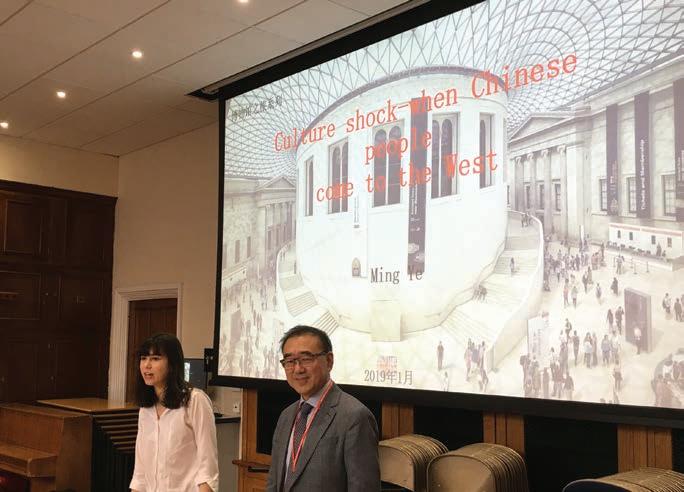
2018 saw the foundation of the East Asian Society, creating a space to foster discourse and promote awareness of East Asian culture, politics and geography, as well as to give the large proportion of the pupil body from the region a voice and a form of representation within the wider school community.
Our inaugural meeting raised issues of identity, cultural shock and integration in the UK coming from an East Asian background. Since then, we have welcomed guest speaker Ye Ming, a Chinese history scholar, and heard a diverse range of talks from pupils, from Chinese diplomacy to the role of masculinity in shaping Thai politics. We have also collaborated with other societies, such as our joint talk with Feminist Society on the topic of sexism in China. Election Term promises many more impressive pupil-led events and talks, including a discussion of the development of science under a totalitarian regime. We look forward to the continued growth of East Asian Society and hope it remains a permanent fixture at the School in the years to come!
The founder of Pride Society, Leanne Yau, recently came back in to give a talk for us on her experience creating the society back in 2015. She talked about the backlash she and her friends faced from other pupils who didn’t think it was necessary to have a Pride Society at Westminster, and the low attendance that they got at their talks. She was initially surprised that it was still going and, upon finding out about all the success of Pride Society over the years, was shocked and proud. We now have talks from prominent guest speakers such as Rain Dove, a non-binary model and activist who had an attendance of nearly 50 pupils from different year groups, and we have a large and supportive community. Transgender awareness week and Pride month were both recognised and celebrated at the school, with us collaborating with the Library to put up displays of LGBT+ literature. Pride Society at Westminster has developed due to the hard work of many different pupils, both allies and members of the community, to create a comfortable, welcoming space for all, where we can both discuss significant issues and celebrate key parts of LGBT+ culture. We couldn’t be more proud.
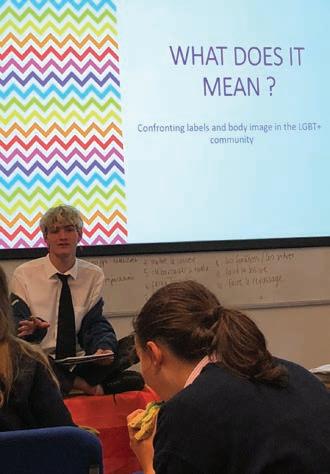
 by Senkai Hsia (LL)
by Senkai Hsia (LL)
I am very proud to say that 2018-19 has been the most successful season for the Westminster Debating Society in recent years. The product of the hard work and dedication by our coach Teck Wei Tan, Miss Barton, and the infectious enthusiasm of the team resulted in 13 Westminsters earning awards at 15 competitions, against schools and universities. Westminster was the top-performing secondary school debating team in Europe this year.
The society continues to blossom in the Lower School: Nicolas Rackow and Ryaan Sultan were champions of LSE Juniors; Oliver Beeby and Nicolas were the semi-finalists at the KCL Schools, and Ayan Vijaypurkar and Oliver Beeby reached Oxford Schools finals day.
Particular highlights in the Upper School included: Selina Wang and Elias Laurent (who had not debated before this year) winning the UCL novice final; Amelia Sellors and Melissa Adams reaching Cambridge Schools finals day: Joshua Loo picking up five top ten speaker awards and breaking at UCL, Cambridge and Durham; and Jonny Heywood and me being grand finalists at Hart House in Toronto. Westminsters also performed at university level, either breaking, being top ten novice speakers or outright winning university IVs. But the greatest highlight was winning the treble of Oxford, Cambridge and Durham Schools – the three most prestigious schools tournaments in the world. Jonny and Sharon Chau beat over 4000 teams to win Oxford and Cambridge, an exceptionally rare accolade. They were the first team to win both since 2015, and the first Westminster team to win Oxford in 13 years.
From all the laughs on hours of train rides, to struggles finding (and in Sharon’s case picking up) food, thank you to everyone who has made this team my home. I know the intense passion, dedication and love for debating we all share will only continue to grow next year, and I am excited for what lies in store!
For good or ill, Economics Society, like so many other things, has been dominated by Brexit this year. A joint lecture with the French Society by Marc Roche, journalist and author of Brexit va réussir, discussed Brexit from a Francophile perspective, while a vigorous (to put it politely) debate between Joe Devlin and me on the economic effects of Brexit combined incisive discourse and Union Jack onesies in roughly equal measure. Respite came in the form of Abigail Wallace’s talk on the economics of Broadway, Annika Heath’s examination of the housing crisis, and a refreshing re-evaluation of economic orthodoxy by Dr George Cooper, author of three books exploring the fundamental problems of economic and financial theory. So not quite all Brexit, then.
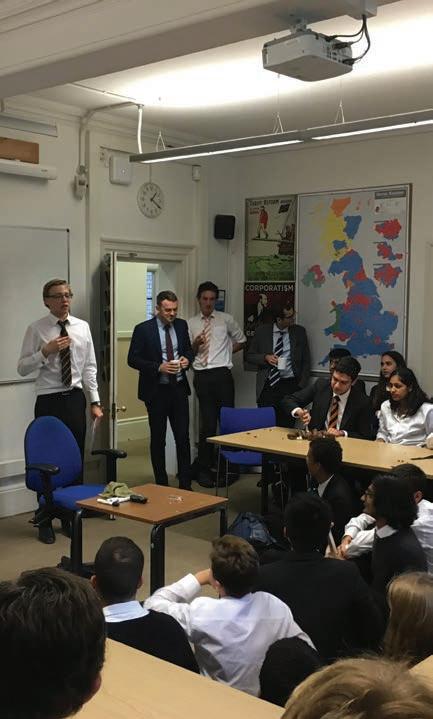
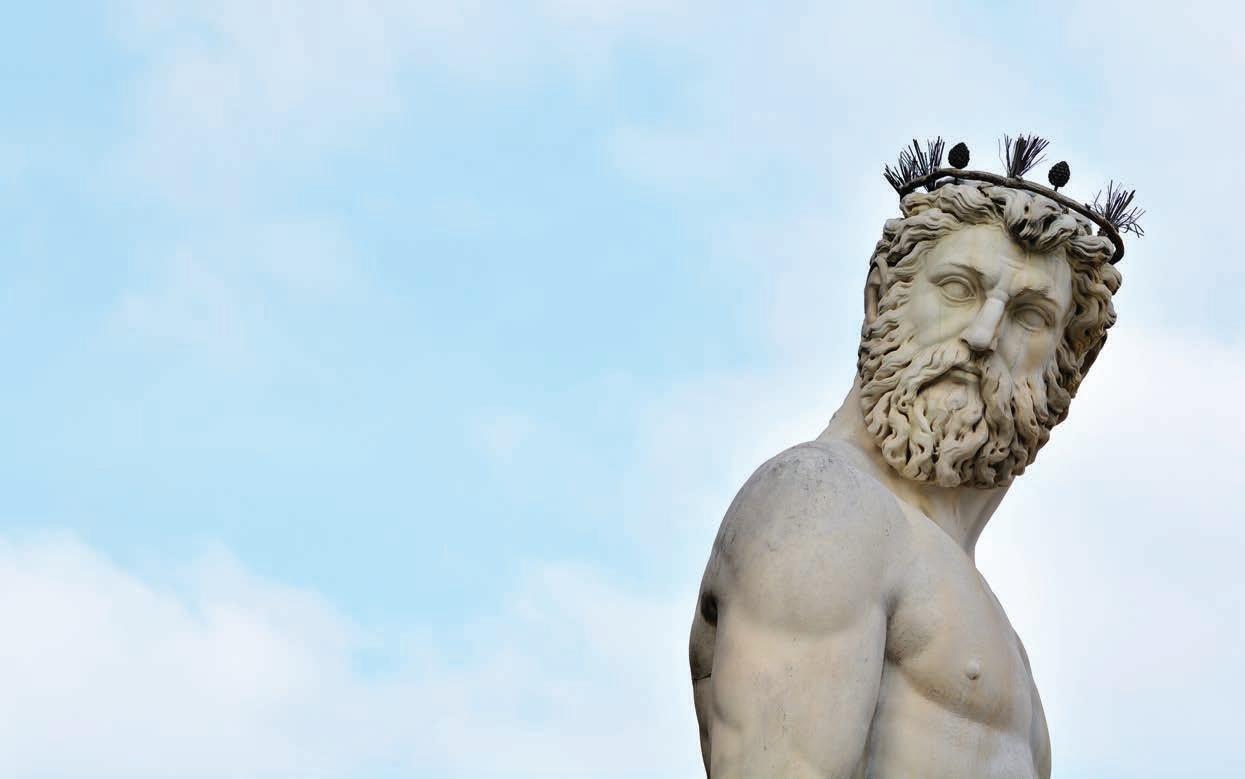 by Jadd Virji (GG)
by Jadd Virji (GG)
This year, the Classics Society has seen great change and as a result has reaped great rewards. Just before I became Lead Pupil, we held a pair of pupil presentations at one meeting which, I am told, was one of the first occasions of its kind. Subsequent iterations of this format proved very successful, with fascinating yet approachable talks that attracted many members of the school community, enriched many minds, and presented several opportunities to those delivering the talks. This year, we have introduced meetings specifically targeted towards the Lower School, including talks and a quiz, which have proved exceptionally popular. This provides a great chance for younger classicists to learn more about aspects of the Ancient World that they would not necessarily encounter in the classroom. There have been several trips to lectures, conferences, and more; these have been of very broad backgrounds, allowing Westminsters to explore all sorts of areas of Classics. It goes without mention that none of this would be possible without the tireless work of Mr Ireland and the other Classics teachers.

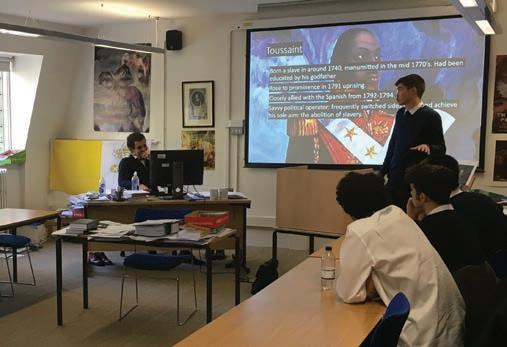 by Patrick Coker (PP)
by Patrick Coker (PP)
History Society has had an excellent year, with a range of pupil-led talks and external speakers. Pupil-led talks spanned 2000 years of world history; highlights include Max Mutkin’s talk on homosexuality in history, Brian Chen on the Boxer Rebellion, Leo Doody on the Haitian Revolution, and Alexander Sun on Historical European Martial Arts. External speakers ranged equally far. In November, Professor Louise Wilkinson of Canterbury Christ Church gave a talk on Eleanor de Montfort, and in January Dr David Smith of Selwyn College Cambridge gave a most enjoyable lecture on Oliver Cromwell. Hot on his heels, the great Christine Carpenter, also of Cambridge, gave a lecture on what life was like in the Wars of the Roses. We rounded off our external lectures with Professor Peter Gaunt of the University of Chester in March, talking about the reasons why Charles I lost the English Civil War. Together, their talks covered 400 years of English history. All in all, History Society this year has been both successful and educational.

 by Joseph Devlin (MM)
by Joseph Devlin (MM)
Conservative Association has enjoyed a fruitful 2018-2019 under the leadership of Joe Devlin and Ben Hyman.
Attendance at talks has been extremely high, and it was particularly pleasing to see a great number of junior members of the school community engaging with the association. We must also appreciate the welcome presence of respectful opposition, acting as the catalyst for brilliant debate.
We were fortunate to welcome several Conservative MPs this year: James Cleverly, Deputy Chairman of the Conservative Party; Kirstene Hair, sitting on the Women and Equalities committee; Daniel Kawczynski, the tallest MP in the House of Commons; and Johnny Mercer, an outspoken representative of armed forces personnel. Stephen Woolfe, an Independent MEP, provided a refreshingly honest and inspiring talk, perhaps due to his absence of party affiliation.
We greatly welcomed the Societies Fair at the beginning of the academic year, as it was a brilliant opportunity to interact with those whom might otherwise not have considered attending a Conservative Association lecture. A mention must go to Arthur Pickering who, on behalf of the association, produced an outstanding display with his magnetic appeal drawing pupils to the association’s table stall.
All in all, it has been a bountiful year for the association, with ambitious plans for cross-society talks in the pipeline.
This has been another exciting and innovative year for Westminster Feminist Society. Bringing together pupils from all year groups, backgrounds and genders, we have discussed everything from pornography to period stigma (accompanied by red snacks!).
Following in the footsteps of Rosa Calcraft and her inspirational committee has been no easy task, but we hope to build on their fantastic work, carrying forward initiatives such as the Red Box Project (collecting sanitary products for under-served women) and Girl Talk (our informal weekly pastoral meetings to discuss the unique issues facing girls at Westminster). We have formed a mutually beneficial partnership with the Intersectional Feminism Society at Harris Westminster Sixth Form, kicking off the calendar with a well-attended panel discussion on body image. Going into the new academic year, we look forward to expanding our intersectional focus and engaging an even wider cross-section of the school community, particularly by promoting discussions about equality issues in the younger years of the school. We remain incredibly grateful to Dr Evans for all her hard work and support throughout the year and look forward to even more feminist fun in September!



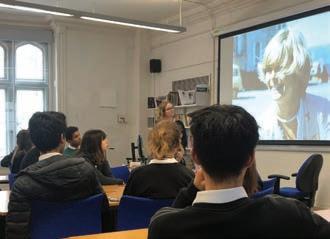
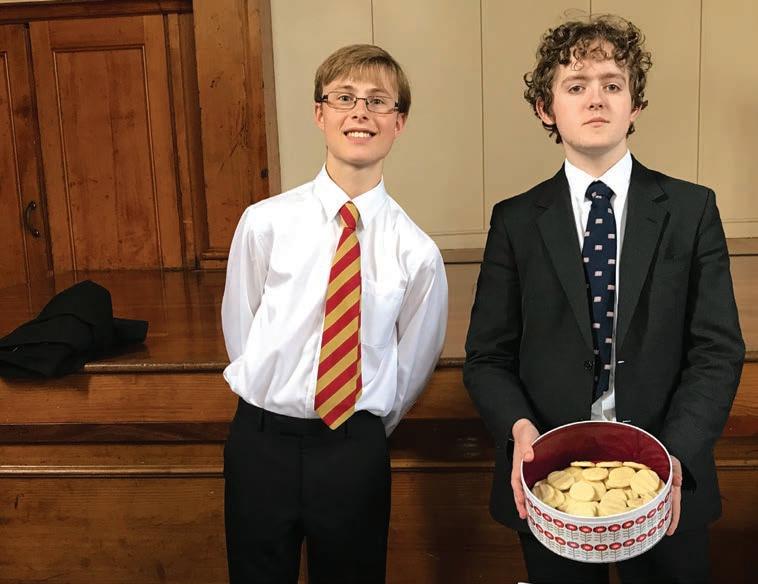
Stipatores Honorati – the Followers of Honoratus of Amiens, patron saint of baking – known also as Cake Soc., has had another very successful year. It remains a popular place to escape the hustle and bustle of school life, if only for an hour each month, where one can enjoy a cup of somewhat overbrewed tea, a slice of cake or other baked goods, and plenty of intellectual conversation on related themes. This year, we have sampled and discussed a truly diverse range of baked goods from Aberffraw biscuits and Jaffa ‘cakes’ (whose classification was hotly debated), through tarte Tatin and a range of ginger cakes, to carrot cake, banana ‘bread’ (another term subject to extensive societal scrutiny), and the towering chocolate excess that was the Bavarian Prinzregententorte.
Stip Hon is flourishing, and seems to have become an oasis for ever more Westminsters, from a range of year groups. This success is particularly remarkable given the relative age Stipatorum Honorati. Of course, we owe this all to William Mirza (MM), who has worked tirelessly for the past two years to prepare and organise the most delicious and enlightening recipes, and to seek out historically and culturally relevant cakes, from seblet cake, which is as “nectar and ambrosia” to the eponymous hero of Jane Eyre, to black bun, whose tradition of the Queen of the Bean was followed by Mary, Queen of Scots and outraged the English ambassador. In founding this society, he has provided a unique place of calm in the School, providing nourishment both literal and intellectual. We will miss him dearly, and we wish him all the best in his adventures, culinary and otherwise, ahead. It is difficult to conceive of Stip Hon without William, but we are sure that the veritable institution he has created will live on, and bring its singular charm and joy to many pupils for years to come.

There is something faintly civilised about the scene: the Chaplain, with hastily written notes, speaking of Scruton (or a movie) to an attentive audience of between about three and 30, over various forms of pastry; there is nothing, however, civilised about the time, a sole concession to the monastic discipline of the former inhabitants of the Refectory.
Even in these surroundings I convince myself that attendance is somehow heroic: the District line seems calculated to disrupt my plans to arrive on time. It isn’t really; we are a collection of would-be geriatrics complaining about modernity and change, even as the dialectic succumbs to the two: the Marxist lobby is a new innovation, as are the scientists, whilst the former bien pensant centrist types have declined in number, if not disappeared entirely.
That leaves the Chaplain, without whom self-consciousness or ambition would intervene to strip the whole affair of its irony. Pupils leave; virtues decline; but the advance of catastrophe is arrested by the act of resistance that is the rolling of bottles of orange juice across the table.
The Art Department is in a constant state of innovation and change – shifting and shedding our skin – we are always looking for something new, celebrating innovation and championing the radical. The daily imaginative work is inspired by the vast array of technical methods available, and we are adding to these in hope of finding new ways for the Artist to have their say. The lateral movement of the brain is significant to the creative discovery and that particular bravery is what inspires the central idea – as artists we “dare to fail”. However, the tradition is never far from our thoughts, and the superb paintings that have emerged this year are testimony to the ambition of the pupils. Francesca Magnus’ portrait work was formidable, resulting in one of her pieces being bought for the Westminster collection, Alex Gardiner’s homage to de Kooning was fluid and gorgeous, and Ishan Kotecha’s unbelievable photorealism demonstrated that there is no such thing as a Westminster style. There have been intriguing and memorable installations too: future architect Sanara Piensuparp’s Shelters for a Stone was chief amongst them, with Max Hubbard (architect too) following with his unique extruded line. We were lucky to have Tom Hammick join us for an ARTISTALK, an event which anticipated his recent show at Flower Gallery on Cork Street. The beautiful reductive lyricism of his work was an inspiration, of course. So too was the intense and persuasive talk given by Emma Louise Hollaway, OW: a graduate of both Art History and a Drawing MA she was able to twin those themes in her work in seductive and intellectual ways. Drawing continued to be a feature of the whole year – a subtle focus perhaps: Defne Artun’s phenomenal drawing of Great College Street won her the Funaki Prize. The end-of-year show was a culture overload – work from the GCSE and A-Level pupils wowed the audience, and rightly so.


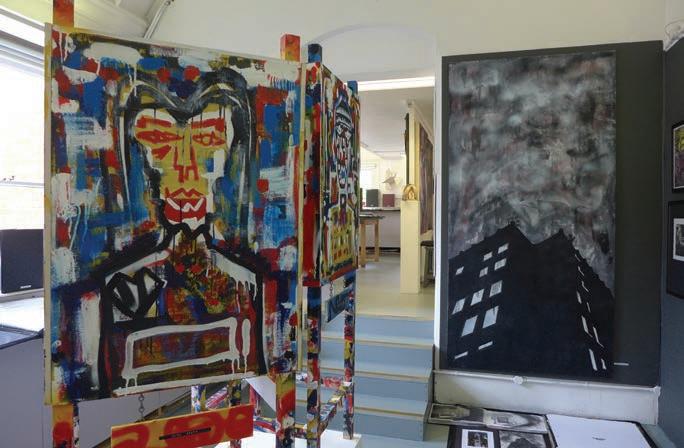







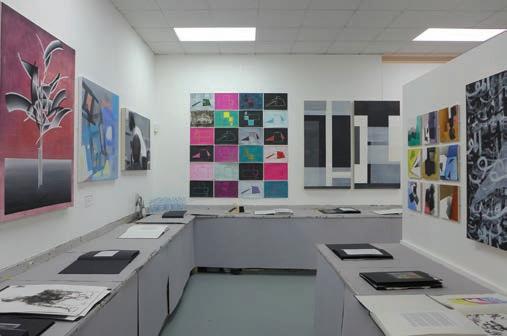





Drama burst onto the stage in early September 2018, with a highly physical adaption of Kafka’s world-famous story, Metamorphosis, staged in the MFH. The Theatre Studies group, accompanied with original music from Raf Dworkin, presented this absurd, grotesque exploration of what it means to be human.
A Night at the Movies : over 60 Sixth Form pupils, new and old, came together to showcase a selection of iconic scenes from classic films. Scenes directed by pupils in collaboration with the Drama department proved a huge hit with audiences. Through framing and shadow work on a cinematic screen, movies from Casablanc a to Jurassic Park became possible, effectively bringing the genre to life. As usual dance numbers were prominent, including routines from Saturday Night Fever, The Blues Brothers and West Side Story Due to the success and popularity of this format, plans are already underway for Night at the Movies 2 !
A series of supernatural excerpts from plays by William Shakespeare and other writers from the Elizabethan and Jacobean eras was the focus for the Elizabethan Festival. Created in three days, six workshop leaders directed 12 spooky scenes. The Elizabethan Festival has played a central role in the Fifth Form’s cultural week for the past few years. A professional company, Turn Of Phrase, worked with pupils and successfully devised fresh perspectives on drama from the Elizabethan era. Every pupil in the Fifth Form became part of this epic evening of theatre.
November marked 100 years since the end of one of the most destructive wars the world has ever known. In remembrance of Armistice Day, pupils – Fifth Form pupils from the LSA and Lower Shell pupils studying Drama –devised pieces of theatre to honour those who fought and died in the Great War. Staged in the intimate surroundings of the MFH studio, Commemorate proved a moving and poignant evening of theatre.
Rigaud’s and Liddell’s joint House play, Hotel Paradiso, took over the MFH main house in late November. This farcical tour de force was brilliantly staged by the directorial team of Abby Thayananthan and Alex Foster.
With an unprecedented response for tickets – 90% gone on the first afternoon – anticipation was high for the musical, My Fair Lady. With a huge cast, 150 separate costume changes and all ensemble members playing at least three characters, it became clear as to why it is known as “the biggest musical in Broadway history”. My Fair Lady proved a great success. The combination of a brilliant set, sumptuous costumes and atmospheric lighting in conjunction with a committed talented company made it a truly memorable evening.
The Bentham room provided a perfect venue for Wren’s House Play, Whodunnit by Peter Shaffer. This charming spoof, cleverly crafted and directed by Dr Durno, proved to be an inclusive and fun-filled production.
Moving into May, after a few rewrites and treatment from a professional dramaturg, Rishi Sharma and Owen Igiehon got the opportunity to get their play, The Fourth Wall, performed in the MFH Studio. Staged as a play reading, and thoughtfully directed by Asha Bakhai, The Fourth Wall was well received by audiences, who were encouraged in giving written feedback to this work in progress.
The hilarious parody thriller, The 39 Steps, proved a perfect vehicle for the Lower School Play. Directed by Director in Residence Harry Kingscott, the production was full of colourful characters, car chases, romance and intrigue.
Future productions include: House plays, Night at the Movies 2, The Elizabethan Festival, Thyestes, Little Shop of Horrors, Earthquakes in London, 24-hour Playwriting and the European Drama Festival.





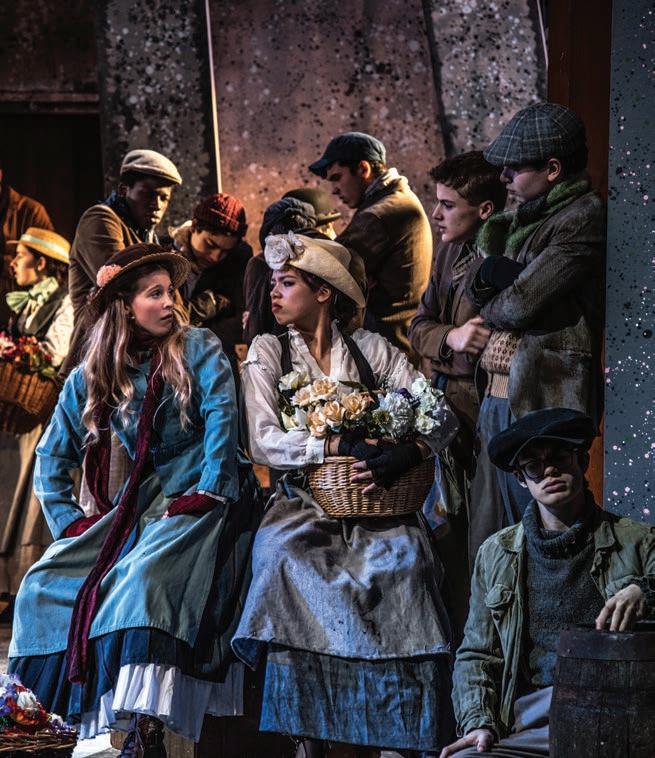

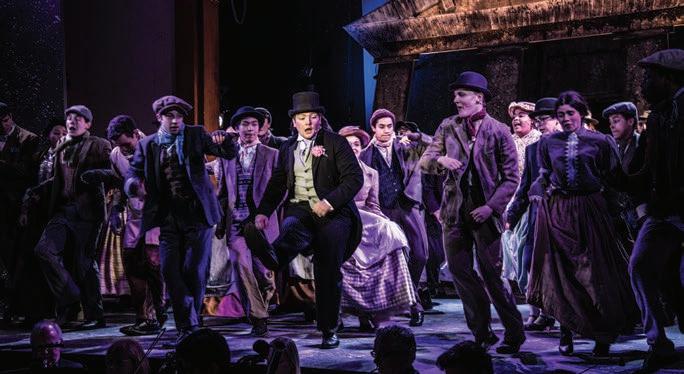


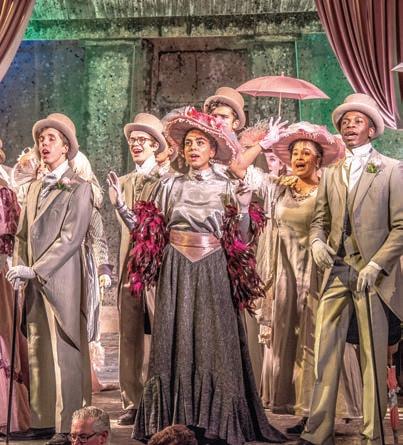


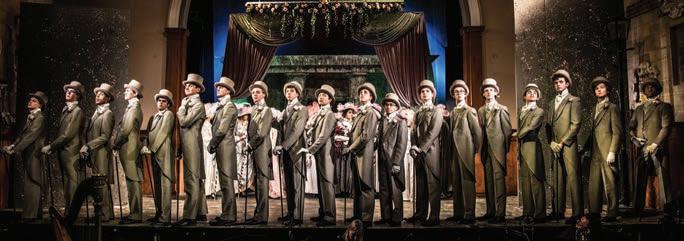
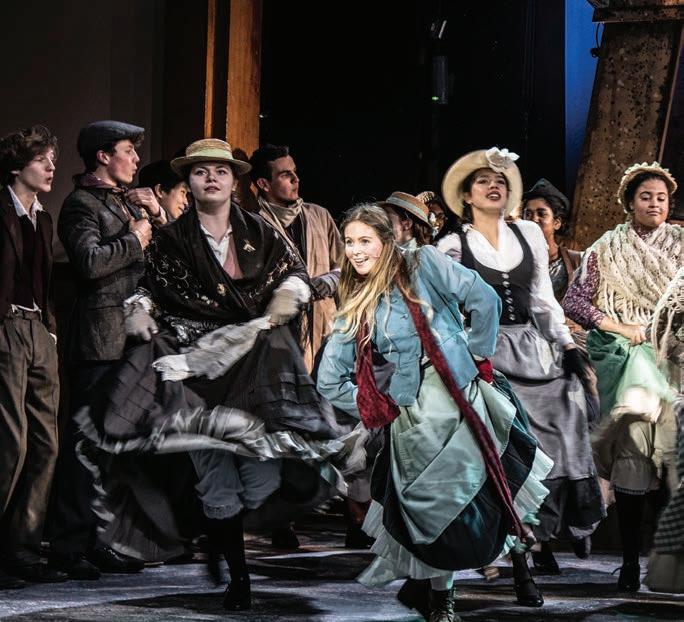

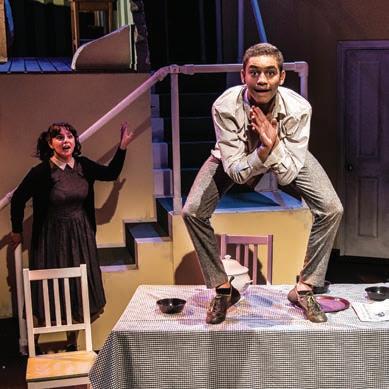

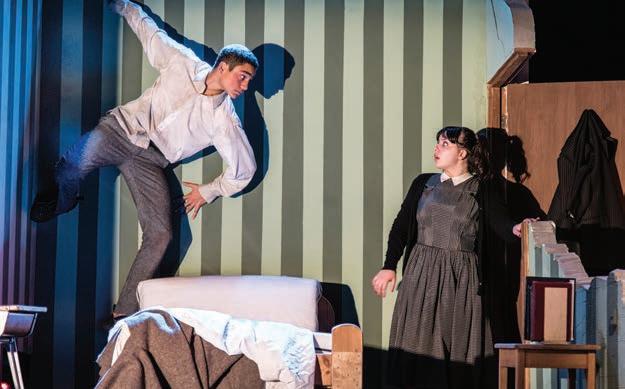



Night at the Movies

As Director in Residence, I provide artistic support to the Drama Department, sharing my experience as an actor and director. I currently teach Speech and Drama, preparing pupils for their Gold LAMDA Acting award and I support curricular lessons across the year groups. My day can vary greatly, from teaching devising in the Fifth Form to physical theatre in the Sixth Form. When I’m not at school, I continue to work as a freelance actor; I’ve recently been performing in Birmingham and at the Barbican in London. I’m also involved in other projects as a Director, across the UK and in France.
My first project at Westminster was the ambitious Sixth Form Drama Festival, “A Night at the Movies”, with a cast of


60 pupils performing scenes from memorable movies. This was less like directing one show, and more like directing 16 mini shows and curating them into a coherent whole. I must say that I was so impressed by the talent and the level of professionalism at this school! The festival is an excellent way for the new Sixth Formers to get to know one another, and it is possible due to the amazing teamwork of the Drama Department staff. We each contribute our individual expertise, just like a professional theatre company. I think Westminster pupils are incredibly lucky to have such a resource of experience to learn from.
The next big production I will direct this year will be the Drama LSA pupils’ performance of ‘The 39 Steps’. It is a
spoof of a 1920s spy thriller and involves lots of physical theatre and comic timing. Our rehearsals are going well and we often have to be rather experimental. Questions we have come across so far are: ‘How do we show a chase across the roof of a speeding train?’ ‘Or a plane crashing into the Scottish highlands?’ ‘How can one actor play four characters within one scene?’ It’s a lot of fun.
Working alongside genuine experts in acting, directing and backstage in the Drama Department is a real privilege and we constantly offer pupils opportunities to get involved in theatre, which is lovely to be a part of. If anybody wishes to know more about acting or a career in the arts, I’d be happy to discuss this with them!
The Play Term began with a fantastic Westminster Musician of the Year (WMOTY) Winner’s Recital at St Margaret’s Westminster, given by one of our outgoing School Music Captains, James Tett. James completed his A-level studies in Election 2018 and took up a place at the Royal College of Music with joint first study violin and organ. Our other captain, Ella de Csillery, matriculated at St John’s College Cambridge, winning a university instrumental award and a place in the Choir of St John’s Voices. Elsewhere in this year group, Tommy Leo went to the Royal Academy of Music to study the piano and has just been accepted, as the only musician in this year’s cohort, onto the dual degree programme between Yale University and Yale School of Music.
Samir Hutchings, Angharad Kellett, Louisa Stuart-Smith and Katie Voake won choral awards at King’s College London, The Queen’s College Oxford, Trinity College Cambridge and Exeter College Oxford respectively.
Mr Richard Hall’s arrival as School Accompanist in September significantly increased the opportunities on offer for all of our pupils to perform as soloists. We continue to give regular lunchtime recitals at The Guards’ Chapel in Wellington Barracks, and the birth of MusSoc (Music Society) has allowed a large number of pupils regularly to perform in-house in the Chapel, MMC and up School.
Perhaps our main focus this year, in partnership with Mr Brian Smith and the Wellbeing Department, has been
Music and Wellbeing. In the Play Term, external speakers Michael Griffin and Daniel Moult gave talks entitled “Developing Musical Skill” and “The Musical Athlete” to both pupils and parents, whilst Westminster piano teacher and ABRSM examiner Steven Wray gave a presentation to Music Department Staff. On a similar theme, the WMOTY Competition was replaced by a Masterclass Series. Each masterclass focused on a particular aspect of Wellbeing, including posture, performance anxiety, diet and breathing. As well as Strings, Brass, Woodwind, Percussion and Organ masterclasses, a particularly noteworthy success were the Vocal and Collaborative Masterclasses, with Toby Spence and Simon Lepper respectively. On each occasion, all of our pupil singers were accompanied entirely by their pupil contemporaries on the piano, which was fantastic to see.
In addition to the aforementioned MusSoc and The Guards’ Chapel series, as usual pupils have performed in their House Concerts, and there have been New Soloists’, Upper, and Lower School Concerts. The Popular Music Concert and the Jazz Evening were hugely popular occasions for pupils, parents and staff alike, with the latter taking the form of a jazz club up School.
At the Concerto Concert, Max Asseily, Nicholas Bacon, Clara Falkowska, Lulu Hao, Veronika Izmaylova, Harvey Parker, Agatha Pethers, William Shirras and Zoe Turoff dazzled us with concertos and other works by Mozart, Bruch, Haydn, Khachaturian,
Liszt, Mozart, Gounod, Strauss and Bowen respectively.
The Sir Adrian Boult Memorial Concert was spectacular as we welcomed Grammy award winner Jacob Collier and his mum (and Music Department staff member), Suzie Collier to the stage. See Louis Negri’s review for more!
The Choir of Westminster School went from strength to strength with regular choral evensongs in the Chapel and twice-weekly services in Westminster Abbey. After a week’s residency in the summer at Lichfield Cathedral, and Play Term fixtures such as Big Commem, Carols in the Houses of Parliament and Small Carols in St Margaret’s, the School’s Carol Service in the Abbey was also the launch of the Choir’s debut CD recording on the Signum Classics Label. Now may we singen was available for pre-release on Spotify, and will be on general release from Play Term 2019. Darcy Dixon has written about her experiences recording the album for this edition of the Elizabethan. On the subject of recordings, the Brass Department recorded a disc to be released later this year, and a number of our pop and jazz musicians have made professional music videos, thanks to the expertise of Mr Jack McNeill, Mr Dan Swana and professional videographer Thomas Rosser.
Orchestral highlights included our annual concert at St John’s Smith Square, as reviewed by Jay Chitnavis in more detail. The 70-strong Lower School Orchestra performed Márquez’s

Conducting Fellow, Mr Toby Purser, conducted the Symphony Orchestra in a scintillating performance of Shostakovich’s Symphony No.5. More recently, we have performed Handel’s Messiah with 240 singers and a pupil orchestra in Westminster Abbey where, of course, Handel himself is buried. See Mr James Kazi’s piece about this historic event. With slightly lighter orchestral forces, the School Musical, My Fair Lady, conducted by Mr Guy Hopkins, was a huge success.
We have welcomed Phillips Exeter Academy, a school from the USA, who collaborated with the Chamber Choir in a vocal workshop. A song co-written by Solomon Morris (Upper Shell) and Head of Jazz and Popular Music, Mr Swana, entitled, Life gets better, has allowed us to work with three primary schools – St Matthew’s, Burdett Coutts and Churchill Gardens – and Harris Westminster Sixth Form Academy, to create another music video. This song was performed by a massed choir of 60 singers from the five schools at the Boarding Schools Association Conference, to great acclaim.
As ever, Ensembles Concerts have been well received up School, and ABRSM exams have continued apace in all three terms. The Summer Concert, a performance at the St Matthew’s Festival of Music and Liturgy, the Leavers’ Concert, the Leavers’ Service, the Election Dinner, and an orchestral tour to Berlin provided a fitting climax to what has been another superb year of music making.

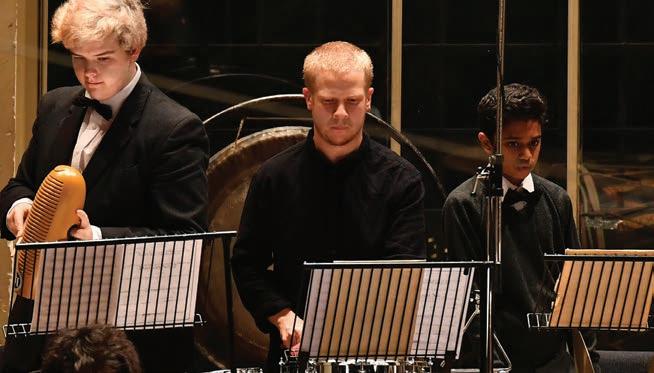
Alan Andrews joined the Music Staff as a clarinet teacher in 1996 and has been part of the furniture ever since. Hugely respected by pupils and colleagues alike, he is frequently asked to play with the BBC Symphony Orchestra, the Royal Opera House, and other such ensembles. His other passion is instrument building, and he leaves Westminster partly to devote more time to completing the build of his Super-Sub-Contra-Bass Clarinet. This will be the only instrument of its kind in the world, and could well appear in future film scores by musicians such as Hans Zimmer, Dario Marianelli and Howard Shore.
Jack McNeill (pictured above) was appointed Music Department Technician in January 2017. However, his relationship with Westminster started when he joined the Dryden’s Fifth Form in 2007, having previously been to the Under School. Whilst at school, Jack established himself as one of our most accomplished musicians. As a peer supporter in his Remove year, not only was he the senior timpanist and percussionist in the Symphony Orchestra, but he also performed Rodrigo’s Fantasia para un gentilhombre as a guitar concerto with the orchestra at St John’s, Smith Square. Jack read Music at York University where he was awarded a First, and is now completing his PhD there in Electronic Music Composition. In September, he will take up a position on the Teaching and Lecturing Staff at the University.
Amy Snowden joined the Music Department as the Music Assistant in September 2017 having graduated from Bristol University where she read Music as a woodwind specialist. Amy very quickly settled into MMC life, becoming a key member of the Music Admin team, and was promoted to the position of Music Secretary later on in the same academic year. Amy is a very gifted concert programme designer, and is responsible for many of the concert programmes the Department has produced over the last two years including the recent Messiah Concert programme and the programme for the Jacob Collier Adrian Boult Concert. Artist Management was always an area of interest, and we were therefore delighted when, in April 2019, Amy was appointed to the arts admin team at Intermusica, as an administrator for their Imagine Team. At Intermusica, Amy manages international artists such as The Kings’ Singers.
We also say goodbye to Joe Pettitt , Susan Collier and Andy Tweed , who have taught jazz bass/bass guitar, violin and saxophone respectively. Joe and Andy are hugely respected in the profession as performers and have made a significant impact on our teaching in the Jazz Department. In a short space of time, Suzie has taught with similar distinction and has also founded an excellent chamber orchestra which she has directed with great flair and imagination. Suzie leaves to become the Head of Strings at Haileybury whilst Joe has been appointed Head of Jazz at Trinity School, Croydon.
 by James Kazi
by James Kazi
The original performance of Handel’s Messiah was on 13 April 1742 in Dublin’s Musick Hall on Fishamble Street. It was intended as a charity concert and was performed with the combined choirs of both St Patrick’s and Christ Church cathedrals, numbering just 16 lay clerks and 16 boy choristers; most of the men took on solo parts, and they were joined by two female soloists. The size of the orchestra at this first performance in 1742 is not clear, but would have been quite small so as to match the limited voices – and so is thought to have numbered a handful of strings, brass, percussion and continuo forces. When the oratorio premiered in London, it was on 23 March 1743 at Covent Garden and was not immediately popular. It was only after Handel’s death that its popularity took off, with a very large-scale performance held at Westminster Abbey in 1784, which was part of the festival of commemoration for Handel’s life and works that was under the patronage of King George III. On that occasion, the orchestra was 250 strong and further performances in 1787 were billed as being constituted of an orchestra of 800.

Westminster School’s performance on Thursday, 21 March 2019 was neither the compact Dublin version nor in the tradition of the cumbersome Westminster Abbey productions of the 18th Century, but nonetheless was a considerable force, with almost 240 members of the Chorus (The Westminster Choral Society and the Choir of Westminster School) and some 30 pupils in the Orchestra. In the place where Handel himself is buried in the south transept and above which the 1762 memorial shows Handel with an open score of Messiah and the pages opened to “I know that my Redeemer liveth”, it was a privilege to witness such a sight as the assembled choir and orchestra performing one of Handel’s most famous works.
Tim Garrard did an outstanding job in marshalling such significantly large forces and matching them to the acoustics of the Abbey itself. His careful choice of tempi and clarity of conducting meant that Chorus and Orchestra were carefully harnessed. It was a very good reminder of the dramatic potency that a large Chorus can have when performing the
exultant “Glory to God in the highest” and the “Hallelujah” chorus, just as in the aggressive “Let us break their bonds asunder” as the world seeks to reject the Gospel. Equally, there were some powerfully emotional moments at the beginning of Part II in “Behold the Lamb of God” as Christ’s passion is unfolded.
After the instrumental Sinfonia, the tenor Andrew Staples opened with a plaintive “Comfort ye my people” and sang with sincerity and insight throughout. He was very well complemented by Jonathan Brown’s bass solos that provided a robust authority in the likes of “Thus saith the Lord”, as much as Brown was able to draw the audience in with his narrative story-telling in “The trumpet shall sound”, which was impressively accompanied with exquisite control by Clara Falkowska (DD) on trumpet. Catherine Hopper’s expansive alto was delightfully ruminative and she duetted beautifully with the soprano Julia Doyle in “He shall feed His flock”, showing a splendid interplay between these two vocalists. Doyle’s highly expressive and engaging performance
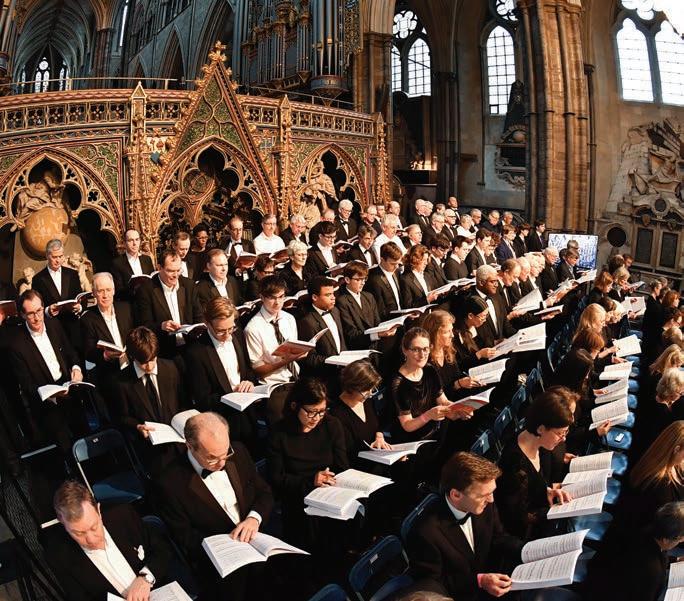
was very powerful indeed, especially in “I know that my redeemer liveth”. The fifth vocal soloist was Agatha Pethers (GG) whose timbre and clarity of diction were her hallmarks, and it was right and proper that she should have been standing shoulder to shoulder with such a raft of professionals.
The soloists with their arias and recitatives allowed for a change of measure, as much as permitting the Orchestra to demonstrate its highly refined abilities as a chamber orchestra. Lulu Hao (AAH) was impressive as a leader of such a dynamic and responsive group of musicians and Johan Orly (PP) did an outstanding job leading a continuo section that including a number of the orchestra’s professional musicians. There was such a strong sense of musicianship amongst the players and a real sensitivity to the needs of the singers.
The result was a historic event for those fortunate to experience it, as much as it was an outstanding evening of music in celebration of the life of Christ.

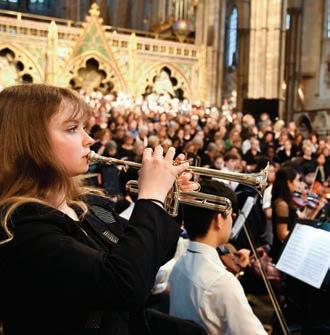

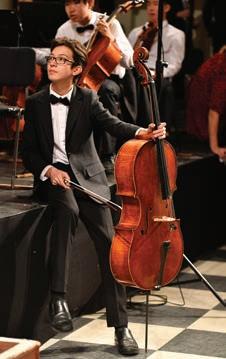

 by Jay Chitnavis (PP)
by Jay Chitnavis (PP)
With an audience size rivalling the number of Schubert lieder, and more performers than Haydn symphonies playing works from three vastly contrasting musical styles from three different continents, the St John’s Smith Square orchestral concert on 12th November was a true highlight of the academic year.
This year’s concert programme was thoroughly ambitious: it kicked off with the LSO (the Lower School Orchestra, of course, not the London Symphony Orchestra) playing Danzón No. 2 by Arturo Márquez, conducted by David Campbell. Its syncopated Habanera rhythms, sultry Latin melodies and rich textures were approached with verve and adroitness by the performers culminating in a grand tutti climax. The next item was Weber’s Clarinet Concerto No. 2 in E flat Major played by James Garagnon (GG) and conducted by Guy Hopkins. From virtuosic arpeggiated and scalic sextuplet passages in the final movement to rich operatic melodies in the second movement, this piece demonstrated the full extremes of the Romantic clarinet repertoire and showed James’ masterful command of the instrument, along with the orchestra’s stylistic and technical control. The finale was Shostakovich’s famous Fifth Symphony, performed by the Symphony Orchestra under the baton of Toby Purser. This Symphony has divided opinion since its first performance in 1937, having both been called ‘a punishment...arousing painful feelings’ and said to ‘save the day.’ For many, it has been held as an icon of Shostakovich’s heroic struggle against Stalin’s repressive regime that provided hope for the Soviet people. The orchestra played this immensely difficult piece with astounding technical versatility and a sense of poignancy, reflected in its rapturous applause.
This year, the 32 nd Sir Adrian Boult Memorial Concert, saw the stage up School covered in exotic textiles. Jacob Collier had arrived, accompanied by an array of instruments that he would later perform simultaneously, and Suzie Collier, his mother and violin teacher at Westminster.
Many of us had been waiting with eagerness to hear the 24-year-old multiinstrumentalist live, since we had only seen him featured in a selection of popular YouTube videos, including his Grammy Award winning arrangement of the Flintstones. However, his performances have not been limited to YouTube: he played at the Montreux Jazz Festival in 2015 and the BBC Proms in 2018.
The concert was in two parts. One was a question and answer session, where a few audience members had the chance to ask Jacob anything and everything they wanted. He answered the questions honestly and thought-provokingly. He told us about the musical experiences of his early life, during which he experimented with a sampler/drum machine that his mother had given to him as a present and sang Bach chorales with the rest of his family. He also described how Stevie Wonder was his biggest musical influence due to his rare ability to create music that evoked the surprisingly complex mood of happiness. Of course, no Q&A with Jacob is complete without a question regarding the MIT Logarhythm-Collier built harmoniser, which Jacob hesitantly described to a rather confused audience.
The other part of the concert was a sensational demonstration of Jacob’s skill and musicality as he performed everything from reharmonized Beatles’ covers to some of his own mesmerising compositions. He also got us singing, clicking and clapping along with his addictive groove, whist he improvised over intricate extended chord sequences on his unique synth. During his own song ‘Hideaway’, he played the guitar and piano together, not ostentatiously but rather with the intention of enhancing the intended atmosphere of the song. The transition to a more upbeat and funky section introduced Jacob’s vocalised solo, where he displayed his soulful vocals and piano-like vocal range. His reharmonised rendition of Eleanor Rigby was also very interesting, as it made use of his falsetto vocals, the extended piano technique of palm muting, communicating a more percussive but muffled tone and audible breaths directed through his harmoniser to create a drum-like effect. Other songs included covers of ‘Blackbird’ (by the Beatles) and ‘You and I’, (by Stevie Wonder) as well as a collaboration with Mrs Collier, who played the violin. After the concert, a few of us had the chance to talk with Jacob about, of course, none other than the intricacies of his use of music theory, something that he was more than willing to discuss with us. This year’s Boult certainly was one of the most refreshing, unique and inspiring concerts Westminster has ever seen.
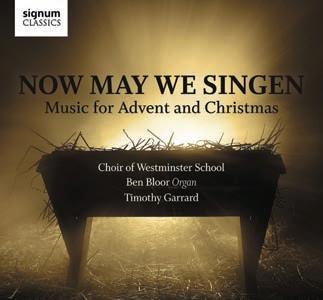
by Darcy Dixon (HH)
There is nothing better than singing Christmas tunes, regardless of the time of year, and that is exactly what the Choir of Westminster School did in January 2018.
It was an altogether lovely experience: we ate and slept in Balliol College, occasionally playing pool in their JCR, and spent most of our time singing in Keble College. The acoustics in Keble’s Chapel beautifully blended all of our voices, accompanied by the amazing Ben Bloor, and created what is undoubtedly a masterpiece. Of course, the album would not have been as great as it is without the watchful eye of Tim Garrard and Adrian Peacock, urging us to stay with it after 37 takes, or making sure we sing with the correct French enunciation. We sang lyrics repeatedly to make sure everything sounded perfect, and they are ingrained in our minds to this very day. It was an absolutely unforgettable experience. There are 19 songs on the album, but Matthew Martin’s Novo Profusi Gaudio, Richard Wilberforce’s My Musick Shine, William Mathias’ Sir Christemas and Cecilia McDowell’s Now May We Singen are personal favourites. It is so fulfilling to listen to works sung at such a high calibre. Make sure to listen to the album on Spotify and iTunes if you have not already. Remember: Christmas tunes can be played all year round!

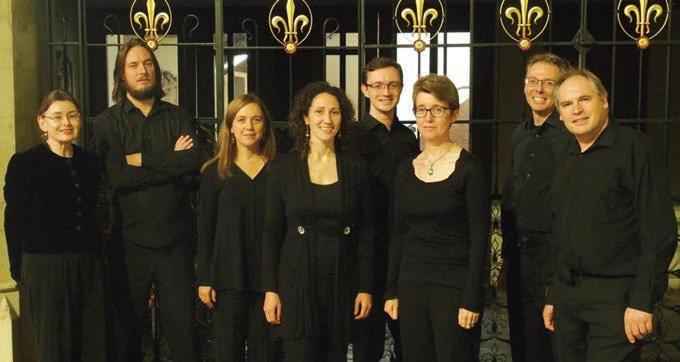 by Gilly French
by Gilly French
Floreat is an eight-part vocal consort, which sings mostly but not exclusively Renaissance music. Our first concert was themed around composers associated with the court of Queen Elizabth, and the second a more sombre Lententhemed one, which included Byrd’s masterpiece Infelix ego and Charpentier’s almost operatic Le reniement de St Pierre. In May we sang Choral Evensong at what is described as England’s loveliest baroque church, St Mary le Strand, and tried not to mind that we equalled the congregation in numbers (the way of City churches, I suspect, but that’s not why we do it).
The Common Room-based choir Cantandum has had a thriving year, with numbers bigger than ever. Our first concert, at St Margaret’s in December, was entitled I was glad with music from the Renaissance and 20 th century woven around Victoria’s monumental 12-part Missa Laetatus sum. Accompanied by strings, brass and organ, and ending with Monteverdi’s magnificent Magnificat I, it also raised a substantial amount for the School’s bursaries fund. In March this year we made our Guards’ Chapel début, with a gloriously moving chamber version of Brahms’ Requiem. This monumental piece is usually performed with very large choral societies and full orchestra; however the composer himself produced a version for piano duet, and our 26 singers brought to it freshness and lightness of detail and an incredible personal passion.
In May we were invited back to Canterbury Cathedral to sing Evensong, where we were joined by members of the Canterbury Singers and gave the premiere performance of the Responses by Jonathan Watts (PP). And our summer concert was a kind of pseudo Vespers for Pentecost and was a great opportunity to sing a range of material by a number of composers, including Mozart, Vivaldi and Jonathan Harvey.
It was the gentle voice of Mei Mei, the coat check girl, who like most young girls in this heartless city wanted only a place of refuge. In this city there was profit in vice. It was full criminals, cheats, petty thieves, warlords, drug dealers and gamblers. Broken men from a broken war that had ended seven years ago and counting. I fit right in. I understood all the vices of these people, every single one. It was my job to notice things, and I was good at it too. Mei Mei received my nightly ritual nod, and following ritual I paused at the mirror to adjust my bowtie. I glanced up to check if it was still there. Every single time I expected something different from the reality. But there it still was, the reminder of the trenches. I can almost feel now the embrace of the warm, sweet, sickly stench of gas that had left its mark upon me.
After the habitual adjustment, I walked over to my own table, number 39, and sat down. My Maitre D’ and friend Jean Luc mixed the daily concoction of rye whiskey, grenadine, lemon juice and orange juice. I picked up the drink from my old man. He had worked in the Boston wards as a political fixer for Martin Lomansey, the city’s Tsar. The drink, named Ward 8, was to celebrate the ward that brought in Lomansey’s victory. Lomansey left a huge impact on my old man. My old man would say to me: -Don’t write when you can talk, don’t talk when you can nod your head.
Good advice from a hardheaded Irishman from Cork. In this city those words were solid gold.

This is clearly a posed shot, planned and executed with aplomb, and taking full advantage of the Westminster location to produce an engaging image of someone passing through both time and experience. The hint of incarceration may be deliberate or not, but something of both the separate experience of adolescence and of learning at Westminster may be hinted at here. There’s a palpable contrast of shape, subdued colour and stillness, just leavened by the water drops of the fountain. A mysterious and symbolic photograph.
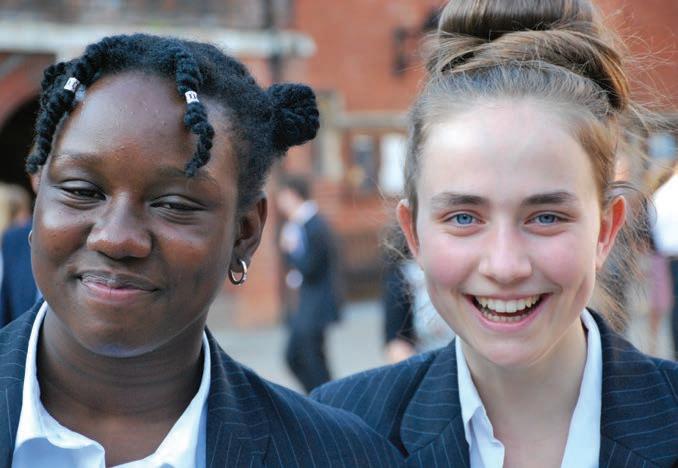

This is what school photography should be about – the state of mind of the pupil in the place. Schools are much more about relationships than formal learning, and this image shows two people interacting with each other and the camera, and making the viewer as cheerful as the subject. We forget such moments are momentary in the headlong rush to grow up, and sometimes this brief moment of friendship is lost before it’s appreciated. This photo captures something everyday, but really special.
This was an amusing portrait of an anonymous peer, clearly composed and lit, with a strong sense of purpose and an arresting visual impact. It conveys a real sense of the situation and relationship of pupils in an art class.
Three years ago, an academic enrichment programme began here at Westminster, based at the Under School and aimed at bright Year 5 and Year 6 Primary School pupils with bags of academic potential. Now called Platform, it has gone from strength to strength and it has inspired the creation of an equivalent programme for Year 10 pupils from a range of London maintained secondary schools.
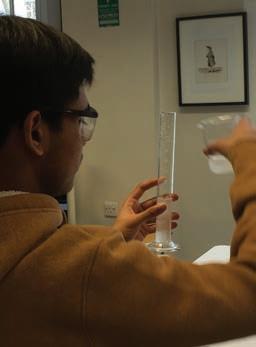
This is Platform+. For this, its first year, we decided to concentrate on the Sciences (the main staff involved in the genesis happen to be all based up Hooke), with all the sessions taking place on roughly one Saturday in three from 9.30 to 13.00. The 18 pupils come from ten different schools, each strongly recommended by their teachers. They have come onto the programme expecting to be challenged as well as stimulated, and one of our aims is to prepare the pupils for junior Olympiad competitions (or equivalent), introducing them to new concepts and ways of thinking rather than tackling simply harder versions of the GCSE problems they have already encountered. Whilst here at Westminster having such lessons on a Saturday morning is de rigeur, for most London schoolchildren, the thought of rising early, grabbing a school bag and heading off to the classroom is an unusual one to say the least, but some of these pupils are journeying in from deepest Kent for the pleasure of it. So far, the feedback and response have been very positive. A third of the way through the course, they have already studied the bizarre microscopic world of local pond water, fired rubber bands thoughtfully at the ceiling, engaged in playful robot tussles and designed cunning timing devices that produce a chemical colour change after a specified time interval (the useful span of 37 seconds). All being well, the programme will expand in 2020 to include humanities subjects in a parallel liberal arts course based in Weston’s. In the longer term, it will be good to consider a mixture of disciplines. We wouldn’t want to upset C P Snow, after all.



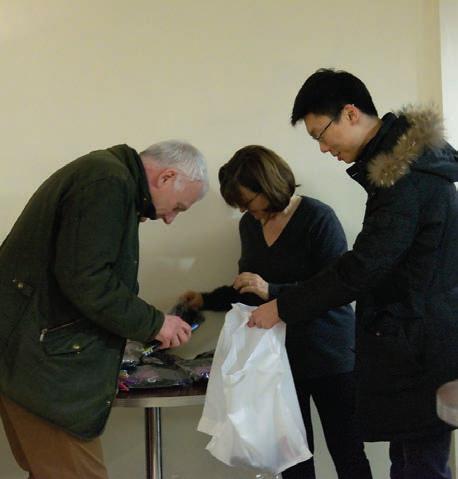

Now in its fifth year, the annual pupil-led Homeless Drive has truly reached unsurpassed heights.
On a chilly evening, an astonishing 170 volunteers –an almost threefold increase in turnout from last year – filled the Sports Centre. They had volunteered to spend their weekend packing and handing out over 300 resource bags –containing food, drink, clothes and sanitary products – to the homeless in 12 different areas across London.
A highlight of these initiatives, as well as making a meaningful difference to the lives of so many, is the conversations we have with those we meet. This year was no exception, and we met many people who were astoundingly resilient, intelligent
and optimistic, especially given their circumstances. From Lucas, who dreamed of setting up his own gambling prevention hotline so that others didn’t have to relive his experiences, to Christian, a chef forced out of his job because of a broken leg, and whose historical knowledge and intelligence would rival many at this school, we found so much to admire and learn from the homeless.
I am hugely indebted to all the volunteers, comprising over a third of the Upper School, for their time, selflessness and feedback. Special thanks to Nick Page, Jeremy Kemball, Rose Weavers, Martin Walsh, Luke O’Donoghue, Jordan Halliday, Khoyum Akhlak and all the Sports Centre staff, without whom this event would not have been possible, as well as to all the pupils who helped with setting up, purchasing the goods, advertising, collecting sanitary products and designing routes, posters and guides. The wonderful photographs you see of the evening are courtesy of Nikita Strukov.


With rough sleeping – often in freezing temperatures – on the rise, everyone who supported this Homeless Drive, through attending, advertising or donating, can and should take pride in making the world that much brighter, happier and more hopeful for those less fortunate than us. I am confident that, under the direction of Henry Bishop from next year, these Drives will continue to flourish at Westminster well into the future.

We asked the volunteers “What is great about your volunteering placement?” and this is what they said!
“The children – bonding with them over several weeks and seeing them improve in the subject is very rewarding.”
“Not time pressured.”
“The children are lovely.”
“Sports and activities.”
“The people who I do it with.”
“Keeping the children entertained, learning to manage groups of young people.”
“Being able to play football with the kids.”
“It’s refreshing to start the week engaging with the extremely interesting children. They are exceptionally bubbly!”
“The children are very nice and friendly and it is very easy to work with them – in St Matthew’s the people I work with try hard to listen and the children in the cricket club are fun and have a desire to learn and improve.”
“It is rewarding to be able to make a difference to kids’ education.”
“The eager pupils.”
“Children at computing are super motivated.”
“It’s really quite fun and I enjoy playing with and talking to all the children.”
“It gives a strong sense of fulfilment when the child learns something new.”
“It is very rewarding and fun to work with the children who are all engaged.”
“It is a lot of fun teaching the children to street dance.”
“Different tasks every week & we get to work with different year groups & lots of interaction with the pupils.”
“Pleasant environment.”
“It’s generally an enjoyable experience, especially when we go outside.”
“2 mins from Westminster School; enjoyable + getting to do different things every week and getting to know the pupils.”
“The pupils, almost entirely, are enthusiastic and I feel like I can really contribute because in both cases I have found a role where I am leading the project virtually independently with my peers.”
“Interacting with the children and getting to know them.”
“It is very fulfilling and I find it enjoyable.”
“It is very close, and the people are very nice there.”
“I enjoy being able to get to know and help the kids.”
“It gives me exposure to people from different backgrounds.”
“Fulfilling.”
“It is very close to the school.”
“You feel like you are making a difference to kids, which is quite satisfying. It is also quite fun to be able to have a teacher position.”
“It is very close to school which is convenient as it is not a long commute to get to class on time.”
“The teachers are very welcoming and I feel like my communication skills are improving.”
“Getting to know the children.”
“I like interacting with the children and teachers and knowing I am making an impact; assisting them with their learning and seeing their progression is so rewarding.”
“The enthusiasm the primary school children show for singing! The volunteer teaching team as a whole is very welcoming.”
“The teachers are easy to get on with, and they are very helpful.”

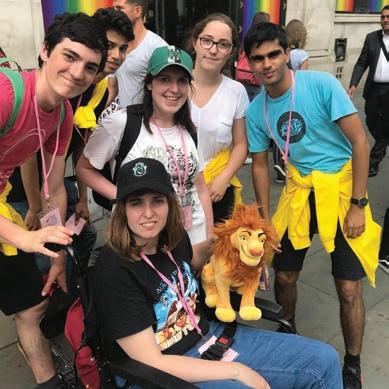
The 43rd Westminster Phab was, without a doubt, the best Phab yet. We rocked bright yellow hoodies and danced to 60s tunes –all part of our Phlower Power theme!
Here is an exclusive peek at a Phab diary:
Monday No guests yet. The day involves carrying mattresses, Love Island, and anxious anticipation.
Tuesday
The first guest arrives two hours early; no-one knows what to do. As the rest of the guests arrive, we are treated to a dance show. We quickly realise the phirst rule of Phab: play music at all times. By the time we head off to bed, each guest has been asked if they have had a long journey approximately ten times.
Wednesday
Hosts realise what a precious resource sleep can be. Luckily, our guests are so enthusiastic that we soon overcome nerves and tiredness, and throw ourselves into morning workshops. The afternoon heralds outings,

including one of the most anticipated parts of Phab: a shopping trip. It’s lovely to show the guests (many of whom live outside London) around the city, where they can buy Jack Daniels, get arrested (sort of), and ride Cinderella carriages. In the evening we break the ice singing along to a medley of 60s hits (and a few modern hits, such as Shape of You, sneak their way in).
Thursday
We all drift sleepily into morning workshops. By now, everyone is fully expressing themselves creatively, whether it is by painting themselves purple (guest), eating flowers (host), or quacking at the hosts (guest). Toy Story 4 and Yesterday amuse guests and hosts alike in the evening, and getting everyone safely down Victoria Street at 11pm provides a post-cinema adrenaline rush.
Phriday
We prepare for the big aphternoon trip to Kew Gardens – while some want to see phlowers, ice cream seems by far the greatest attraction. The tube is scorching hot and keeping everyone hydrated is a battle. It’s eye-opening to try to navigate stations and carriages with wheelchair users but the real revelation is that some Westminsters can’t tell Eastbound from Westbound! At Kew, some made a beeline for the water lilies
and roses. Others headed off for naps, handstands, Hula Hoop eating challenges, water bottle flips, eclectic sculptures and overpriced snacks.
Saturday
We are given the aphternoon to chillax ahead of the dinner and disco; some guests head for threehour naps with grateful hosts in tow, while others prefer board games and films. Later, the staff reveal makeup and glitter skills beyond our wildest dreams, and almost all of us get our hair and nails done. People pull out the most amazing 60s-themed outfits, ranging from chest glitter to flowing wigs and tie-dye everything. Austin Powers even made an appearance! We dance the night away, although one guest preferred a photo of Holborn tube station to any host as a dance partner.
Sunday
The last day of Phab is emotional for all of us. We are all looking forward to going home and sleeping (for a week) in our own beds, but it’s impossible not to miss the relaxed and cheerful Phab atmosphere, the strong phriendships the week has formed, and the fun of it all.


1 ENGLAND: Alston, Cornwall, Dartmoor, Hadrian’s Wall, Isle of Wight, Lake District, North Downs, North York Moors, North Yorkshire, South Downs, Southampton, Suffolk
2 WALES: Black Mountains, Brecon Beacons, Gower, Manorfan, Snowdonia, St David’s
3 SCOTLAND: Loch Ness
4 IRELAND: West of Ireland 5 FRANCE: Paris


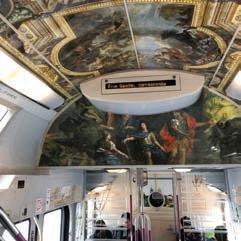



The Prag Award was established in 2008 in honour of Adolf Prag, who was Mathematics master and Librarian at Westminster from 1946 to 1966, together with his wife Frede who was also much involved with the School. The Award aims to reflect the way Adolf encouraged pupils to follow up things that had sparked their interest.
Last year, it was given to Alex Fleming-Brown (RR), to help fund his research into national memorials within Europe.
Peter (WW 1956-62), John (QSS 1954-1959) and Thomas (BB 1960-1965) Prag

This was the second year of running a joint trip to the Lake District with our partner school, Harris Westminster Sixth Form, and, as last year, it proved a resounding success.

The numbers may have been skewed towards the HWSF side, but nevertheless the small Westminster contingent was made very welcome.
The first day dawned bright and clear, so we decided to take on one of the larger hills, Skiddaw. At the summit the group were elated by their successful conquering of the fourth highest peak in England, but it was so freezing cold in the biting wind we didn’t stick around any longer than necessary to get a group photo and head for shelter! Both the ascent and descent were accompanied by bright sunshine and blue skies aplenty, so it was a cracking day all round, if a little on the chilly side, with the mercury barely notching above zero!
The second day promised a somewhat more-expected mix of showers and cloud, so we took on a lower-level, but still demanding, walk over Low Rigg to Tewet Tarn, visiting Castlerigg Stone circle, and then into Keswick for a well-earned cup of tea as the rain swept in. Before travelling home, we had time on Sunday morning to visit Surprise View and Lodore Falls, before enjoying the picturesque views from the Borrowdale valley.
Over the course of the trip there was lots of fun: board games and card games in the Youth Hostel, chats around the fireplace, code cracking, and reading of books. It was incredibly refreshing to get out of London and fill our lungs with the clear crisp air of the Cumbrian countryside in winter, and those who came had their batteries well and truly recharged at the end of a long term.

Rome is renowned for being the centre of the classical world and the seat of the papacy. It is also universally known as being the destination of the Remove Art History trip led by Ms Goodman and assisted by Mr Lutton. The trip consisted of various excursions to some of the most important historical and religious sights that would inform us in our studies of Baroque Rome. Within the city we were able to venture to gain first-hand experiences of some of the fascinating and hugely influential sculptures, buildings and paintings that shaped the period. I was captivated by Ms Goodman’s enlightening commentaries on various Caravaggio works, in particular within Santa Maria del Popolo, an entrancing church that contains the Cerasi chapel. This experience was made all the more memorable by the continuous actions of Mr Lutton to repeatedly make donations to the church in order to keep the paintings illuminated. We were also able to gaze into the secret life of Ms Goodman as we skipped all queues into St Peter’s Basilica, thanks to the assistance of a mysterious Vatican lawyer who Ms Goodman claimed to have met at a wedding. My personal highlight was visiting Piazza San Pietro, where Mr Lutton unveiled his fresh white Nike shoes that he promptly spilled coffee on. The trip was one of my Westminster highlights and we were all very grateful to Mr Lutton and Ms Goodman for sacrificing their time. Rome is a wonderful city and it was a brilliant opportunity to be able to experience it from an art historical perspective.

Ah, Coburg. While it may be the historic birthplace of Prince Albert, to us, it symbolises chaos and despair – precisely, being booted off a train, nowhere near our hostel, hopes, or dreams, with tannoyed whisperings of a suspicious item on the track. Dr Parry deciphered that ominous threat: “replacement bus service”. However, like a phoenix rising from the ashes of an hour-long delay, the train puffed on, and soon we were taking in Marienplatz and Fraulein Barton was plumping us up with kaiserschmarrn. The trip was back on track.

Seven of us studying Nazi Germany, plus Rosa Calcraft who came along “for the bant”, were led by Fraulein Barton and Dr Parry on a historical and cultural jamboree of two great German cities over half term. In Berlin, we saw a city that maturely handles the responsibility of remembrance: the Holocaust memorials and the museums we visited associated with such atrocities of living memory were poignant. The minimalism of the memorials to the murdered Jews imposes no agenda other than freedom for contemplation. It was, therefore, an anomaly that as we approached Checkpoint Charlie, we were greeted by two naff yet jovial actors dressed up as guards. Like a scene from some terrifying pseudo-Soviet Disneyland, the ‘guards’ welcomed the impassioned embrace of Rosa Calcraft and David Edwardes-Ker, while willing to pose for photographs with tourists and a titanic McDonalds dominating the background.
Museums and historical sites made up a lot of our time in Berlin and Munich – the Topography of Terror, the NS Documentation Centre, Dachau concentration camp – the subject matter so heavy and recent that it commands reflection. The museums were inventive, invigorating, and informative. The two cities’ cultural heritage, however, mean that an appreciation of Germany’s positive progression from those dark times is not dominated by grief tourism. Germany is astonishingly vibrant, and we certainly experienced that, ingesting cuisine and culture in a multifaceted way. We did culture well: we went to The Marriage of Figaro at the Berlin State Opera (enjoyed by all, promise), KaDeWe, and the Munich Residenz. We also did culture badly, or for Jack Gray, “fantastically”: we got all-you-can-eat tapas for lunch on the first day, and cleaned out Andy’s Sports Diner the next.
The expertise of Fraulein Barton and Dr Parry provided us with the best tour guides and travelling mentors imaginable, and all eight of us were incredibly grateful for their kindness and humour throughout the trip, only 70% of which was spent waiting for Tommy to make a cup of tea.

We arrived in Havana and were immediately hit with muggy and oppressive air, long and slow-moving passport control queues and broken toilets without flushing water. Multiple boys refused even to enter the threshold of the bathrooms. On the other side of the barrier, a boisterous crowd were clambering for their lost bags. It slowly hit us, against this backdrop, that we had made it to Cuba.
Over ten days, we enjoyed a whistlestop tour through the unknown. We cycled around Havana in 37-degree weather and tried salsa dancing lessons, where some proved more proficient than others, although admittedly none of us became experts by the end. We visited a tobacco farm in Viñales, where we raced horses through the countryside off the beaten track and swam in a natural lake. In Trinidad, we rode horses again to a
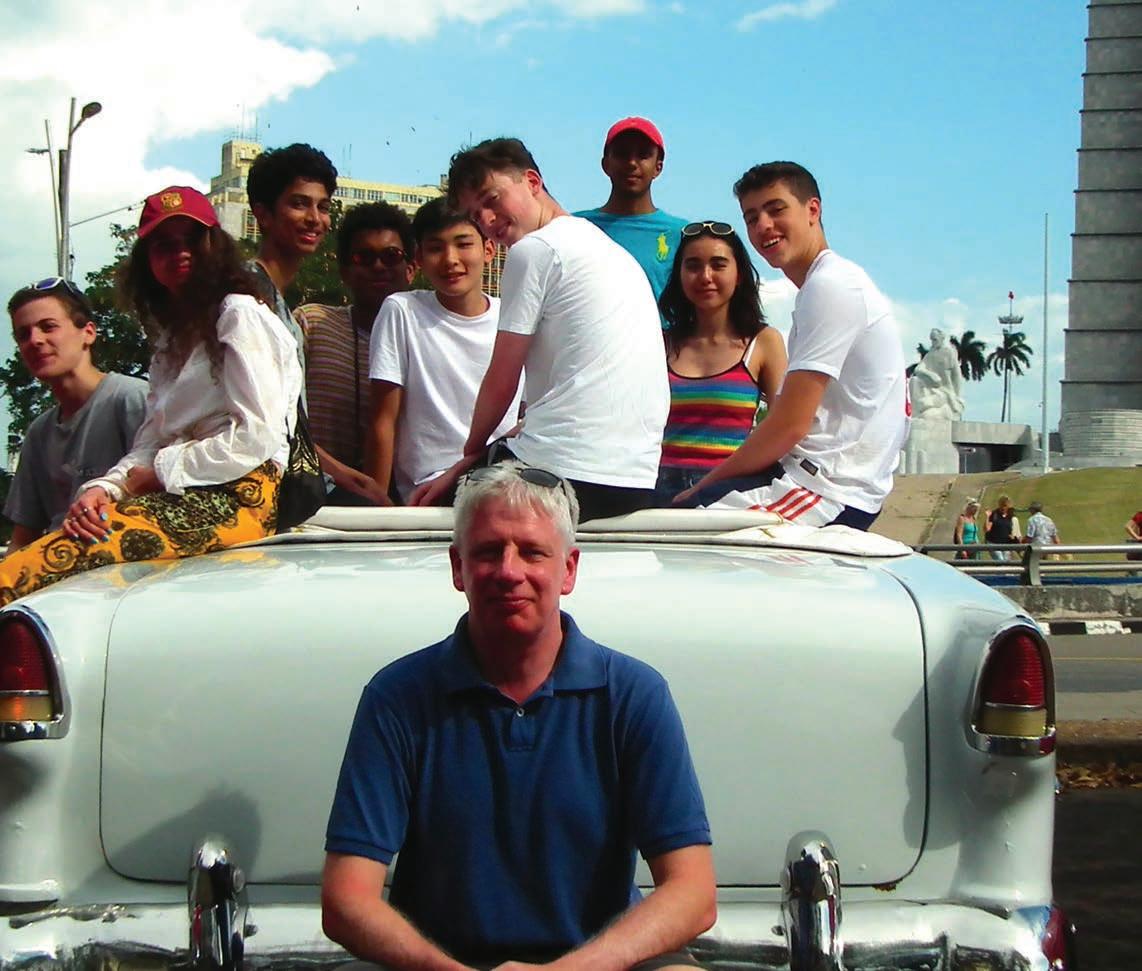
waterfall and drove to the beach in the classic vintage cars: a staple of Cuba. Without Ms Franco’s trusty sunscreen, there would have been many more burnt English tourists playing football on the sand.
We had the privilege of staying in casas particulares, little hostels run by Cuban families where we absorbed the food and culture of Cuba from real people: an unbeatable experience. Although there were initial doubts about spending ten days without wi-fi, it proved to be easier than expected and we were able really to relish the whole adventure. We would like to thank Ms Franco and Dr Witney for graciously taking time out of their holidays to accompany us. The trip was phenomenal, and I would urge everyone to take advantage of this opportunity.



I’m not going to lie to you, the main reason I signed up to the Lyke Wake Walk was the prospect of getting the tie. 24 hours of trekking through bog, slicing rain, autumnal-night temperatures and up rocky hills is probably a high price to pay for a tie. Nevertheless, we did it. Twice over. The most surprising difference between the practice expedition and the Walk was the difference in ambience. Although it may seem obvious, the latter was used as a 40-mile funeral procession and has only recently become a challenge for countryside junkies like me. Walking with this notion in mind created a pensive and rather appreciative atmosphere, and my ankle-sock-induced blisters were humbled in comparison to imagining the pains of hearse-carriers before me. When we weren’t thinking about corpses and the meaning of life, our group decided to fill a spot in the grime market: In My Feelings: Yorkshire Sheep version (coming to fields near you soon) – starring the notorious Kush Patel, Oscar Young and Ethan Man, expertly directed by Lucas Glanville and with elegant back-up dancing by Yorkshire Sheep Ltd. We also managed to prevent the biggest cause of conflict in the countryside (apparently): leaving gates open. Thanks to Mr Tattersall, we all learnt night navigation – indispensable on the Yorkshire Moors as recognisable landmarks are scarce. Another vital part of the walk was the invaluable support the young librarians – Ms Stone and Ms Stringer – gave in comestibles and hot chocolate at every checkpoint. I was surprised by how the walk made me appreciate the small details of the countryside. Being forced to travel slowly made us all take in the minute and constant changes in the landscape and contours that would have been missed with a faster mode of transport. That weekend we all witnessed a dramatic shift in perspective: we became acutely aware of changes to the bracken colour or the size of the stones around us. In the engulfing and quick-paced Westminster week, taking the weekend out to go back to nature’s speed of life was therapeutic and powerful. If walking constantly from 7pm till 6pm the following day is your idea of hell, don’t do it. But, if like me you find the idea oddly tantalising, I urge you to sign up. And not just for the tie.




As we were driving from the airport to the hotel in Marrakesh, there was a growing sense of excitement in the air. For all of us this was our first time in Morocco, and from the minibus we could tell Marrakesh was a bustling and busy city. It was at the hotel that we met our guide, Abdullah. After dropping off our bags, we headed to the restaurant, peering down backstreets and walking past street sellers yelling at us to buy their produce. A traditional Moroccan dinner in a local restaurant curbed our hunger and we were now more impatient than ever to travel on to our next destination.
The next morning, after being woken up by the calls to prayer and a quick breakfast, we set off in the minibus out of Marrakesh and into the Atlas Mountains. After four hours of driving we were dropped off for our walk into the mountains, which led us to a traditional isolated Berber village, seemingly cut off from the rapid changes in modern society. We were shown around a local villager’s house and were given an insight into his way of life. I was amazed at how traditional his life was and how this way of life seemed unchanged for hundreds of years, unaffected by the rapidly changing world around him. His generosity and kind nature showed through when we were invited to stay to drink Moroccan tea. Through this, we discovered that he was an avid football fan and supported Chelsea, much to our surprise and amusement.
Following the roads through the Atlas Mountains, we saw that every few



kilometres a traditional village would rise up out of the hills, often in lush green valleys – a stark contrast to the barren, desert-like mountains. We were headed for Ouarzazate, the gateway into the Sahara Desert. Before we arrived, we stopped off at CLA Studios, an impressive site with a huge array of film sets where well-known movies and TV shows – such as Game of Thrones, Top Gear, The Mummy and Lawrence of Arabia – were all filmed.
The highlight of the trip has to be our two-night trek into the desert. I felt like we had stepped back in time as we hiked through the dunes with camels carrying our equipment. At night, we sat around a camp fire looking at the stars, which shone brighter than anything I had seen before. Leaving the Sahara was extremely sad but I was excited to visit Aït Benhaddou, a UNESCO world heritage site, which is famous for its Kasbahs and for being a previous trading post between the
Sahara and Marrakesh. Climbing up to the top of the hill gave magnificent views over the ancient town and the surrounding mountains and valleys. This was a welcome stop on our way back to Marrakesh. Once we had arrived back, we had time to explore the souks. The souks of Marrakesh are the largest in Morocco, and world-renowned as some of the most exotic to shop in. The busy and crowded nature of them made them an exciting place to explore, although very easy to get lost in! This was an exciting way to end our wonderful trip, finishing with rooftop drinks as we watched the sun set over the rooftops of Marrakesh, and heard the bustling markets down below.
Our time in Morocco was an amazing experience and we want to thank Ms Hughes for organising and running such an incredible trip, as well as our tour guides, Dave and Abdullah. It is a memory we will never forget.



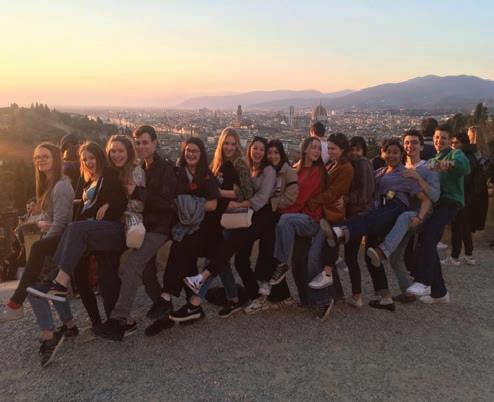 by Cleopatra Coleman (WW)
by Cleopatra Coleman (WW)
The shower that has swept over London dashes my window with hail before subsiding. My mind dances back to the Easter holidays, when my History of Art group revelled in sunny weather and the legacy of the Florentine Rinascimento Certain atmospheres and images endure with exquisite clarity...
Even the ritual of clutching at pockets for tickets and removing belt and shoes for the metal detector feels charged. Landing in Pisa, everyone beams. Gracie breaks into the 1962 bossa-nova hit – Dimmi quando tu verrai (dimmi quando, quando, quando!)… e baciando mi dirai, non ci lasceremo mai!
The next day. A glimpse of David through the columns. He’s crowned by a glass dome, past a corridor of Michelangelo’s unfinished sculptural forms, figures in the process of breaking free from crude rock. And all of a sudden, this purified, illuminated, and very naked David! Tourists revolve around this colossus (how big must Goliath have been?) and observe his changing expression, the sling that flirtatiously winds down his back.
Though a mere ten minutes from the city’s heart, the Dominican monastery San Marco lies detached and still. Here Fra Angelico’s numerous frescoes exist both individually and in sequence, some with a conceptual flavour that seems to anticipate the Surrealist movement 500 years later.
For instance, The Mocking of Christ : bound to his crucifix, Christ is confronted by disembodied limbs and the floating head of a scorner. The telescoped dimensions of the friars’ cells almost urge one to drop to one’s knees; whispers bounce from wall to wall and recreate the hushed murmur of prayer. On our way out, we pass another school group, Italian, and exchange interested, vaguely competitive glances.
In Santo Spirito of the Oltrarno, conceived by Brunelleschi, there is plentiful space above our heads. I feel very small indeed. Among the vastness, the rhythm and sparsity of design are soothingly repetitive. Lily marvels at how, walking outdoors, rarely are we so aware of the infinite above us; not until we move through a lofty but defined space do we become aware. We consider ourselves in relation to other matter, people, demarcated things. In the breeziness of the courtyard she says, with a prelapsarian air, “I feel most holy around nature”.

A final highlight is an evening hike to San Miniato al Monte. Momentarily we cannot locate all of the group –some of us are lost in rapture at the back of the church with mingled Gregorian chants and the scent of sage. The setting sun calls us back outside, then our tummies to spaghetti al ragù
Our spree in Florence brings to life the paintings, families – a victory dance is necessary each time we spot the Medici’s emblematic palle which adorn the city –and architecture pored over in class. We delight in sharing our thoughts, rivetingly more informed and developed than a few months ago, and during the ample lunch hours, navigating the town and language independently. Florence’s splendour is indeed a historical phenomenon. Yet its history is so attended to in the city’s contemporary presence, that while one might dream of time travel, it is the beautiful climate of continuity and progression that leaves the group inspired and renewed – and with transformed standards of cuisine.
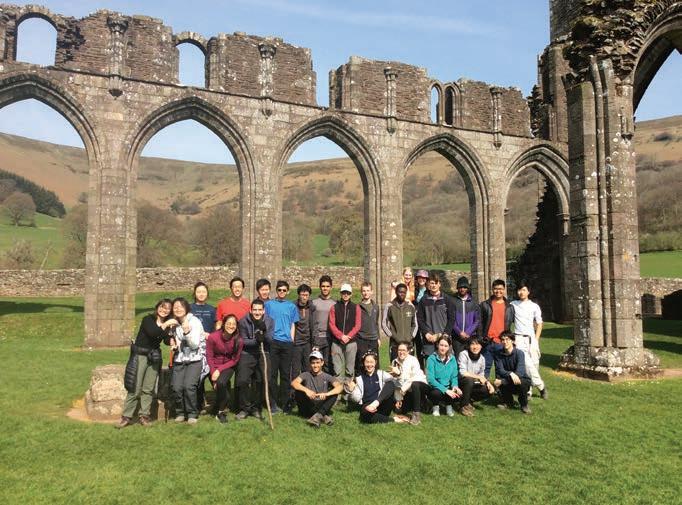
At the end of April, 24 of us piled into three minibuses and set off for the Black Mountains in Wales. We were joyfully listening to music, ignorant of the gruelling hardships to come. Upon arriving at the campsite, we were told that there was a water shortage and that the facilities no longer had running water, all down the valley. Undeterred, we pooled our rations and cooked a tasty meal before dark fell, knowing that we needed our strength for the next day’s 20km hike. The day dawned bright and early, and all of us intrepid explorers set off in our groups, laden down with all that we thought we would need for the forthcoming days. Our good mood dimmed as we gazed up at the climb ahead of us: 200m of uphill work, with the top of the hill obscured by the clouds that dogged us for the entire trip, but we valiantly put our backs into it and felt a real sense of achievement on completing the climb.
Arriving at the campsite in the early afternoon, we were met by Mr Gravell brandishing a spade, which we were disappointed to hear would constitute this campsite’s facilities. To liven spirits at the end of the third day, we thought that it would be exciting to build a campfire. We set about trying to find all of the dry wood we could and then spent the better part of an hour coaxing the small flames, trying to make the fire warm enough that we didn’t need the five layers each of us had on.
The final day was the most challenging, with us having to climb up a near-vertical slope. It took us an hour to find the path, which shouldn’t have been that difficult considering that we were on the top of a ridge, but the mist had descended and it was hard to see 10m in front of us. On reaching the top we were thrilled to run into an Old Westminster who was on his GAP year. Ipsu Razu!
The day finished with a hare-brained sprint down a hill to see which of us would arrive at the campsite first. We had enjoyed the highs and lows of our Duke of Edinburgh Gold award practice and are all set for the real expedition this summer.

 by Viva Ruggi (HH)
by Viva Ruggi (HH)
Last summer, I was lucky enough to win the grant from the Phillip Hendy Art History travel prize, which took me to Marfa in West Texas.
Here I explored the work of Minimalist artist Donald Judd. Although it may seem odd that the school sponsored me to visit the middle of nowhere, the 18-hour journey to this dusty town was far from the punishment it might first appear.
In the middle of the desert plain sits this one-horse, two-street town, home to the masterpieces of Donald Judd, arguably America’s most influential Minimalist artist. Amongst the cacti, tumbleweed, and seemingly endless oil fields, sit almost 25 contemporary art galleries creating a thriving art scene bearing dramatic contrast to the sleepy, ghostlike towns that surround it.
My first impression was of a transported Greenwich Village, of a pocket of culture, seemingly out of place in this Republican heartland. Home to under 2,000 people, this sweltering desert town, which so inspired Judd to install his work here, presented me with a similarly profound experience.
The highlight of my trip was my visit to the Chinati Foundation in the old military base Fort D.A. Russel. Here Donald Judd permanently installed two of his own large-scale works: 15 works in concrete and 100 Works in Mill Aluminium, in addition to several works by fellow friends and artists including Dan Flavin and John Chamberlain. As well as the Chinati Foundation, I also toured his home, his studio and two houses he had designed with his own style, flair and furniture. One of the things that particularly amazed me was the extensive range of his personal library, with content ranging from Rembrandt monographs to Wittgenstein, works on topography of India, and Darwin’s seminal Origin of Species
Seeing the works up close and personal altered my preconceptions of Judd and Minimalism itself. Never has so much been conveyed to so many by so little. It was eerily quiet, the aluminium crates seemed to hover on the silent stillness, and the only sign of life was

the slow waxing of shadows. The works have not changed since Judd first installed them in ’86, concrete forms running parallel to the horizon against a soundscape punctuated only by the occasional passing of a freight train.
My pilgrimage to Marfa was a joy, and my expectations of the town, acquired through research, were superseded and surpassed by my experience of the eccentric and, ultimately, bizarre town of Marfa.
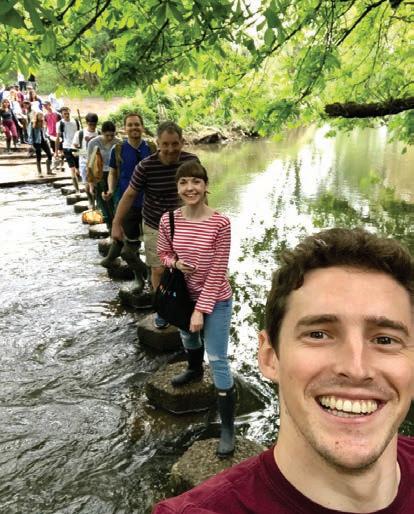
The Biology field trip of 2018 held many surprises. We learnt who in the Biology department had been a pro footballer, and who held a music contract with a major recording company (ask them yourself if you are curious!). The biggest surprise, of course, was doing a past paper (cheers, Dr E), but apart from that the trip was full of good vibes. We followed in the footsteps of past Westminsters and trekked in rivers and up hills. After View’s strong warnings of the dangers of Lyme Disease and the grisly symptoms associated with it, we cautiously tried a wide range of sampling techniques. We learnt that pooters are associated with a great deal of risk in terms of the inhalation of bugs. In addition, net sweepers are another great way to lose friends quickly. Alongside this, the practical adventure did actually provide us with a fantastic opportunity to learn more about the field work attribute of Biology, such as in regard to biodiversity and sampling. This seemed like a world away from the tiny cells that we tend to focus on, and provided a reignition of enthusiasm for the subject for many of us. Although we were in 6th form, it wouldn’t be a Biology trip without a treasure hunt, so thanks to Mr Moore and Dr Evans for that, especially for the edible prizes. It gave many of us a chance to get up close and personal to goats for the first time, and sometimes a little too close! If we learnt anything from this trip, it was that goats aren’t nice and have weird eyes. Overall the trip was a really great bonding experience and gave us new friendships and taught us some new truths about each other and our teachers. We still eagerly await updated photos of the field trip on the Biology department walls, as the pupils in those photos are approaching 30! Thanks again to all the teachers who made it such a success!
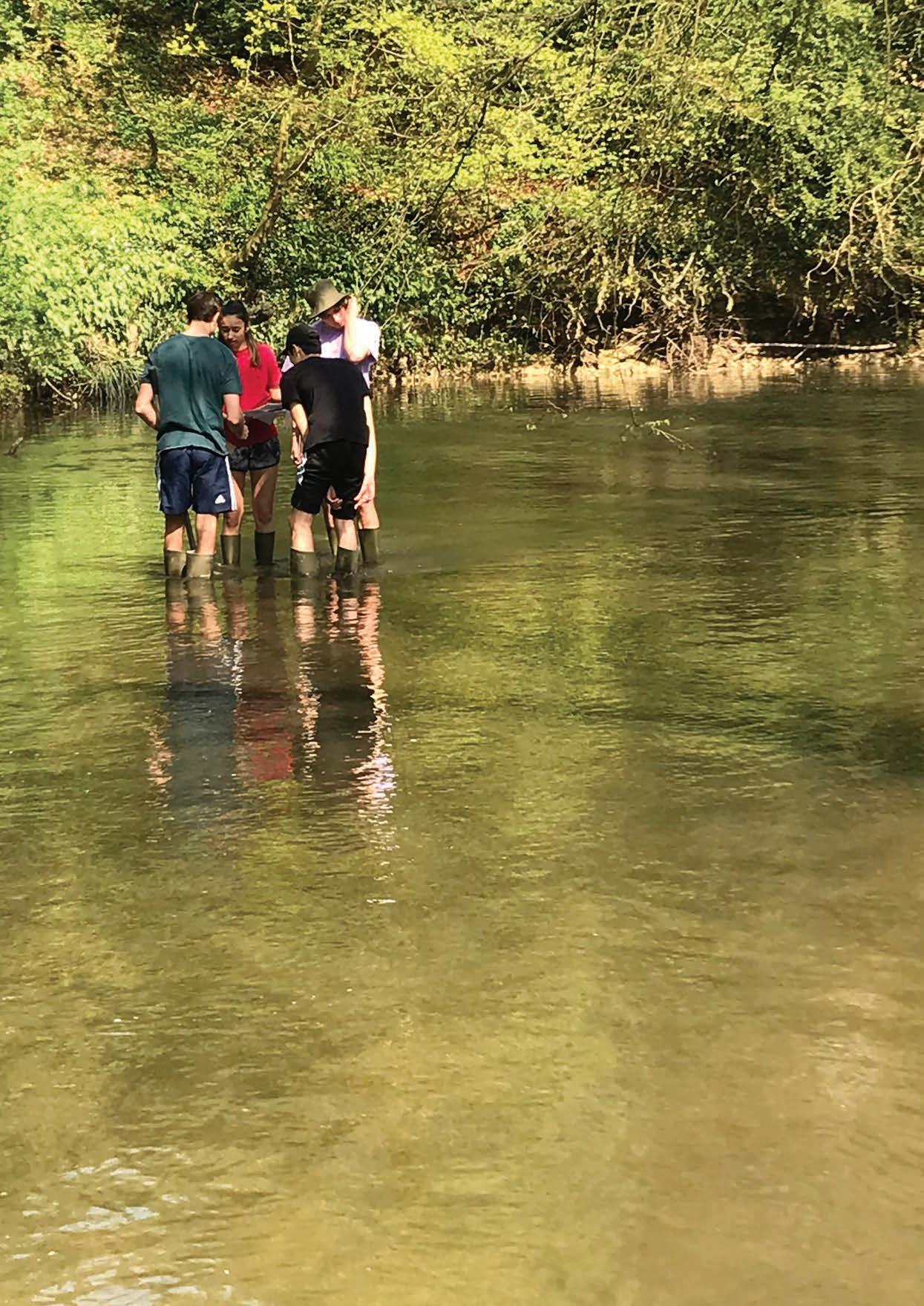
 by Alexander Austin (BB)
by Alexander Austin (BB)
The consensus of the group of nine boys, which set out on this excursion to Paris with Dr Blache and Mr Hopwood, was that the trip was thoroughly enjoyable. We arrived at Lycée Janson de Sailly to meet our partners, with whom we were to stay, ready for a week packed with opportunities to explore a city rich in culture and history.
Firstly, however, there was a language gap to cross. We had the weekend to get to know our partners and our respective linguistic abilities. Despite this initial obstacle, our French proved to be enough not just to get by, but even to engage in quite advanced conversation. Our partners were wonderfully hospitable and made us feel very much at home throughout our stay, including organising group events such as trips up the Eiffel Tower and to the Tuileries.
Also integral to the success of the trip was the friendly and insightful guidance of Dr Blache and Mr Hopwood as we toured Paris’ various landmarks. Our first stop
was La Basilique de Saint-Denis, the burial place of French monarchs. Particular points of interest included the spectacular rose windows and the coffin of Louis XIV in the crypt, not marred in the slightest by the clumsiness of a certain member of the group.
The next day, we were taken to Les Invalides, home to Napoleon’s tomb. The grandeur of the site shocked many of a more modest inclination, but all were thrilled by the chance to picnic in the glorious sunshine outside. The day was topped off with a visit to Le Musée Rodin, where we all enjoyed the sculptor’s work, stories of his relations with his colleagues, and his lovely garden.
On Wednesday, we set off to Versailles, most excitingly, in a double-decker train. Its beauty, as one might imagine, was awe-inspiring: highlights included a gallery of French military victory paintings, the Hall of Mirrors and, most amazing of all, a perfectly intact 17th-century ornate chamber organ.
This was only added to by the rather extravagant gardens, but we could only scratch the surface in the two hours left to explore them.
On the penultimate day, we went on a walking tour of the Latin Quarter. The architecture was a true change from the grand buildings of Haussmann and we concluded our tour with a visit to La Grande Mosquée, where we admired the library and Iranian pastries in the café. Finally, the Lycée kindly threw a drinks party, where we were able to thank our host families and our partners for making the exchange possible.
Despite a return journey slightly hindered by a near terrorist alert, caused by my forgetfulness with my bag and Dr Blache’s quick imitation of my mistake, we returned to London with a great appreciation of Paris. Thanks once again to our host families and to Dr Blache and Mr Hopwood. We look forward to seeing our partners again at Westminster!

At the end of the Lent Term, the Sixth Form geographers –Nicole, Bel, Maddy, Skyler, David, Kit, Thomas and of course Pan – spent four nights in the Gower Peninsula, accompanied by Ms Hughes and Honor, the Purcell’s Matron. The Gower’s beautiful landscapes, from wild moors to cliffs and beaches, saw it named the UK’s first Area of Outstanding Natural Beauty in 1956.
After four hours in the minibus, we finally arrived at Parc-le-Breos. We enjoyed a walk along the River Ilston down to the beach, during which Kit and Thomas managed to get stuck up a cliffy hill and the girls’ room back at the hotel mysteriously got flooded. After a hearty dinner and a brief history of the region, our first evening lesson from Ms Hughes, we got into bed, excited for three full days of Geography awaiting us.
Our first day, focused on rural change, involved us all being dropped off in pairs in different villages for a few hours to investigate how rural change was affected by distance from a major urban area. Bel and Kit were dropped off in Scurlage, later being informed by Mr Wurr, back at School, that the pair dropped off there was carefully selected as it was considered a punishment. Pan, on the other hand, enjoyed a fantastic large bowl of pasta
at “the best pub in Wales” in Reynoldston, as we were repeatedly informed throughout the rest of the trip. We then carried on to Rhossili, to look at the formation of the beach and bay. The day finished with a windy walk down to the beach, which was a nice contrast in scenery to the towns. The day’s activities were rounded up back at the hotel, with presentations about the towns we had visited.
The next day was our river day. Accompanied by our river guide Dawn, we followed the River Ilston from its source all the way down to its lower course, close to the sea, taking measurements of the river at different areas and investigating the flood protections methods. The weather held out for us as we spent all day outside, in the beautiful countryside and woods of the Gower, enjoying lunch in the pretty town of Ilston.
On the last day, we visited Swansea, focusing on recent redevelopment and its CBD’s land use change. This was when we were lucky enough to experience Ms Hughes’ famous minibus tour of Swansea, in which she pointed out to us the fascinating areas of Swansea including the 16-storey DVLA, the beautiful view of the Mumbles from Townhill, Fforestfach and, to everyone’s great excitement, the largest Tesco’s in Wales (to many, the highlight of the trip). The evening finished with the hotel’s living room being turned into a cinema, as we decided that watching Crazy Stupid Love would be the perfect way to conclude the trip.
As well as being an extremely exciting and fun trip, it was very educational, allowing us to practise the skills we need for our A Levels. Although there were many complaints at the time, the two practice AS-level papers we completed in the evening provided us with valuable information on what areas we needed to improve on.
We would like to thank Ms Hughes and Honor very much for sacrificing some of their holiday to give us such an informative, and fun trip away, and looking after us so well.

On 14th October 2018, 30 Lower Shell pupils travelled to Iceland for Expeditions.
What was immediately obvious, as we walked down the steps from the plane onto the tarmac, was that there was almost nothing there apart from the airport: a theme that repeated itself throughout the trip as we travelled to some of the most deserted parts of Iceland to see its geographical wonders. I think I would need the whole Elizabethan to describe every place that we visited in some detail, but I’ll do my best to summarise the most exciting bits.
Our first visit was to the bridge between the continents, which is a small bridge that spans the gap between the Eurasian and American tectonic plates. The landscape there was covered in black volcanic ash from past eruptions. We then visited the Stampar craters and the Gunnuhver hot springs, which had a strong smell of rotten eggs from the sulphur. The ghost Gunna, which the spring is named after and that has inhabited the spring for the last thousand years, obviously hasn’t taken a shower in that time. The 80-100˚C water there would scald it anyway.
On the second day, we set off early to catch the ferry to Heimaey in the Vestmannaeyjar. As we cruised into the long natural harbour, we admired the view of the volcano Eldfell, which last erupted in 1973, covering half the town in volcanic ash. We visited a house that was covered in ash by

the eruption, excavated in 2005, and learnt about the creation of nearby Surtsey in 1963. After lunch on top of the volcano, plagued by rain showers but blessed with rainbows, we travelled to other parts of the island, including where Guðlaugur Friðþórsson came ashore after his boat capsized 3km offshore in March 1984 killing all the other people onboard, and the windiest place in Europe, which wasn’t at all windy when we were there...
Our third day started off with probably the most exciting part of trip: a glacier walk. We got into our harnesses, attached our crampons, slapped on a helmet and picked up an ice axe. It was not at all what I expected, which made it even more enjoyable. The bottom part of the Sólheimajökull glacier was coated
in volcanic ash but you could just see the ice below. The further we walked up the paths in the ice, the less ash there was, until we were on a plain of white ice. We drank from a stream in the ice and admired the view. The volcanic ash acts as an insulator for the ice: a thin layer protects the ice from the sun’s heat, but a thick layer warms it up and melts it. The glacier is melting at a worrying rate, both receding and losing height, and will probably disappear within a century, meaning the landscape changes almost daily. After lunch, we headed off to the spectacular Skógafoss waterfall, viewing it from the platform before venturing into the spray to get a closer look. After that we visited Vík beach to see the Reynisfjara basalt columns. Although the weather was gloomy and windy, we all enjoyed the trip to the beach.

Day four started off with a trip to Seljalandsfoss waterfall. We walked behind it and enjoyed the different perspective that it gave us. We then visited the Lava centre, a very interesting museum about the history of volcanic activity in Iceland, up to the recent eruption of Eyjafjallajökull. Our next stop was Kerið crater, which is filled with an aquamarine lake, then took a walk into the Þingvellir National Park, on the other side of the Mid-Atlantic ridge. We visited
the site of Iceland’s first parliament, founded in 930, and admired the stunning views of the surrounding landscapes. We then visited probably the most anticipated place on the trip: the Geysir geothermal area. The original geyser that the place is named after no longer works but we still got amazing views of the Strokkur Geyser. The penultimate location for the day was the mighty Gullfoss waterfall, before we visited the Secret Lagoon and had a very relaxing dip in the hot water.
On our last day, we visited the Hellisheiðarvirkjun geothermal power plant, which provides Reykjavík and the surrounding area with geothermal water and electricity, and learnt how it works. We visited Perlan, a viewing platform in Reykjavík situated on top of five geothermal hot water storage tanks, and visited the Cathedral before taking the coach back to the airport, where our stay in Iceland ended.


Over the course of ten days, the 33 of us on the trip learned a great deal about the troubled, and often very bloody, history of the land we know as Greece. We heard about and saw the way it has grappled with the legacy of its ancient past, and the way that its past has shaped the emergence of the Greek state out of the aftermath of 300 years of Turkish occupation. We saw the challenges Greece faced in defining its identity and discussed how national identity is formed.
The highlight for me was Nestor’s palace at Pylos, with its magnificent rooms and the hearth that was one of the key features of the throne room. The characters of the Odyssey became alive in my imagination as I listened to Mr Ireland reading to us the part from the Odyssey when Telemachus comes to Nestor for news of his father Odysseus, as Nestor had fought at Troy with Odysseus and was a great friend. We heard further readings, dramatised by Mr Ireland and Mr Daly, of his journey through Greece for news of his father and we retraced the path he took, by going on to Sparta where Telemachus met with Menelaus and Helen in their palace there.
One thing I had not expected were the many impressive bridges we saw, such as the classical bridge at Brauron, and, most impressive of all, the Rion-Antirion Bridge. A feat of modern engineering, it is the longest cable-stayed bridge with a suspended deck in the world and spans the Gulf of Corinth, which is one of the fastest-opening rifts between tectonic plates in the world. It is also built to withstand earthquakes up to 7.4 on the Richter scale.
At ancient Mycenae I was awe-struck by the Cyclopean walls and spectacular Lion Gate that marks the entrance to “well built” Mycenae. The treasury of Atreus was also incredible and had a lasting effect on me. It was particularly exciting to be able to go on that same day to the archaeological museum in Athens and to see some of the finds from Mycenae such as ‘Agamemnon’s’ golden burial. In the museum, we also saw the Antikythera mechanism, the oldest known astronomical computing device in Western Europe.
Overall, I found the Greek trip very enjoyable and it has totally changed my perception of Greece. I would heartily recommend this trip to future years, as it is not only an incredible opportunity to see amazing sites but also to have fun with your friends as well.


Joining a new school is always hard: getting to know lots of new people... teachers, pupils, staff... and lots of new classrooms! And it’s especially hard to make new friends quickly.
Westminster’s Alston Trip, for all new 5th Formers, helps teachers and pupils alike get to know their housemates, and offers the perfect environment for everyone to get along really well. Wren’s was assigned late November for its trip ... not the ideal time for sun and warmth, I’ll admit, but that made it even more exciting and invigorating.
On Monday, we took the train from Euston to Penrith Station. The scenery was beautiful: leaving the city was like being embraced by a wash of green colour! From Penrith we collected our almost new and surprisingly clean minibus, and a couple of hours of driving brought us to Nenthead Cottage, a lovely whitewashed building which the School reserves specifically for these House trips. The air was pure and fresh (no ULEZ regulations needed here!) and our excitement levels were very high. Soon we set off for our first walk of the trip, from Ashgill Bridge to Garrigill. Sorted into pairs, each pair received an OS map, and the teachers made it clear that we were in charge of our own route. No sheep-shepherd dynamics here! With the orienteering now quite a challenge, and with us all choosing different ways, it was a relief when we eventually all made it to Garrigill.
Later on, we went to an underground network of mines. Once again, we were expected to orient ourselves and be self-sufficient, and our task was to find a different way out from the one we had just come through. Our guide told us: “I’ll stop you before you do anything dangerous, but not before you do anything stupid”. A chilling thought! We were knee deep in freezing muddy water, which had permeated through the limestone above us, and we had to navigate the labyrinth with no map and only a little light from our helmet torches. Luckily, we devised a clever scouting system where, if there was a fork, we would send two or three pupils ahead of us to check whether it was a dead end or not, and, after much debate we would eventually go down the right one. We were lucky that, after many difficult climbs and drops, low ceilings, lost scouts, and argument, we all actually made it out! The day ended with a delicious dinner by our local guest chef, followed by games like Articulate in the sitting room, before a late lights-out.
The next day, we set off on another long and tiring hike, around Casterligg Stone Circle and up a nearby hill. We also visited Keswick, where we had tea in a traditional tea room and visited the nearby lake (it’s the Lake District after all!). We then bought some groceries, because we were going to make our own dinner! Together we cooked pasta with tomato sauce, and some amazing

garlic bread. It was truly delicious. This time our after-dinner activity was Trivial Pursuit, a bit like our morning!
We were jolted awake on Wednesday, by a fire drill! Bleary-eyed, we made breakfast (olive oil fried eggs, anyone?) and then set off for Vindolanda. There were loads of cool exhibitions and models in the museum, and the site was well maintained and very informative! As a final treat, we went bowling, which was great fun, followed by dinner in the local pub, where Shutian wowed us all by playing the piano very impressively.
All there was to do on Thursday was head home, back into the urban greyness of London. The trip was truly extraordinary, we visited so many places, walked a lot, and proved that the best way to do things is working together in synergy. For a bonding experience at the start of a new school, there’s nothing better than Alston!
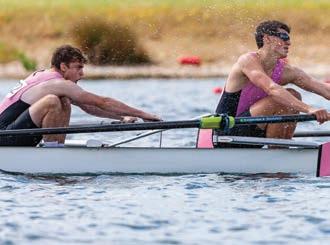





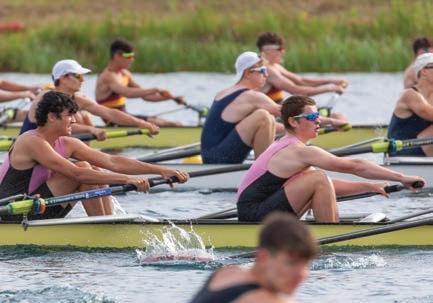
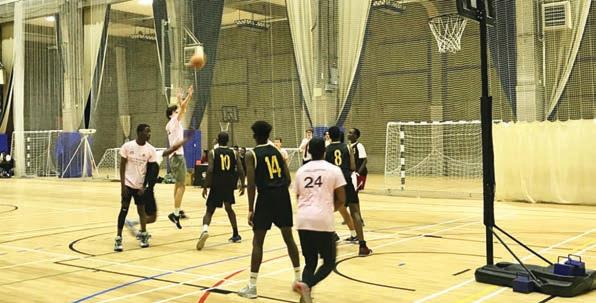



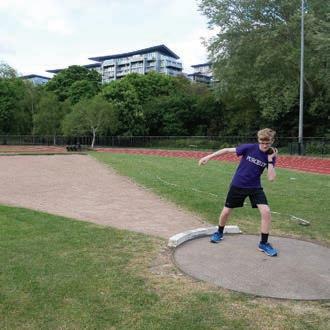
Basketball at Westminster continues to go from strength to strength. Further to great progress last year for our U18 and U16 teams, the 1st V have made a promising start to their short and exam-disrupted season.
Our now-annual fixture away at Tonbridge School saw a fluent performance and an agonisingly close 51-47 defeat. Signs, however, that Westminster’s ‘ballers’ can mix it with the best of them. A heavier away defeat against a strong City of London side followed but solace was taken from the fact that the Westminster Yardtrotters were able to ‘stick’ 45 points on their well-drilled opponents.
Last year’s captain and this year’s coach Piers Charnley has our thanks for instilling greater discipline and structure to the team’s play. Attempts at replicating the NBA’s plays of the week seem to be inevitable but the squad are certainly now playing as more of a unit, defensively and offensively. Here is to hoping next year brings further progress and even (whisper it quietly) a win.
Jamie BrownIt was with typical bad luck that the warm spring sunshine that gave such optimism at the end of the Easter holidays quickly turned to the normal cool breeze and grey skies at the start of term. One day, Athletic Sports Day will be warm and sunny!
In the Junior competition, Melchior Walewski (AHH, Junior) ran a strong 56.8 (0.2s shy of the record) to claim the best performance award. Christopher Yang (BB) was only 0.1s off the Junior 100m best, held by Olympic skeleton bronze medallist, Dom Parsons, and Christopher also won the 200m by a full 2 seconds. In the Inters age group, Freddie Flowers (BB) stormed to a sprint double, whilst Herbie Bingham (PP) was only 2s off the 800m record, despite a dubious pacing strategy for his first lap! Others to stand out included Alexander Pitlarge (BB), who won a competitive high jump, and Daniel Szoke (WW) who was just shy of 10m in the shot putt.
The Seniors’ best performance medal was extremely hard to decide, and Taran Jawa (BB) just got the nod after his 11.6s for 100m. Thomas Kemball (RR) was the other stand-out performer, both in the individual 400m (53.5s) and the relay, where he swept into the lead in the home straight. Isaac Adni (BB) just out-kicked Oliver Haddad (WW) in a very competitive Mile race, and Ross Plowman (DD) won the shot by nearly a metre. In the Girls’ competition, Sophie Boehler (AHH) stormed to victory in both the 200m and long jump, but couldn’t quite match Arianna Alonso Bizzi (WW) in the 800m, who led from gun to tape.
In the end, Busby’s just pipped Ashburnham to the overall title, with age group trophies awarded to Ashburnham Juniors, Busby’s Inters, Busby’s Senior and Ashburnham Girls. Roll on some sunshine for next year!
Simon WurrWe enjoyed a bumper year in Bridge at Westminster. The Wednesday lunchtime session frequently had three or four tables playing and many more pupils took part in events, the Option and the LSA over the year. The first ever House Bridge trophy was won by Ashburnham –congratulations to house captain Akshey Rajani, Natalia RodriguezMoskalkova, Siddharth Sharma and Bastien Virazels on their achievement. They consistently did well in school events and all represented the School in home and away matches as well as at regional and national competitions. We took three teams to the Young Bridge Challenge in Loughborough. Though we didn’t end up bringing home a trophy, we were high in the rankings and defeated some national team players along the way – not bad when you realise that most of our team haven’t been playing more than two years! Those same players took part in the Surrey Schools Cup at Roehampton Bridge club, all getting top-half finishes.
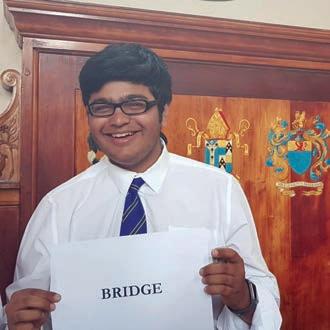
We say goodbye to many of our Remove pupils including Bridge captain Ethan Madsen, who has been an excellent leader who has inspired a wider gathering of players at the School. We also, very sadly, will be left by Mr Luke Tattersall. For several years he has taught new Sixth Form pupils how to play Bridge in his Option and he has been at the Wednesday session week in, week out. He has played every event for staff and pupils event and has been a valuable source of advice on how to get the most out of Bridge at School. I’m sure I’ll still see him on BBO every now and again but he will be irreplaceable around School. All of us at Bridge wish him all the best for the future.
Rob WagnerPlayed: 10
Won: 5
Drawn: 0
Lost: 5
Abandoned: 4
2019 was a season with two truisms for the 1st XI and their efforts: firstly, they were consistent in their inconsistency, and secondly, they played far better within SW1 than elsewhere. It was a congested season due to a late Easter, and hampered by inclement weather through the middle, leading to a few abandonments.
128-8 with Alex Gardiner (GG) (3-37) ripping out the middle order. However, crucially the ninth wicket put on 62 and the chase was made much harder. Nevertheless, at 134-4 with McConnell (48) and Mackay (28) set, victory seemed likely before both were out in consecutive deliveries and a disappointing loss ensued.
LSCA U19 Cup
1st XI 104-8, Colfe’s 105-3
Other matches
1st XI 243-4, MTS 2nd XI 71
MCC 230-7, 1st XI 103
Charterhouse 193, 1st XI 153
Aldenham 138-7, 1st XI 139-4
Chigwell 129, 1st XI 119-7
Butterflies 120, 1st XI 123-8
Alleyn’s 126-6, 1st XI 108-9
Emanuel 158-8, 1st XI 159-4
Old Westminsters 91, 1st XI 92-6
The first match of the season was a visit from Merchant Taylors’ Northwood 2nd XI. Westminster produced their best batting performance of the season to post a commanding total with Junaid Ahmed (GG) scoring an excellent 100* and Angus Mackay (AHH) hitting 73* off just 60 balls. MTS couldn’t shake some tight bowling, particularly from Gaurav Kocher (WW) (3-17) and Will Whiu (BB) (3-3).
Next up, the MCC brought a powerhouse line-up which was far too strong for Westminster, although Captain Lucas McConnell (RR) (2-85 & 51) tried his best to stave off the defeat. The game against Charterhouse was much closer, as they were reduced to
Bouncebackability occurred, though, with a thrilling victory over Aldenham School. Westminster faced a challenging chase of 139 in 20 overs, despite the best efforts of Arun Ghai (BB) (3-15). Ahmed (35) gave the 1st XI a good start, continued by Tarun Eapen (GG) (49*), but 32 were needed still off the last 3 overs when Mackay took charge and smashed 30* off 16 balls to win the match with 3 balls to spare.
The first away match was a T20 at Chigwell School. The hosts were dismissed for 129 with Kocher (3-21) the pick of the bowlers, but 17 wides was profligate, and proved vital. The efforts of Ben Preston (GG) (23) and Whiu (21*) proved too little too late against the
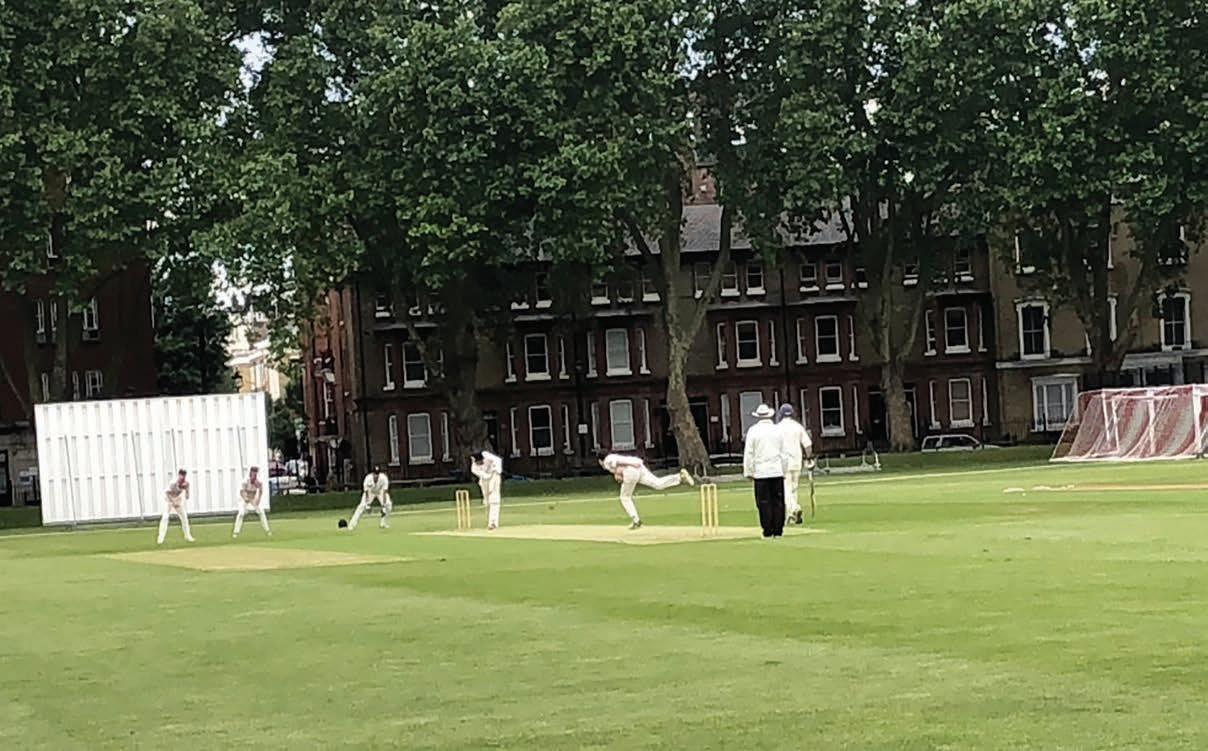
opposition bowlers. Once again, there was a positive response to defeat as the Butterflies were bowled out for just 120 with McConnell (5-22) and Matt Carver (DD) (3-27) doing most of the damage. The chase was far from straightforward as Westminster found various ways to get out, until Ghai (19*) helped them to fall over the winning line.
The defence of the London Schools’ U19 Cup followed with a T20 semi-final away to Colfe’s, but, after just 6 overs the 1st XI were in disarray at 29-5, before Vayu Singhal (QS) (30) and Oscar Young (BB) (22*) saw them to some measure of respectability. Valiantly as they tried in the field, this was just not enough, although they took the opposition to the last over. This defeat was made even more galling when the teams in the other half of the draw withdrew, thus making the match effectively the final. Insult followed injury as another disappointing batting display led to defeat away to Alleyn’s.
Happily though, the season ended with two excellent victories. Against Emanuel School, Kocher (3-22) again led the bowling to restrict the opposition to 158-8 off their 35 overs. However, excellent Emanuel fielding made the chase tricky, but, good innings from Eapen (43), Ahmed (43) and McConnell (32*) allowed Mackay (14* off 6 balls) to apply the coup-degrace with a few overs to spare. The Jim Cogan Cup against the Old Westminsters saw the most complete bowling and fielding effort of the season as the OWs were skittled for just 91, with Ghai (4-21) leading the way. Once more, the batting faltered but McConnell (29) played a significant innings to allow Ghai (12*) to see the 1st XI home.
In summary, skipper McConnell led from the front and was Player of the Year as both leading runscorer (240 at 26.7) and wicket-taker (15 at 20.00) –he will be sorely missed. Ahmed (239 at 26.6) played a few quality innings and kept wicket well also, but he will seek greater consistency next year. Mackay (190 at 38.00) was the Most Improved Player and the only other batsman to pass 125 runs aggregate for the season. The bowling showed greater strength and promise with Ghai (14 at 14.14), Kocher (13 at 11.85), Whiu (10 at 13.00) and Gardiner (10 at 18.90) all returning next year (and beyond!).
I would like to thank all the staff and coaches connected with Cricket Station for their efforts throughout the year, and especially, Keerthi Ranasinghe for his expertise and enthusiasm as 1st XI coach. In addition, I would like to thank the Groundsman, Franklin Barrett and his assistant, David Wicks for all their unstinting hard work, as well as our most consistent performer, the Scorer, Tony Japhet to whom again we owe an immeasurable debt. Thank you too, for their devoted support, to the many parents who were most welcome spectators at Vincent Square and beyond.
James Kershen
The 2nd XI offers a chance for competitive cricket, in the midst of a busy exam term and helps to support players in the Upper School, who are pushing for a first team place. Energy levels are high and competition for places has been really keen this year, which has been of great encouragement in a Cricket World Cup year. The first game of the season saw a tough away fixture against Merchant Taylors’ School, on a bitterly cold day. Whilst the 2nd XI lost by 101, Tom Carver (DD) bowled excellently with figures of 3-44, and Pip Earle (GG) was just shy of a half century (47). Our home fixture against Chigwell School in mid-May saw the team winning by 7 wickets after Westminster reached the 125 set by Chigwell, with the fall of just three wickets and a notable batting performance from Ross Plowman (DD) (31). In the 2nd XI’s competitive London Schools’ Cup game we were drawn against very tough opposition, Newham Sixth Form College. After making the trip over to East London, the team bowled well to keep the Newham side to 125 from a rain-reduced 17 overs, with Tom Carver again bowling particularly well to take 2-30. The highlight of the innings unfortunately did not come from a Westminster pupil, as the fielder we had borrowed from Newham ran his own teammate out with a direct hit from 30 yards on the run! Westminster felt confident of chasing down the total at the start of their batting innings. However, the Newham bowlers gave us no width and we soon fell well behind the run rate. Ewan Hincks (PP) did well to score 21 on a (by then) wet surface against talented bowlers but unfortunately we were all out for 60. All in all, it has been a pleasing season for the 2nd XI squad and we look forward to seeing the continued development of players next season.
Stephen Bailey
What a strange season it was. At the start of term it looked doubtful we could put an 11-man team out at all, as not enough Lower Shells had signed up for Cricket Station. A bit of recruiting, and we managed to get a squad of 12 together. And they only went and won the London Schools U15 cup! Bonkers…
So, the account of this crazy season then. After a couple of U15/U14 “performance squad” matches against Merchant Taylors and Wetherby (won and lost respectively), the season began in earnest with a chastening defeat to a good Aldenham side. Despite defeat, the highlight of the match was Jaiyun Iyavoo (LL)’s bowling, including a great ball to dismiss their talkative keeper. The first round of the Cup was an easy victory over Rutlish School: wickets for Harry Sweeting (RR)’s leg spin (3-11) and runs for Tarun Eapen (GG) (33no). Arjun Kapur (GG) and Kai Mistry (PP) both struck unbeaten half centuries in a comprehensive win over Chigwell, who were bowled out by Tanishq Kumar (PP) (4-5) and Captain Faizan Malik (MM) (3-5). Then came a match against a strong Alleyn’s team. Looking like it was all over chasing Alleyn’s imposing total, some big hitting from Sweeting got us close, before the innings of the season from Mistry (51no) took us over the line, with a six off the penultimate ball to clinch a thriller. Then came the cup, with the team bolstered by some U14s such as the talented Sachin Lavender (AAH) and Alec Brooke (LL). Against City of London there was a victory by 15 runs, with thirties for Kapur and Lavender, and the Charter School were well beaten by 7 wickets, with excellent bowling from Kapur and Brooke, sealed by Tarun’s calm batting against an excellent pace attack. These victories were enough to win the LSCA U15 cup, a feat which has eluded the School in recent years, so the boys are to be greatly commended.
Other U15 cricketers to contribute included Aditya Raj (QS), Aditya Tatwawadi (WW), Nick Rackow (PP), Nikhil Singh (DD) and in particular Harry Day (QS), all of whom show great promise for the future. Many thanks must go to the elder statesman of Westminster cricket, Mark Mason, for his fine coaching and even finer storytelling.
Charlie Ullathorne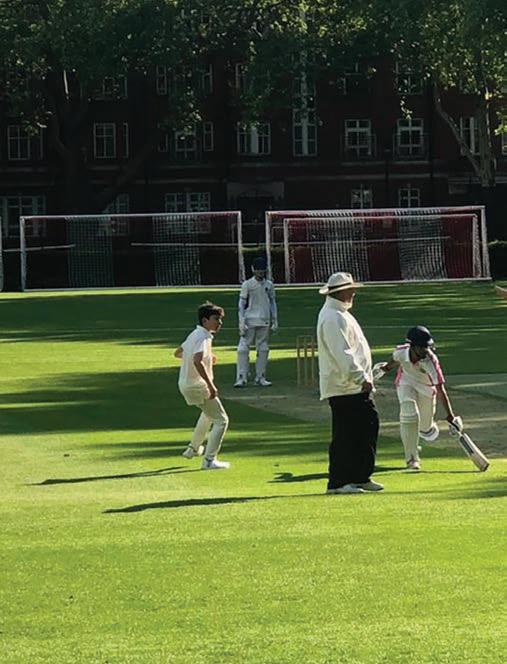
This season consisted of a series of high-class games of cricket. The side had great results, proving their strength and grit in tough situations, and reached the semifinals of the ESCA U14 cup.
The U14A season began with a good away game against Charterhouse. Bowling first, Westminster restrained them to a total of 132 for 9. Westminster chased the total down with 5 overs to spare with Alec Brooke (LL) and Amol Chauhan (MM) both finishing on 47 not out, and won by nine wickets. A confident start to the season. The next game was against Charter, in the ESCA U14 cup. Due to rain, the game was shortened to 10 overs per side, and the opposition mustered up 51 in wet, skiddy conditions, but we managed to win with 8 wickets still in hand. Highgate was the next game and it was a high scorer with Westminster chasing 174 in 20 overs. Sachin Lavender (AAH) and Amol Chauhan (MM) took the lead in this game, taking Westminster to a seven-wicket win. This was a recurring theme throughout the season. Aldenham was a great
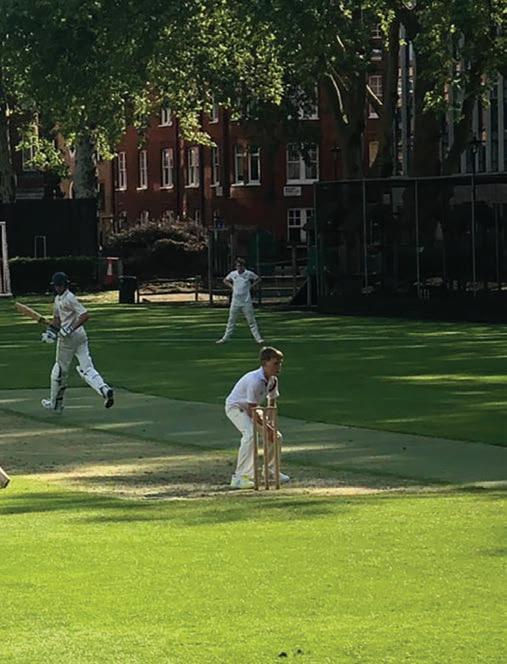
Played: 10
Won: 7
Lost: 3
game, with Westminster once again chasing a large total, but with the run rate falling short after a flurry of wickets, defeat soon followed. Westminster bounced back with a win against Latymer Upper, and convincing victories against Chigwell and Alleyns.
At the end of the first innings, John Lyon School looked to be in fine touch but Sachin Lavender and Aditya Gupta (AAH) rescued the team.
The greatest challenge so far was against Dulwich College, with a place in the final of the cup up for grabs. The opposition took their time to chase the total, winning by nine wickets in the end, and Westminster were sent out of the tournament following a poor performance. The last game of the season was against Emmanuel School away, and resulted in Westminster being bowled out for 136.
In all, a fine season of Cricket, by a strong team of players.
Amol Chauhan (MM)The Long Distance races traditionally provide an exciting start to the season, and this year’s event was no exception. Tara Sallaba (PP) stormed to a new girls’ course record, with the other races being won by Christopher Yang (BB, Junior), Herbie Bingham (PP, Inter), Isaac Adni (BB, Senior). Wren’s flexed their early-season muscles by winning the overall trophy, ahead of Dryden’s and Ashburnham.
The school team was narrowly defeated by the Old Westminsters in the rebranded ‘Serpentine Cup’, with Herbie Bingham, Thomas Adamo (GG) and Caspar Griffin (CC) leading the way, and yet again, Tara Sallaba set a new record time. These excellent early-season performances were then backed up at the King’s Trophy, where Westminster finished 4th out of 14 schools with a team that was bolstered by a host of oarsmen. This good run of form continued at the RGS Guildford Relays, with the A team 6th out of 43, with Kit Barrow (GG) having perhaps the best relative run, and our girls’ team comfortably defeating the opposition to be the first all-female squad.
Harrow’s mud was easily swept aside by our Inters team, led home by Herbie Bingham (3rd out of 36), with excellent support from Hector Cross (RR, 8 th) and Ted Dyer (LL, 9 th) whilst Sophie Sargent (RR) and Arianna Alonso Bizzi (WW) had breakthrough runs to finish 4th and 9 th respectively out of 28. The Knole Run is always a highlight of the season, and Isaac Adni yet again performed when it matters most, finishing an amazing 17th and helping the boys’ team finish a very respectable 13 th. Sophie Sargent finished a magnificent 10 th – only the third time that a Westminster pupil has achieved this accolade.
The London Schools Championships are the second main target for the season, and the best result was achieved by our Inters team, who finished an encouraging 2nd. Three pupils finished inside the top eight finishers, and therefore gained selection to compete for London at the prestigious English Schools Championships: Isaac Adni (4th Senior), Thomas Adamo (8 th Senior), Herbie Bingham (7th Inter).
As the season drew to a close, Oliver Haddad (WW) and Sophie Boehler (AHH) set the pace at the Bringsty Relays with the fastest legs, Rigaud’s triumphed overall and age group medals were awarded to Purcell’s Juniors, Busby’s Seniors, and Ashburnham Girls. My thanks, as ever, go to the hard work of the pupils, and dedication of the staff who have put so much in to make the season such an enjoyable one.
Simon Wurr

This year has seen further changes to the cycling programme at Westminster, beginning in Play Term with a hard-fought hill climb time-trial against St. Paul’s. The peloton convened, bleary-eyed, at Bromley South early on Sunday 7th October. This was a race organised under the auspices of the South London Cycling Club, and registered with the national body Cycling Time Trials all of which brought some welcome seriousness and ‘edge’ to proceedings! We pinned on our numbers and wobbled over to the start line, set up beside a high-precision time recording device. Westminster was represented by Kyumin Lee, Louis Negri, David Dowley, Arianna Alonso Bizzi (the first female climber on a CTT-registered Star Hill race), Willem de Mol van Otterloo (a rower on cycling duty), Mr Iain Butler and myself. The results? Westminster pupils aggregate time: 10.2321s. St. Paul’s: 10.0206s. A very respectable effort on their first open-road race, and the organisers were highly impressed by the attitude and gusto of all involved.
The other substantial change this year has been a series of visits to the Lea Valley velodrome, the site of so many famous victories in the London 2012 Olympics. The journey time getting there was well worth it: as a facility it’s world-class and the quality of the coaching has been a step up and for our boys. Three pupils Louis, Stan, Kyumin put their skills to use in the Dulwich Inter-Schools Championships in May, a very competitive occasion, and we all look forward to seeing how they continue to develop next year. Forza!
Dom JonesIt has been a busy and varied season for the Westminster Eton Fives squad.
The Lower School, despite losing most of their matches throughout the season, show serious promise. In particular the Lower Shell performed remarkably well in the Nationals Festival competition, winning both Plate A and Plate B. Hopefully by the time they reach the Remove, they will be able to challenge the top pairs in the U18 Open competition.
For the senior squad it has been a mixed season. With the pressure of university applications, few matches were played until late in the Lent term. However, we did get to try Rugby Fives for the first time at Alleyn’s school, which was a personal highlight (despite injuring my hand!). Rugby Fives is a game more similar to squash than Eton Fives; it requires more agility and fitness but less precision, which was useful practice for the senior squad, as it took us out of our comfort zone, forcing us to work a great deal harder than we perhaps might back home on the Westminster courts. For the first pair, the best match of the season has to be a thrilling 2-3 defeat against Harrow: though we lost in the fifth set, the match was close all the way through and thoroughly enjoyable to play.

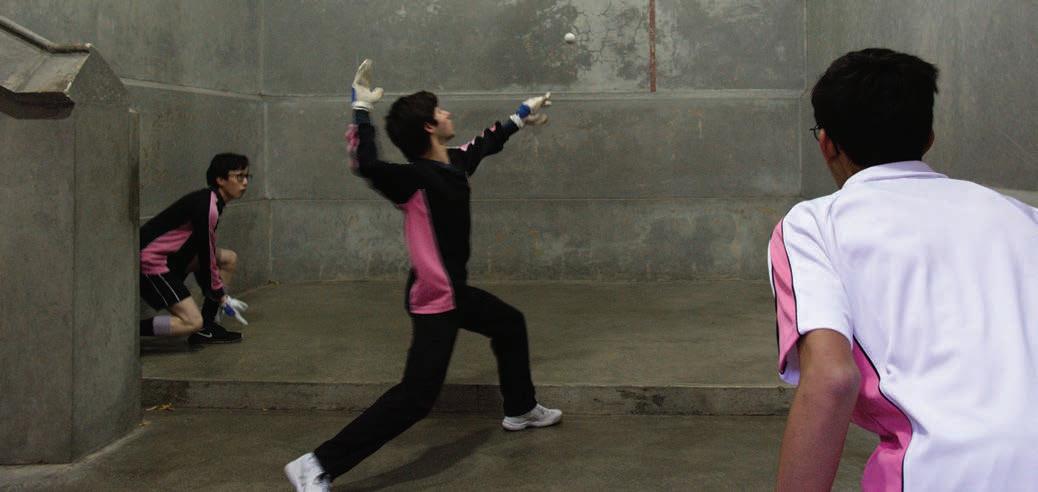
The squad also entered various competitions in the Eton Fives Nationals at Shrewsbury School with varying success, despite having to wake up at 6am in order to attend. We sent two pairs to the U18 Boys’ Open competition. The first pair won their group, beating a strong first U17 Shrewsbury pair. The second pair came third in their group, but won in the next round against Shrewsbury 13. Nevertheless, both pairs were subsequently knocked out: the first pair faced a challenging first U17 Eton pair and lost 1-2, the only match in this
By all accounts, the 2017-18 season was a strong one for fencing at Westminster. We were sorry to be without last year’s Remove fencers, of course, but the new squad wasted no time in taking up the mantle: they comfortably overcame the opposition at all three season-opening away fixtures against Winchester, Harrow and Tonbridge. Westminster’s defence of its reputation as a fencing force to be reckoned with was off to a flying start, with Removes Sam Wilson and Avery Boucher-Rowe ably leading the charge.
We are very grateful to the School Society for a generous grant, which enabled us to equip the Sports Centre with a roll-up conductive piste for épée fencing, supplied by Leon Paul. As well as providing a grippy surface for fencers, this helps referees to distinguish between a floor strike and a scoring hit.
round of the competition to go to the third set, whilst the second pair lost to St Olaves 2, who went on to reach the semi-finals.
Later on in the week, we entered the Festival, a competition designed for those who aren’t seeded in the Open competition. Having reached the semifinal, we unfortunately had to retire as we knew we didn’t have time to play in the final due to a reservation for dinner. Our girls’ pair reached the quarter-final of their competition, but lost to a wellpractised Shrewsbury second pair.
The highlight of these couple of days was the mixed competition, in which Leo and Viva reached the quarter-final and lost 1-2 to Highgate 2.
I would like to thank Matt Wiseman and all the other members of staff involved in organising and taking us to various matches and competitions throughout the season. I hope to see all those in the Remove back on the Fives courts at some point in the future.
Daniel Gore (QS)It was first used in anger during home fixtures against Harrow and Winchester – each bringing a clean sweep of victories.
The new Fifth Form recruits got their first taste of competitive fencing when they faced teams from St Benedict’s in February. Coaches Tomek and Leo, assisted by Mark Evgenev (MM 6th), had whipped them into fighting shape. Up against fencers with considerably more experience, they put up a good resistance, but were ultimately overcome – the final scoreline was 34-45 for each team. The Upper Shell, meanwhile, showed the way with a 45-22 win.
Our biggest event of the year is the Public Schools’ Fencing Championships, which takes place annually in March. We fielded nearly 30 fencers over two days of competition. This involved almost all
of the School’s fencers, and there were many stand-out individual performances. National successes were recorded by Tara Sallaba (PP 6th), who took 3rd place in the Girls’ Senior Epée; Sam Wilson (DD Rem), who took 2nd place in the Boys’ Senior Foil; and Alec Brooke (LL 5th), who won the gold medal in the Boys’ Mount-Haes Epée. Westminster also took home a team trophy – a splendid haul!
As I reflect on the considerable achievements of Westminster fencers this year, I am reminded of the enormous amount of work that our long-serving coaches, Tomek Walicki and Leo Suarez, have done to make it possible. We are all immensely grateful to them for their top-notch coaching and endless enthusiasm.
Iain Butler1st XI
Played: 23
Won: 9
Drawn: 4
Lost: 10
Pre-season
Germany Tour –
FSV Duisburg U19s (a) Lost 4-0
Germany Tour –
RKSV Wittenhorst (a) Won 7-1
Boodles ISFA Cup
Dulwich (h): Drew 4-4 AET (3-3 at full time). Dulwich won 6-5 on penalties
Elgin Capital League
Ibstock Place (h) Won 3 – 1
Forest (a) Lost 1-2
John Lyon (h) Won 3-1
Highgate (h) Drew 2-2
Alleyn’s (a) Lost 0-1
Aldenham (h) Won 5-2
Brentwood (a) Lost 2-3
London Independent Schools’ Cup
Royal Russell (a) Lost 1-2
Other Matches
City of London (h) Lost 0-3
Charterhouse (a) Lost 0-2
Winchester (h) Won 2-1
Latymer Upper (h) 0-5
Bradfield (a) Drew 1-1
Sutton United Academy (a) Drew 3-3
Old Westminsters (h) Won 2-1
Kingston GS (a) Won 2-1
Harrow (h) Lost 0-4
Latymer School (h) Won 3-1
Bedford Modern (h) Won 2-1
RGS Guildford (h) Won 1-0
UCS (a) Lost 1-2
The 1st XI enjoyed a very successful season and played some fantastic football, on an increasingly competitive Independent School circuit.
Preseason saw a superb trip to Germany, where the team enjoyed first-class facilities and the whole squad trained hard, taking on a lot of information. The tour included two matches against tough local academy opposition. First was a very difficult match against FSV Duisburg U19 Academy, where Westminster struggled to match the opposition physically but showed fantastic organisation and togetherness. The second match saw Westminster flex their attacking talent against RKSV Wittenhorst as they overpowered their opposition in a 7-1 win.
Returning to Vincent Square, the team got off to a great start against Ibstock Place, who had beaten league favourites Royal Russell. They defended resolutely and showed more strong attacking play to win 3-1. Sadly, they then suffered two defeats in a row to City of London and Charterhouse. The team therefore went into their huge ISFA Cup match with mixed form.
The big cup match against Dulwich College started very well. Westminster settled quickly and scored three goals: first from Rozanov (DD) in slightly fortuitous circumstances, a sublime 35 yard thunderbolt from Manning (MM), then Dadarkar (LL) added a third on the counter attack. However, Dulwich quickly got a goal back and Westminster started to crack under the consistent pressure from a very physical side as two late goals from Dulwich took the game into extra time.
Westminster regrouped and took a 4-3 lead but once again they conceded a very late equaliser. Penalties: never a nice way to finish a game. Both teams remained equally matched throughout the shootout due to some great saves from Cowling but with the 10 th penalty taker stepping up Westminster were beaten 6-5 and left heartbroken.
The team had to bounce back quickly for a match against Winchester, banishing the ghosts from earlier in the week with a spirited 2-1 win, showing much better resilience. Next followed a difficult run of matches before half term. First they were narrowly beaten by a strong Forest side, despite Manning scoring another outstanding long-range effort. They bounced back once again, with a dominant 3-1 defeat of John Lyon, including a hat trick from WetrinDavis (WW). Sadly, a tiring half term got the better of them in their final match of the half term, against Latymer Upper, where the team underperformed.
After half term, the 1st XI hosted a strong Highgate side. Westminster started poorly and were trailing 2-0 when up stepped Gilmartin (LL). An inspired 20-minute spell saw the wingback score a superb right-footed drive and then pick out debutant Oscar Young (BB) with a fantastic cross that was met with a crisp volley to rescue a point. The 1sts backed this up with a well-earned draw away to Bradfield but couldn’t quite do the same in a narrow loss to Alleyn’s. The 1sts then had back-to-back home league
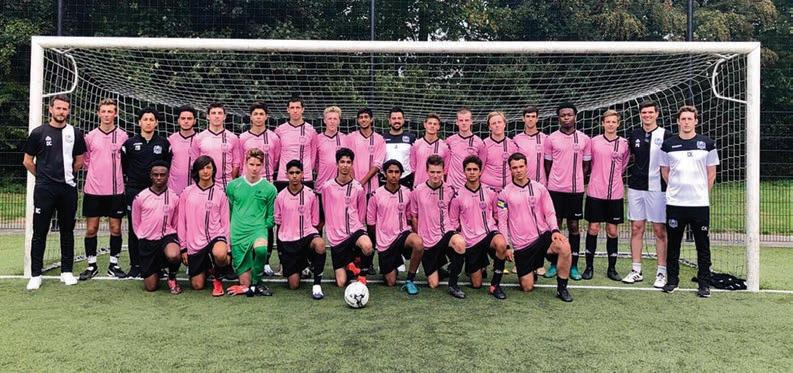

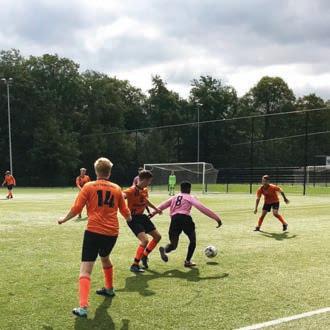


matches, comfortably defeating a weak Aldenham side, before pushing eventual league winners Brentwood all the way in a brave performance that finished in agonising style, conceding two goals in the last five minutes. The term finished on a high with a wholesquad trip to Sutton United stadium, where they played out an exciting 3-3 draw against their development side.
The Lent Term started with a challenging match against a very strong Old Westminster side. With Angelos Anastasakis (OW) denying the 1st XI the lead with an athletic diving save, it looked like it wasn’t going to be 1st XI’s afternoon, but the side dug deep and managed to break down the tough opposition defence twice and ride out 2-1 winners. They then travelled to Kingston Grammar and another dominant performance saw them win by the same margin. The team seemed in a strong position heading into their difficult London Cup match against Royal Russell.
On a miserable January afternoon, the 1sts took to the field away at Royal Russell. After going behind, they scored a late equaliser and looking the stronger team they pushed for a winner, but Royal Russell pounced upon a momentary lapse and scored in the dying moments to knock the 1sts out of another Cup competition in
familiarly agonising style. This was followed with a tough visit by Harrow, who proved too strong and with a tricky forward line capitalising on a poor second-half spell.
The team was determined to finish the season on a high. First came an authoritative 3-1 victory over Latymer in a great team performance. Then came a tight 1-0 win against RGS Guildford. Despite the opposition keeping the ball well, the 1sts were rarely stretched and saw the game out well. Last of all came a fiery away trip to local rivals UCS. Westminster played very well and took the lead against a talented opposition, who had also reached the fourth round of the ISFA Cup. The game perhaps hinged on a questionable refereeing decision not to send off the UCS captain and in the second half the opposition piled on the pressure, scoring two late goals despite a valiant performance from Westminster.
The 1sts showed great character, bouncing back repeatedly to finish with a fantastic record despite some painful defeats. It was very much an entire squad effort, and credit is due to every player. There are, however, a few special mentions. Firstly to Manning, who not only scored a number of notable goals but also represented the School with aplomb in the ISFA U17 side. Secondly, a huge thank you to the outgoing

players who represented the school so well. Captain Lloyd Williams (PP) led by example all year, never afraid of putting his body on the line and chipping in with some brilliant headed goals. He was expertly supported by Drake (LL) whose reading of the game and composure on the ball was a real asset. Wingbacks Gilmartin and Santin-Arcadu (LL) were a consistent threat going forward and expertly nullified opposition threats out wide. Hyman (BB)’s energy and creativity in midfield was key and he martialled the midfield alongside Muirhead (HH), whose tenacity and ability on the ball were crucial to a lot of what the team did well. A few key performances from Young boosted the side and up front Wetrin-Davis started the season well but was sadly hampered by injury. Striker Bhushan Dadarkar was a real thorn in the side of opposition teams, scoring some fantastic goals and bamboozling defenders.
A huge thanks to James Lewis, whose tireless work and insight allowed the team to flourish, to Paul Barnes for his organisation of a consistent approach to Westminster football that is already paying off, and to the support on the sidelines from parents who have stuck with the team through thick and thin.
Chris Kingcombe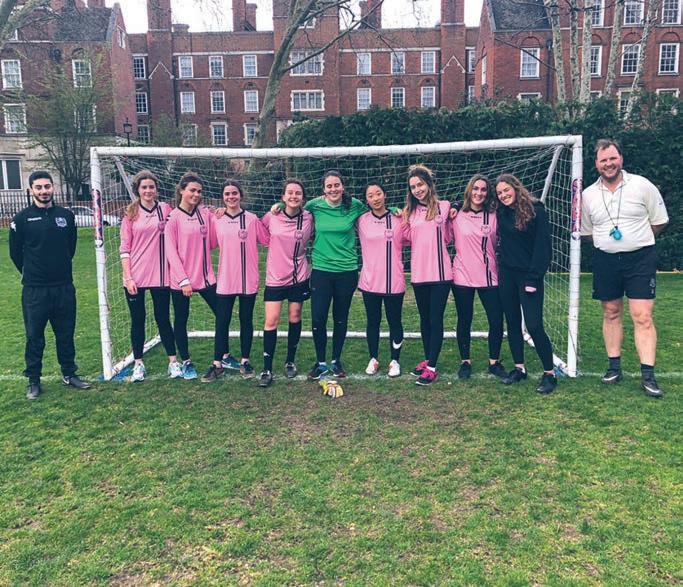
This season of Girls’ Football looked very promising right from the start, as five new talented Sixth Formers joined the squad. Building on these new additions, the team trained twice a week under the supervision of Mr Ireland, who organised the warm ups and drills.
We also welcomed coach Oliver Yazidi at the start of the Lent Term, who was incredible to help us gain confidence around the ball. He managed to assign us each to a position on the pitch that would suit our capacities in order to build a strong formation. Each session was tailored to our needs and aimed to tackle our weak points (taking corners, placing ourselves effectively in the box) for an enhanced performance in matches.
In October, House Football was a highlight for many, as girls from Remove and Sixth Form showed skill and stamina up Fields. Victory this year goes to Hakluyt’s, with a stellar performance from Cassia and Amelia worth noting.
The team trained with the girls from Harris Westminster on Thursdays, which was a great opportunity to make friends and, seeing that their level was already very high, to step out of our comfort zones to improve week after week.
Despite kicking off the season with an underwhelming defeat at Charterhouse, we demonstrated what we were capable of at Forest, where we scored 3 goals. Even though the final score was 3-6, it definitely felt like we’d won the World Cup! Finally, all our efforts paid off after a 1-0 victory against Wellington. Some of us had almost given up hope of ever winning a match – yes, I’m thinking of you, Iona! Kelly was great value all year, despite injury hampering her availability. All the squad really put in the hard yards. Lulu gave us some great comedy moments while being serious about winning.
A big thank you to the girls. So it’s over to the Sixth Form for next year – Ines, you should score loads of goals, so should Katherine, and what a great keeper Amelia is already. Nikki and Nina will protect her well in defence. Thank you to Oli for his good mood and dedication that shaped us into becoming sturdy footballers, as well as Mr Ireland, Mr Kingcombe and Barnsey for believing in our Girls’ Football squad. Best of luck to next year’s team!
Iris Bertrand (PP)Played: 17
Won: 4
Draw: 5
Lost: 9
It was a season of mixed fortunes which ebbed and flowed for Westminster 2nd XI. We faced some very strong sides over the course of the year, played some exciting football and returned 17 points from 17 matches. Which might not seem impressive, but was probably fair in the context of the season as a whole. It’s also worth noting that none of those 17 matches featured fewer than 2 goals…!
The season started positively as we swept aside Ibstock Place 4-1 and talismanic striker Fred Hockey (WW) opened his account for the season with a brace. There were many outstanding team performances throughout the season. Chief among them being our away match against a tremendously well organised Alleyn’s side. The IIs had to stay focused throughout the match and every single one of the boys pulled his weight and worked hard for one another. Although we went behind early, Westminster endeavoured to create chances and eventually Tomás Pfeffer (WW) broke the deadlock with a wonderful strike, after cutting inside, which found the furthest top corner. Another spirited performance took us the distance against Royal Russell in the LIS Cup, but unfortunately poor penalty-taking meant we lost out there. However we capped off the season with a fantastic 5-1 win over RGS Guildford. Late addition Ross Plowman (DD) scored a brace, our partners in crime Fred and Leo Rozanov (DD) both got on the scoresheet along with trusty Oscar Young (BB), who featured heavily for the 1st XI but was always welcome back in the IIs.
I’d like to thank the Remove boys for their fantastic attitude throughout the season, coach Paul Barnes for his words of wisdom, and to extend my best wishes to the Sixth Form boys, who I’m sure will find themselves as part of the 1st XI setup next season.
Dyfan ColesPlayed: 14 Won: 6 Draw: 3 Lost: 5 Goals for: 36 Goals against: 28
Top scorer: Angus Mackay (AHH), 13 goals
The term ‘legendary’ is bandied about all too often nowadays, so I will not use it to describe this year’s Thirds squad. However, they have enjoyed an excellent season and the quality of football produced will be the benchmark for coming years.
The season started in explosive fashion with a 5-1 hammering of City of London, with Emmanuel Amadi (WW) and Will Law (RR) both bagging a brace. The boys were buoyed for their away trip to Charterhouse (a notoriously difficult affair) and with the score at 2-2 with a few minutes remaining, Ross Plowman (DD) stepped up to a free-kick a good 40-45 yards out; the opposition did not anticipate the ball flying into the roof of the net like an Exocet. Unfortunately, we did not hold on for the win, earning a creditable 3-3 draw.
The fixture against Winchester saw an increasing level of defensive discipline and a belief that if we play our way, we will eventually get the breakthrough. Two secondhalf goals and a clean sheet saw off the Wykehamists. A win was again followed with a draw against a technically sound Forest side, the score being 2-2 this time. Felix Matheson (PP) scored his first goal for the Thirds, but missed the opportunity to seal the game at the end with no defenders near him and most of the players on both sides perplexed. Many of them learnt an important rule this day (which developed into a recurring tactic for us): you cannot be offside from a goal kick.
A 7-1 romp against John Lyon was followed by our first defeat of the season, a 1-0 loss against Latymer in a closely fought contest. The remaining matches of the term were tight, including a draw, two narrow wins and two defeats by the odd goal (including a 5-4 thriller against Bradfield). Lent term had fewer fixtures, with many being cancelled due to adverse weather conditions. Losses against the OW Vets and Harrow were harsh (VAR at Harrow next season?), but that did not knock the boys down. We ended the season with an excellent 3-1 win away at a windy Guildford.
There has been a fabulous camaraderie amongst the squad this year and they all got the best out of each other. It is not often a Westminster 3rd XI comes out with more wins than losses and we never stopped fighting in any of the games; all of the boys should be very proud of the season they have had and I wish the leavers all the best in their future footballing pursuits.
Luke LorimerThe Under 16 As were a settled and committed squad this year, who benefited from growing together as a team in recent years in the School. There was a strong core of a team, looking to progress this season and prepare for their years of senior Football at Westminster. The customarily difficult challenge of playing Charterhouse away was a challenge too great for the start of the academic year (lost 0-3), followed swiftly by a challenging home encounter against Winchester (lost 1-2), but these were both close games that signalled the strength of the squad against some of the tougher teams on the Independent Schools’ Circuit. Our confidence was restored with a comprehensive win against John Lyon (12-0; A. Elbishlawi 3, T. Young 3, A. Gardiner 2) and against another London rival in Highgate (4-1). November featured a tough game against Bradfield, amongst the best footballing schools around and we suffered a strong defeat (9-0) but quickly regrouped to draw with Aldenham (4-4), signalling the mental resilience of the team and the capability to deal with these toughest challenges. The term culminated in a famous win against Brentwood School (3-1; A. Elbishlawi 2) and after Christmas a win against Kingston (4-1; J. Parry 2) complemented some tough games against Harrow, UCS and Dulwich. All in all, the team recorded 4 wins, 5 losses and a draw, which would have seen the team placed mid-table in a competitive league structure. There were clear signs of growth across the board and many strengths from the season, which a number of the squad will be able to take into their pre-season tour during the summer, before progressing into senior school football.
Stephen Bailey
Played: 6
Won: 1
Lost: 1
Goals for: 6
In a post-match interview, I remember hearing former Spurs midfielder Glen Hoddle once say, “Ok, so we lost, but good things can come from it, both negative and positive.” At the time, I thought it was a load of gibberish, but after following the U16Bs this season, I think I’m starting to see what he meant. Sure, the score lines haven’t always been in our favour, with losses against teams such as Charterhouse and Winchester. But even in the seemingly bleak moments, there were great moments of success. Maybe it was an amazing reflex save from Alex Orr (DD) or James Porter (HH). A crunching tackle from Captain Riccardo Singh (HH). Confident defending from Taylor Ford (LL), Henry Chadwick (WW) and Daniel Seoane (MM). Or maybe some fantastic runs down the wing from Tom Carver (DD) and Leo Greenlees (DD). Even in defeat we had gutsy performances from Dariush Tomlinson (PP) and the whirlwind that is Angus Bloch (LL). Leading the way up front we had a sure-footed Daniel Ekaette (BB) and Ibrahim Ahmad (GG). There was talent throughout the pitch, and although we may have lost matches, the huge improvement the team was showing made us feel like winners. So, like Glenn, I can positively say that it was a good season.
Josh Moore
Last year’s U15 report likened that group to Gareth Southgate’s vibrant young England squad and this begs the question: what about this lot? Perhaps we were more reminiscent of Uruguay: functional, gritty and too reliant on a talismanic striker. Results were poor but morale remained worryingly high throughout.
The first match of the season was a tough draw in the cup, away at strong favourites Bradfield. With the match finely poised at 1-1 going into half time thanks to some fine work by midfield maestro Luke Grbesa (DD), an upset looked to be on the cards. Unfortunately, the half-time team talk has to go down as one of the least effective in history as the side went on to concede eight unanswered goals. In spite of this early setback, form picked up and, with new signing Freddie Flowers (BB) frightening the life out of opposition defences with his pace and work rate, creditable draws were picked up against both Forest and Winchester. A run of defeats followed, valuable players ‘jumped ship’ and a difficult few months ensued. One remaining highlight was a stunning comeback against a still-unbeaten Bradfield, masterminded by coach (and referee) Cecil Nyako, who has our thanks for another season of infectious enthusiasm, some memorable (his own words) goals and for some decisions that made us very thankful for the lack of VAR at Vincent Square.
Special mentions must go to Mr Bottomley, for being relentlessly positive and patient as a coach in his first year at Westminster, and to Mr Allchin, for his support and typical commitment to the cause.
It was a season to forget, but how can we?
Jamie Brown
Undoubtedly, this team possesses great ability and potential. At their best, they were a match for anyone they played on a tough circuit. However, at their dysfunctional worst, they were capable of imploding against anyone. Moving forwards, the main lesson to learn is to get everyone pulling in the same direction.
That said, a record of more wins and draws than losses is a creditable one, given the quality of opposition. There were highlights, such as wins against Ibstock Place, Brentwood and City of London, but, lowlights too (e.g. the efforts against Bradfield 14Bs and Latymer Upper).
In goal, Miles Hitchcock (BB) was prone to the occasional gaffe but improved throughout. Kaled Haram (BB) and Melchior Walewski (AAH) were ever-presents in the back three, both solid and reliable, and Chris Yang (BB) joined them, displaying superb athleticism and commitment.
Out wide, Ivan Solomakhin (LL) and Sam Lui (RR) were perpetual motion machines, never giving less than everything. In the centre, Alexander O’Keefe (GG) revelled in the CDM role with a huge appetite for tackling, whilst Captain Alexander Feldman (WW) showed poise and skill, having moved forward from the defence. At CAM, Nat Lansing (PP) overcame initial injury to make the role his own whilst Sachin Lavender (AAH), in the mood, could excel in either midfield or up front.
Leading goalscorer was Alec Brooke (LL) (13 goals) with a sweet left foot and no fear of shooting, and Joaquin Segal (AAH) was a “fox in the box” alongside him, promoted from the B team.
I predict that this group will get stronger as they progress up the School, as long as they make the whole something greater than just the sum of its individual parts. Lastly, great thanks must go to U14A coach, Mike McEntegart for his unstinting expertise, enthusiasm and commitment throughout.
James KershenThe under 14Bs enjoyed a fantastic start to the season with a run of six consecutive wins. The performances included some eye-pleasing, free-flowing football as well as a determination to dig in and play as a team when required.
Zack Romeo (RR) ended the season with 11 goals and the golden boot including a hat trick against KES Witley while Joaquin Segal (AAH)’s poacher’s instinct saw him score 8 early-season goals and a promotion to the A team.
Unusually we were spoiled for choice when it came to goalkeepers, with both Wylie Brunman (HH) and Billy Jai Campbell (BB) showing their worth between the posts. Zack Lui (HH) and Francesco Enserro (WW) worked tirelessly as wingbacks with Mattia Bertone (GG) and Ralph Renfrew (PP) putting in crunching tackles in the midfield. Diego Danese (WW) showed touches of class with stunning strikes from outside the box and some cultured free kicks. Remy Rushbrooke (PP), Amirsam Mohri (MM) and Amol Chaun (MM) provided the heart of the defence and there were also notable performances throughout the season from Ryaan Sultan (DD), Yixuan Gao (LL) and Musashi Schad (MM).
This was an exciting first season for the U14Bs, typified by a strong team spirit and a willingness to work hard. It will be interesting to see how they develop throughout their time at Westminster.
Sirio Quintavalle
This was a transition year for Golf at Westminster, as we settled into our beautiful new home at Dulwich & Sydenham Hill, where coaches Adam and Ben have taken over the tuition during Station. The competitive season started with the annual West Sussex Schools’ Invitational, and a very good result for Westminster, coming 6th out of 14 schools in the handicap competition. Narrow losses to Cranleigh (2-1) and St Paul’s (2-1) meant we did not get past the first round in the HMC or ISGA cup, but nevertheless there were some excellent efforts against strong opposition. The Old Westminsters needed help from the Master in Charge to win their fixture against the School, and the Merchant Taylors fixture ended with Westminster having the higher average stableford score. There were notable efforts through the year from old hands Angus Mackay (AHH), Zach Brandman (DD), Rishi Sharma (LL) and captain Tanishq Kumar (PP), plus debuts from Claudia Prettejohn (HH), Junaid Ahmed (GG), Tej Shah (PP) and the prodigious young talent of Harry Sweeting (RR). House Golf was won by Ashburnham in the form of Angus, and many thanks to Tanishq for his excellent captaincy as he hands over the reins to Rishi for next year. Fore!
Charlie Ullathorne
What more can be said about the triumph that is Westminster Hockey. As Mr Sugden once said, “Westminster Hockey is the best Station.” Over this past year, our 1st XI have developed into a formidable team, so much so that other 1st XIs, no doubt from fear, sent their 4th XIs to play us instead (Eton, I’m looking at you). Players like Taran Jawa (BB) and Neer Singhal (AHH) have led from the front, their hockey talent shining through the poor weather conditions we often faced. This is not to neglect the rock at the back, our goalkeeper Akshey Rajani (AHH), who, coupled to Jay Chitnavis (PP) and Sparsh Sharma (WW) made a (somewhat) impregnable defence. We’ve also been bolstered by the strength of a few players from outside of the Station, contributing greatly to every match they’ve played in (William Hardman (LL) and Ewan Hincks (PP), this is your bit of the paragraph). The core strength and team spirit of the 1st XI has, as ever, been world-class, with a drive that only a Boeing 747 could scoff at. Learning from the best, promising youngsters in the form of Morgan Bjorklund (DD) and Magnus Cameron (DD) rose above the rest, playing 1st team hockey in only Lower Shell. While we faced losses at Dulwich and UCS, we showed our mettle in resounding victories against Highgate, Eton, the Old Westminsters and, most significantly, the Common Room. This saw Mr Robinson’s glorious return to hockey, to show everyone else on the pitch just how the game should be played. A fixture at Merchant Taylors was sadly cancelled but no doubt it would have been a very one-sided match, so no loss here. Finally the Sixth Form must be addressed. They must take on the mantle of Westminster Hockey, but with Devan Wasan and Tristan Best at the helm, I’m in no doubt of the quality of hockey at Westminster for at least another year to come.

With the largest number of new 5th Form Hockey players in recent living memory, this year has had numerous players with a wide range of skill sets. Even with the departure of giants such as Devan Wasan (HH), Tristan Best (BB) and Oliver Anderson-Shah (AHH), the Junior Hockey team still strove for greatness. Westminster U16 Hockey Team 2018/2019 saw matches against teams including Dulwich, UCS, John Lyon and Eton. Even with 3 out of 4 games as unfortunate losses, the strength of the U16 team finally came together as one.
Ben Andreyev (WW) and Buzzy Martin (BB) together held off numerous attacks from each opponent, as Alexander Koubaa (DD) successfully picked off every goal-hanging wing he could. Even when some of the opponents managed to pierce through this iron fortress, Harry Allen (AHH) – the star goalie of the U16 this year – managed to make some key saves, keeping the scores under the double digits. As usual, the dynamic duo, Morgan Bjorklund (DD) and Magnus Cameron (DD), kept up the finesse of the midfield. Joined by Cem Muminoglu (RR) and Nicolas Rackow (PP), many extraordinary counter-plays were seen, along with some tactful skills from the rising star Aidan Abraham (AHH). Last but not least, the John Lyon victory (2-0) showed us the greatest performance of the Junior Hockey team. After a cheeky nutmeg from Captain Rupert Yeung (QS) to score the first goal, it was only the strength and precision of Magnus Cameron (DD) which gave us the 2nd goal.
Among the good-humoured Double-L warm-ups, as well as the motivational and inspirational team talks from Miss Wagstaff, it is important not to forget the effort everyone has put into making the U16 team what it has become.
I am confident that I will leave the team in good hands as I join Sixth Form next year!
Rupert Yeung (QS)

It was the moment everyone’s term had been leading up to… At 3:00 on a crisp Thursday afternoon, ten well-rested men and Kiran Weston (LL) stepped out onto the pitch and started their campaign for glory against the teachers.
The Common Room team, on paper, looked like they had a chance to win, but having lost the last 34 straight games that seemed highly unlikely. Moreover they didn’t count on the absolute offensive force that was Neer Singhal (AHH) who scored 4 of the 1XI’s goals. The match was a physical, but well-spirited affair. Mr Brown was a positive production externality on the pitch, while Dr Kov seemed to have a higher cadence than Travis Scott on the weekend. Ms Joyce was electric on the ball while Mr. “Kinky” Kingcombe showed that footballers can play other sports. Special pupil mentions go to Captain Kiran Weston (LL), Taran Jawa (BB), Akshey Rajani (AHH), Sparsh Sharma (WW), Neer Singhal (AHH), Raam Songara (HH), Jay Chitnavis (PP), Vigna Nanthakumar (MM), Aryan Mishra (BB), William Watson (AHH), Raman Sangera (GG) and Ethan Madsen (QS) who are all leaving at the end of this year after putting in a huge five-year shift for Westminster hockey.
However, the real hero of this match was Mr Robinson – he is retiring this year after a glorious 31 years at the School and his talent on the hockey pitch is unmatched. As one of only a handful of people to have ever received Hockey Blues from both Oxford and Cambridge, he is an inspiration and truly deserved the standing ovation he received when the match finished.
The match ended 5-0 to the pupils in a thoroughly enjoyable affair and we are already looking forward to the next 1XI vs the Common Room match next year.
William Hardman (LL)
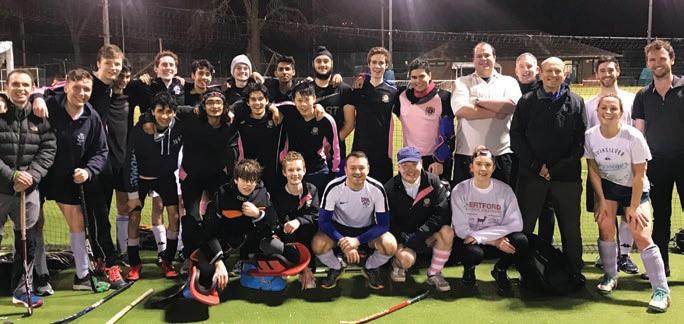
The range of different activities available for Station has always been impressive, and for the last few years, Hula Hooping Station has been baffling pupils and staff – and many people taking a walk around Vincent Square –throughout the summer term. A group of committed “Hoopers” have been working on their skills every week, to the sound of some classic pop, and there have been some amazing skills learned. While the odd hoop has been thrown in totally the wrong direction, causing much hilarity, the pupils can now hoop like pros. One hoop, two hoops, hoops on the arms and legs, the pupils give it all a go, and both the instructor and I have been very impressed!
Helena Barton
Another fantastic year for Westminster judo! The success demonstrated by the competition at High Wycombe where we (3 in total) gained three medals (2 golds and a bronze) and defended our trophy as ‘best small team’ undoubtedly shows Westminster’s strength in sports and not only in academics. The leaving of the Removes did, however, have us worrying but we welcomed many new members from the new Sixth Form and the Lower School. It is undeniably amazing to see so many take up a new sport, with special mention to Niccolo Bargioni (AHH) who only started judo recently but progressed so rapidly that he was technically capable enough to take part in the competition. Taught by Sensei Larry, all got to grips with the basics and a few ‘waza’ (technique), challenging themselves to a bit of ‘randori’ (sparring) and, of course, unforgettably familiarising themselves with the understatement of the word ‘warm-up’.
Steven Curran
Backhand and forehand. Drift. Weight. End-to-end. Woods. Bias. All familiar sporting terms (though hopefully the final word in the list is not heard too often). However, only in the ancient sport of Lawn Bowls do they all feature at once. And whilst most will associate this skilful and deceptively competitive activity with Sir Francis Drake (an appropriate name to mention in the context of this magazine and the legendary College Hall associations) or the grandfatherly pipe-smoking figure of David Bryant, this is a sport that is now growing amongst the younger generation. The current world champion of the men’s outdoor game is a sprightly 33 year-old whilst the finest exponent of the ladies indoor game is a mere 23 years old, and first won the title aged 18. Seniority, though, has traditionally favoured Westminster’s champions of the sport, now in its fourth year and continuing to be warmly hosted by Winnington Bowls club in its idyllic setting alongside the Thames in Fulham. The winner of the 2019 Westminster School Lawn Bowls competition was James Atkins (HH) who defeated Jonathan Watts (PP) in a tense, closelyfought final. 2018 winner, Jay Chitnavis (PP) finished third, so after five years, a successful title defence remains elusive. The trophy was presented by Winnington Bowls Club president Bill Widdowfield.
Kevin WalshMusical Theatre Dance Station is a joyous way to spend every Tuesday afternoon. In the first hour, we do a warm-up and then some technique work to improve our dancing overall. We incorporate different elements of dance and strength work into this hour, ranging from tap to ballet to an abs workout set to Micheal Bublé, and everyone is encouraged to sing along. This helps improve our dancing as very week we get stronger and can tackle more complex dances. This hour is also good fun as Ellen, our dance teacher, encourages us all the way through and has a brilliant playlist to accompany every move and stage of our warm-up.
The next hour is spent first recapping and improving on other routines we have learnt, and then every week we also learn a new routine. We have covered a vast range of musicals in two terms, with dances from Broadway classics such as Guys and Dolls and West Side Story, to more modern shows like La La Land. We have even learnt some of the history of dance, as we learnt dances from the Regency period that appeared in Pride and Prejudice such as Mr Beveridge’s Maggot and the Virginia Reel.
More importantly, however, Musical Theatre Dance Station has become a place for people who share a passion for Musical Theatre to come together and actually enjoy exercising: I can testify to this Station being quite a workout! The magic of this Station can be traced to our wonderful teacher Ellen, who encourages us and pushes us to be better dancers. She creates an atmosphere so positive and fun that you can’t help but enjoy yourself.
Hosanna Boulter (RR)
It has been another hugely successful year for the netball team. With over 30 girls again signed up to the sport, there is always competition for places in the 1st and 2nd teams. The teams won more matches than they lost or drew this year, a feat which hasn’t been accomplished in a number of years. Some particular highlights include a win for both the 1st and 2nd teams early in the season against Francis Holland, and the double win over City of London School for Girls, who consistently put out a very strong team. The 1st won matches both home and away, demonstrating great consistency over the year. This was also the first year we attended the Surrey U19 B competition at St Catherine’s in Bramley. Despite a number of downpours throughout the day, the team made the semi-final, and look forward to returning next year to better their achievements. Notable mentions must go to the Captain Molly Martin (WW), whose unflappable shooting skills often secured the team wins under some very tight conditions. Vice-Captain Louise Lacour (BB) would give the Duracell bunny a run for its money, her endless amounts of energy meant she was often the only player left on the court still bouncing around when many were fading in the last quarter. Sofia Morales (LL) and Shreya Rajani (WW) have displayed excellent flexibility being able to step into any position at short notice to ensure consistency across the defence and attack. Pandora Mackenzie (RR), who was new to the netball team this year, brought great determination and consistency to the team. India Barrons (BB) and Nadia Cooper (WW) have always shown great dedication to the team as a whole by both running the 2nd team and playing for the 1sts in key matches. Next year’s Remove are a very strong group, and with the combined efforts of Heidi the coach and Angus the fitness coach, the team are looking to better their achievements from this year.
Julia HughesWestminster climbing is going from strength to strength. It’s no longer the Station for the less sporty, with both the seniors and juniors pushing themselves to master ever-harder climbs. We participated once again in the Independent Schools’ Climbing Competition and, although we didn’t place, we acquitted ourselves well and had a fun and tiring day in Swindon. We finally beat Eton in our annual grudge match with the whole team excelling, but biggest thanks go to Arthur Summers (GG) for that particular success. The main things I will take away from my five years of climbing Station are the camaraderie, team spirit and inclusiveness of everybody taking part, all of which make climbing, in my opinion, the best Station ever. Big thanks as always to all the teachers and staff who supported us this year, including Mr Tattersall, who had to endure a diverse and somewhat loud range of musical accompaniments to our climbs. Onwards and upwards, team!
Felix Abrahams (AAH)


2019 has been a year of change for shooting, but dedication and enthusiasm remain, with two Half and seven Third Pinks awarded at the end of the season. Sadly, Andy Brooker, who was our coach for just over three years, left Westminster at Christmas, though not before steering the A and B teams to second place in their respective divisions of the BSSRA Autumn League. In side-by-side matches, we had very narrow losses against University of London and Oxford University Rifle Clubs, though with the arrival of Tom Hendriks, the new coach from Christmas, we enjoyed a resounding success against Imperial College. In House Shooting, the Busby’s team (consisting of this year’s Captain and Vice-Captain of Shooting, Emerald Wei and Chris Ye) beat Hakluyt’s in a close Final to win the House Cup.
Emerald Wei (BB) & Chris Ye (BB)Westminster swimming goes from strength to strength. House Swimming was won by Milne’s but the top story was the domination of the school records table by Alex Song (CC) and Herbie Bingham (PP), the latter breaking the longstanding 100m freestyle record. Song also capped a fine career in Westminster swimming with his winning time in the new version of the underwater dash. (Adni (BB)’s 67m record from 2017 will probably last forever.)
The senior team of four (Song (CC), Bacon (MM), Seoane (MM) and Bingham (PP)) also put in another terrific performance against Tonbridge, winning the interschool match for the third time in a row. We won all but one relay, following a rather tortoise and hare moment from Alex Song who wasn’t expecting to lose his 20m lead on the last leg of the 4 x 50m breaststroke relay when a junior international swimmer dived in, in lane 6, and pipped him to the post.
We took a boys’ and girls’ team to the Olympic swimming pool at Stratford to compete in the Otter Bath cup relay competition in March. This is THE Swimming competition for independent schools across the country and 80 schools were represented. Although the girls put in a valiant performance, the highlight was the success of the boys’ team, who were 4th reserve for their category final, our best ever performance.
In February, Westminster dominated the competition, picking up six golds and a silver in a swimming competition against local schools. The highlight was our gold in the senior boys’ freestyle relay, meaning that Westminster maintains its position as the top dog of team swimming for boys in the (very) local area.
Helen Prentice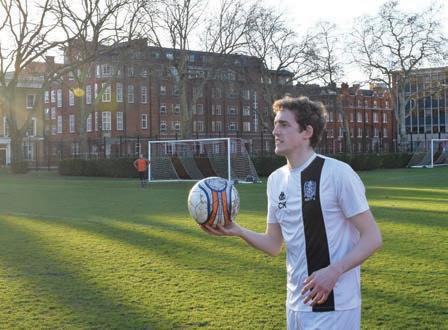
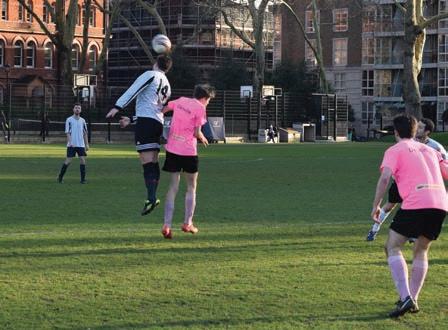
Tennis 2018-19 was rounded off with a great performance by both the boys’ 1st IV and the girls’ 1st pair in the ISTA Championships. The boys reached the semi-finals of the Clark Trophy and the girls were only narrowly beaten after making it through to the knockout stages. Through the summer the U15 VI had an unbeaten record, including away wins at Eton, Merchant Taylors’ and Charterhouse. The girls’ team had a good season, with a number of new fixtures including Charterhouse and South Hampstead High School. The end of Election Term also saw a new fixture against Alleyn’s, which pitted the team’s incoming boys’ vice-captain, Oliver Meredith (RR), against his twin brother (Westminster won). In House Tennis, Hakluyt’s and Busby’s came out on top in the girls’ and boys’ senior competitions, respectively. Ashburnham beat Liddell’s in the finals of Junior House Tennis in what was an incredibly strong field.
Ezra Lutton

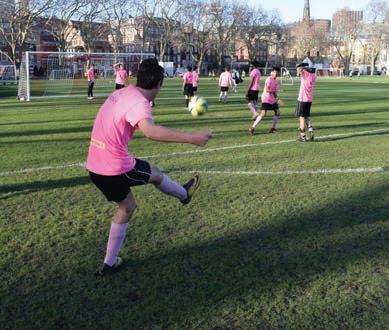
The squad regrouped for the new season bolstered by the incoming Sixth Formers, four of whom had represented Great Britain in the annual match against France before the summer holidays.
It was these young athletes who laid down the initial markers for the season, with Constantine Polychronopoulos (WW) winning Wallingford Sculls J17 Singles. The squad continued their early-season training camps with some impressive international results.
Hal Barrow (RR) and Gaspard Baroudel (RR) took 2nd and 4th in U19 singles at the last iteration of the 9km-long Armada Cup in Switzerland. Meanwhile, the J16s travelled to Hong Kong and took an outstanding 3rd, racing against adult competition.
Returning to HQ at Putney, the Boat Club faced the first opportunity to test speed against domestic opponents with the Fours Head of the River.
Westminster dominated Championship Junior Coxless Fours, placing 1st , 3rd and 4th, with the winning crew consisting of Gaspard Baroudel, Constantine Holle (GG), Angus Stevenson (HH) and Hector Crosbie (RR). Two members of that winning crew, Hector Crosbie and Angus Stevenson, continued their form to win both open and junior pairs at Kingston Head. The focus remained on the pairs and Great British U18 Long Distance Trials, the victory claimed by Adam Von Bismark (DD) and Arnav Sawhney (WW).
Through the winter, the attention was on snow not water as training in the crosscountry skiing centre of Craftsbury allowed the boys to build their
endurance. Gaspard came out on top in the end-of-camp 5km race, beating Constantine and Angus into second and third respectively. The Boat Club was working impressively as a unit, shown by Quintin Head, where Westminster won the Victor Ludorum Trophy for the fastest combined J15, J16 and J18 times. The second eight continued its preparation for Schools Head by winning a fixture against an Imperial College crew containing Old Westminsters Ed Bentley and Jonny Edwards 2-1, while elsewhere international trials regained attention. The two Westminster pairs of Angus and James, and Arnav and Adam placed 6th and 9 th on both days at the following round of British trials, while Emma Kohlmayer (DD) received an invitation to trial for the Slovakian junior world team after coming 3rd in the Slovakian indoor rowing championships.
At Schools Head the first VIII came 5th and the second VIII 3rd, while both the first and second J16 crews claimed impressive 2nd -place finishes. Four days after the race saw the reintroduction of a historic fixture on the rowing calendar, the Eton-Westminster boat race. Although Eton emerged victorious, the first VIII displayed considerable resolve to shorten the distance from the Schools Head margin.
The second training camp of the season took place in Ghent, which offered an opportunity to race at the Ghent

International Regatta. The Boat Club achieved an impressive medal total, with standout results including victories in U23 and men’s open fours and silver medals in J18 and J16 eights. After training camp was finished, four rowers left for Munich to compete as part of the Great British junior team. Angus, Adam and Arnav won gold on the first day in the junior eights and silver in the junior fours, while on the second day James won silver in the eight.
May saw the crews arrive at Eton Dorney for National Schools Regatta. Westminster equalled their second most successful National Schools ever, winning three golds (and setting course records in the process) and one silver. The J16s reversed their defeat at Schools Head to achieve a welcome gold, which had eluded them thus far, and then proceeded to lay down a statement in coxless fours, qualifying both crews for the final and winning with open water. Meanwhile, the School coxed four kept the spirit of a fractured second eight alive and an all J17 crew produced a performance that showed the talent returning for next year. Attention now turns to Henley regatta and international trials, with a revised and youthful first eight suggesting that the speed exists for the Boat Club to build on for the 2019/2020 season.
Hal Barrow (RR)
National Schools Regatta
(Eton Dorney)
J16 Coxless Fours –
1st : Westminster A, 6th: Westminster B
Champs Coxless Fours –
2nd: Westminster A, 10 th: Westminster B
Fours Cup – 1st
J16 Champs Eights – 1st
J16 2nd Eights – 4th
Girls Single Sculls – 8 th: E. Kohlmayer
Champs Eights – 9 th
J15 Champs Eights – 13th
Champs Quads – 18 th
J14 Octuple 1st crews – 15th
J14 Octuple 2nd crews – 17th
Putney Town Regatta
E. Kohlmayer won Women’s Open Singles and Women’s J17 Singles
J15 Eights – 1st
J14 Octos – 2nd: 2nd Eight
Ghent Centenary Regatta (Belgium)
Junior Eights – 1st : Westminster 1st
Men’s U23 Eights – 1st : Westminster 1st
J14 Singles – 6th: M. Peel
Junior Girls Singles – 3rd: E. Kohlmayer
U23 Girls Singles – 2nd: E. Kohlmayer
Munich International Regatta
Junior Fours – 2nd: GBR
Junior Eights – 2nd: GBR (incl. J. Stevenson)
Wallingford Regatta
J16 Coxed Fours – 1st
J16 Eights – 2nd
Girls J18 Singles – 2nd: E. Kohlmayer
Chiswick Regatta
J15 Eights – 1st
Junior Quads – 2nd
Munich International
Junior Regatta
Junior Eights – 1st : GBR
(including A. Stevenson, A. Sawhney and A. von Bismarck)
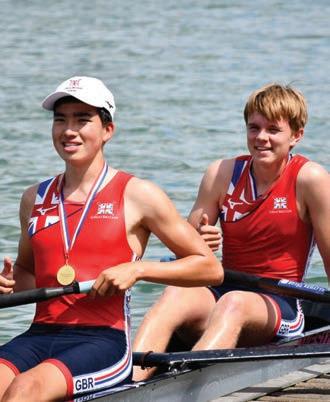
Ghent International Regatta (Belgium)
Mens Open Fours – 1st
Mens Open Eights – 2nd
J18 Coxed Fours – 2nd: Westminster 3rd
J18 Eights – 2nd: Westminster J16s
J18 Coxless Fours – 2nd: Westminster J16s
U23 Fours – 1st
J18 Coxed Fours – 2nd: Westminster 3rd
J16 Eights – 2nd
J16 2nd Eights – 3rd: Westminster J15s
J18 Pairs – 3rd: Westminster J16s
Westminster 1st Eight v Eton 1st Eight (Putney) Lost by 7 seconds
National Junior Indoor Rowing Championships (Copperbox Arena)
Year 12 Girls – 2nd: E. Kohlmayer
Schools’ Head of the River Race (Putney)
J16 Champ Eights – 2nd
J16 2nd Eights – 2nd
J18 2nd Eights – 5th
J18 Champ Eights – 7th
J15 Champ Eights – 7th
Victor Ludorum Trophy – 4th
Hammersmith Head
J16 1st Eights – 1st
J16 2nd Eights – 1st
J18 1st Eights – 5th
J18 2nd Eights – 3rd
J18 Eights – 6th
J15 Eights – 15th
GB Junior Trials (Boston, Lincs)
6th: J. Stevenson and A. Sawhney, 9 th: A. Stevenson and A. von Bismarck
2nd Eight v Imperial College 2nd Eight Won 2-1
Slovakian Indoor Open Rowing Championships
Junior Girls – 3rd: E. Kohlmayer (top Slovakian). Kohlmayer invited to trial for Slovakian Junior World Championships team.
J15 Eights Race
(St. Paul’s – Barn Elms)
1st – Westminster, 2nd – St. Paul’s, 3rd – Latymer Upper, 4th – KCS Wimbledon

Quintin Head
Westminster won the Quintin Hogg
Victor Ludorum Trophy for best combined J15, J16 and J18 times
J16 Eights – 1st
2nd Eights – 2nd
J16 2nd Eights – 2nd
1st Eights – 3rd
J15 Eights – 3rd
J14 Winter Sprints (Putney)
Final – ‘Julian’ won by one length
Wallingford Regatta
J18 Eights – 4th: 2nd Eight
J16 Eights –
2nd: Westminster X, 3rd: Westminster Y
J15 Eights – 3rd
Teddington Head
Westminster came 1st in, Junior Eights, Junior and Open Coxed Fours and J15 Eights
J16 Pairs – 2nd: O. Ellis and W. Fulford
Junior Girls Singles – 3rd: E. Kohlmayer
GB J18 Long Distance Trials
A. Sawhney and A. Von Bismarck fastest in Pairs
G. Baroudel 41st in Singles
Kingston Head
H. Crosbie and A. Stevenson
won both Open and J18 Pairs
3rd: H. Barrow and T. Wagstaff
4th: O. Haddad and F. Bannister
5th A. Sawhney and A. Von Bismarck
Fours Head of the River
Championship Junior Coxless Fours –
1st , 3rd and 4th
Challenge U18 Coxed Fours –
3rd and 9 th: J16s
Hong Kong Championships
Open Eights Final – 3rd: J16
Armada Cup (Berne, Switzerland)
U19 Singles –
2nd: H. Barrow, 4th: G. Baroudel
J17 Singles – 4th: J. Stevenson,
5th: C. Polychronopoulos, 7th: A. Sawhney, 8 th: F. Bannister, 10 th: A. Stevenson
Wallingford Sculls
J17 Singles –
Equal 1st : C. Polychronopoulos, 6th: A. Stevenson, 9 th: J. Stevenson, 11th: A. Sawhney, 12th: N. Raghavan
J18 Singles –
14th: A. Davison, 20 th H. Barrow
J18 Doubles –
5th: H. Broxham and K. Grewal
”Where are you from?”
“What subject are you studying?”
“What halls of residence are you staying in?”
As some are about to go off and find out, these are the three questions which begin almost every interaction at university. Or, at least, it was for me, until one enterprising pupil suggested they mix it up, by asking three different questions. Here we had a potentially radical thinker who led with the maverick question: “what school did you go to?” Inevitably, this invited the same question to be asked of them, which is, of course, what had been intended all along, and they were very, very pleased to name drop their school. We don’t need to know which school they went to, suffice it to say that we know it wasn’t and could never be, we’d like to believe, Westminster. Not that we aren’t all pleased and proud of our association with this unique institution – far from it. Rather, it is due to a quality shared by pupils, and even perhaps staff, that I think I will miss the most when I leave at the end of this year.
And that is the importance of NOT being earnest.
Whether it’s ironically singing Jerusalem in Latin Prayers, or using a super soaker on the 5th Form while shouting, “go to lessons, it’s nearly 9 o’clock”, there is a staggering commitment to retaining a sense of the ridiculous, and being ironically aloof in almost all areas of school life. Never until I came to Westminster had I seen sport played with such irony, and yet hockey isn’t played any other way: from arriving by taking
a black cab, wearing dressing gowns, or doing the ”double LL” warm up – made up by a former pupil – but delivered in the manner of Mr Edlin. The ethos, of course, extends to school trips, and the wearing of giant, fluffy pink onesies (it was nice to see them on display yesterday). And to academic work too – whether it’s studying Shakespeare through the medium of his references to sauce (I quote, “does the word saucy” count?)… or in response to Browning’s Meeting at Night, writing in the style of Borat, a very nice essay.
The contemporary Italian philosopher, Giorgio Agamben, would find this all very reassuring, as he fears that ”modern man no longer knows how to play”. For him our ability to, as he terms it, be ”profane” reminds us of what being human is all about: something that in the midst of layers of legalese, policy, bureaucracy and red tape we are in danger of forgetting. Agamben’s intention is to return life to its profane context: to profane something, in the special use he ascribes to that activity, is not to defile it but instead to liberate it. Which is something perhaps we already know – that just because everything is laced in irony, it is not that nothing meaningful is being said. The Old Westminster and author, Edward St Aubyn, captures it best in describing his main character, based on himself, as being ”desperate to escape the self-subversion of irony and say what he really meant, but really meaning what only irony could convey”.

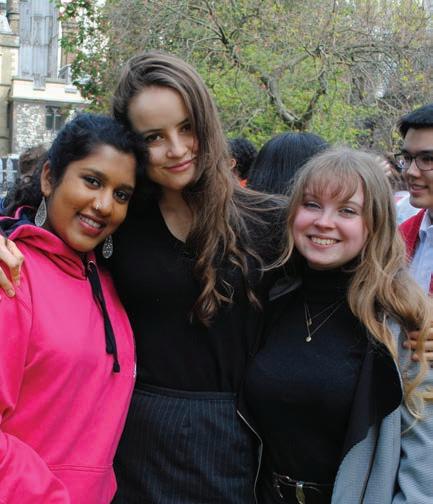

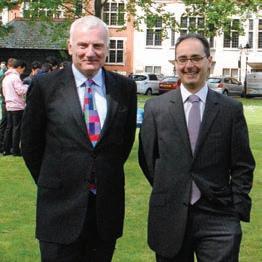
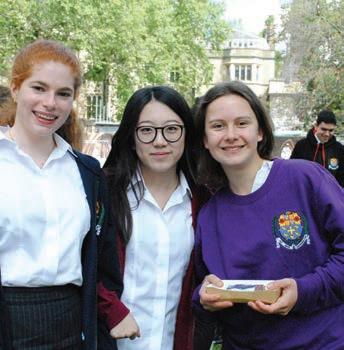
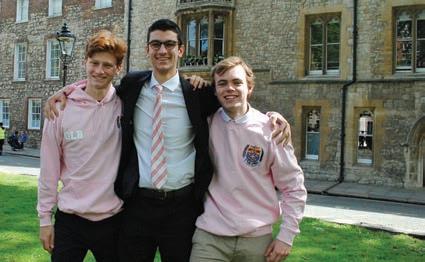


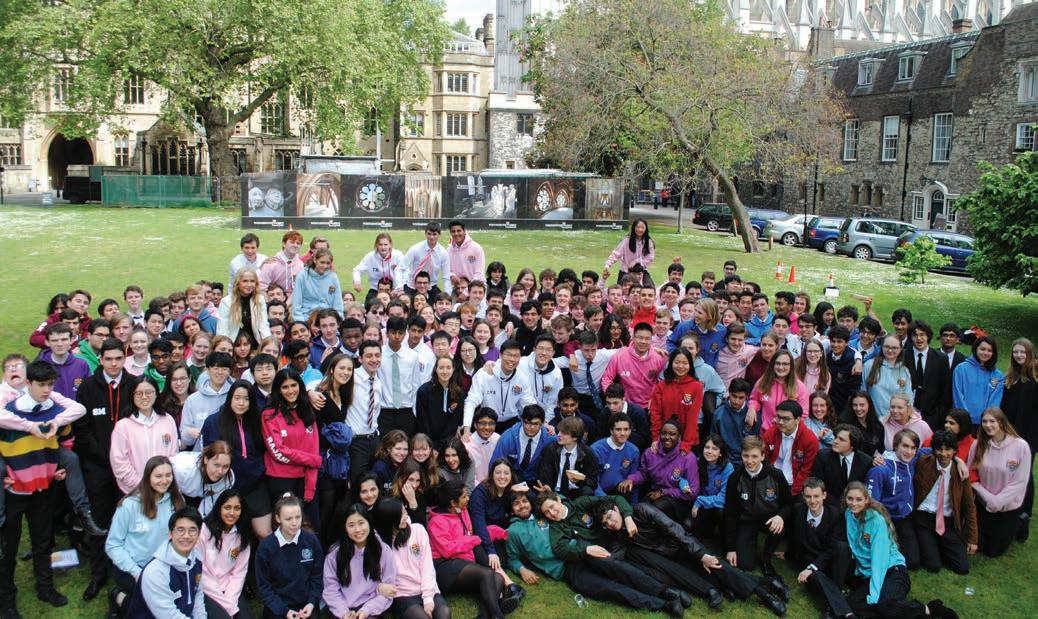

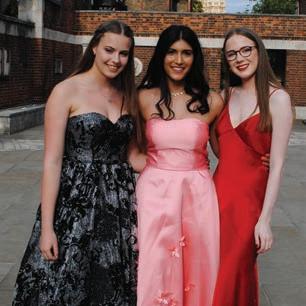
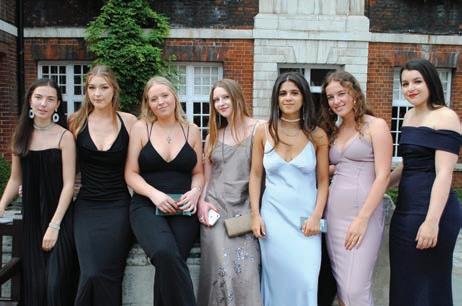

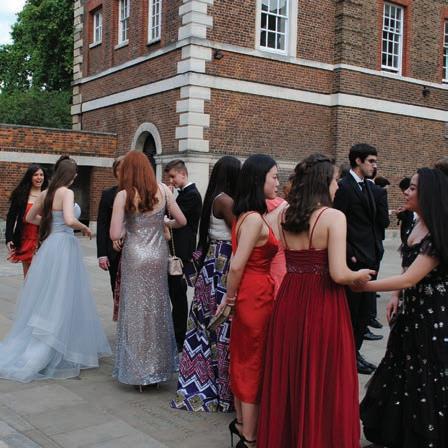
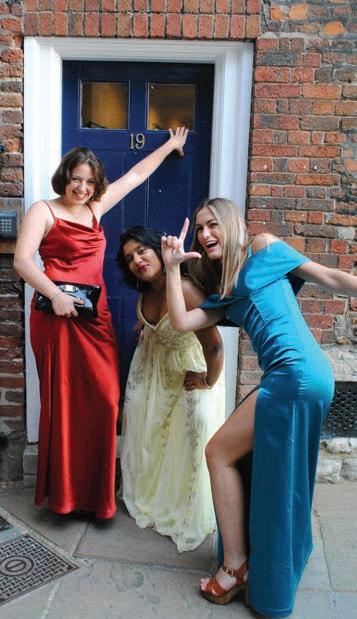


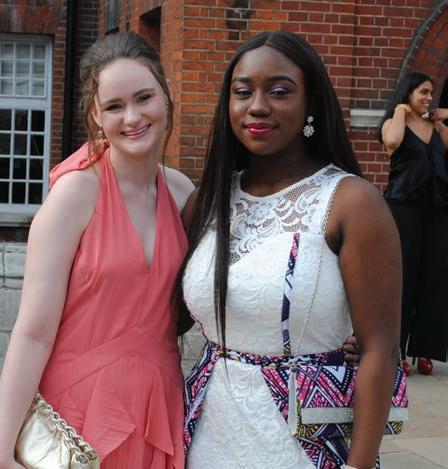





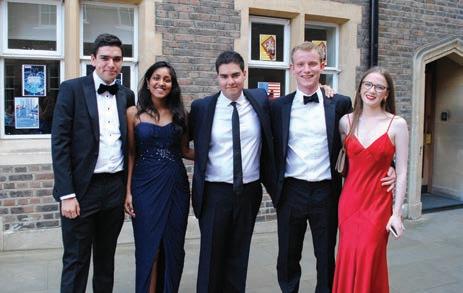

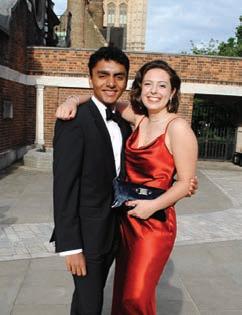
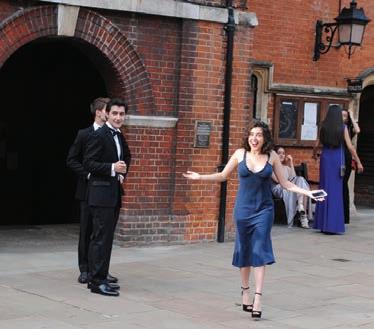
Fifteen minutes in and you can already tell that it’s not going to be a quiet day. You’ve got a pounding headache and all you want is a glass of orange juice, some pancakes and an aspirin, but between the Circle Line and Dean’s Yard what you get is bilingual instructions from the Jehovah’s Witnesses, and a leaflet on Jesus’ love for man – “God bless you my son, website on the back”. The bagpiper – almost in tune, but not quite –would be deafening, but the traffic is louder: black cabs with pinstriped passengers (including Jacob Rees-Mogg, clutching a Costa coffee cup); Harry Potter buses full of tourists, gawping like goldfish; a grotesque sculpted chimera of pro-Brexit politicians, blaring “It’s not over ‘til it’s over” from the back of a flatbed lorry. By the Palace of Westminster’s Carriage Gates, homemade signs variously proclaim “Hoot to believe in Britain”, “I love EU”, “Ban all single-use plastics”, and “Everybody will fall unconscious and die except those God wants to keep” as Union Jacks and EU flags flutter competitively in the wind above. It is a raucous celebration, a carnival of the damned. In front of Westminster Abbey, flocks
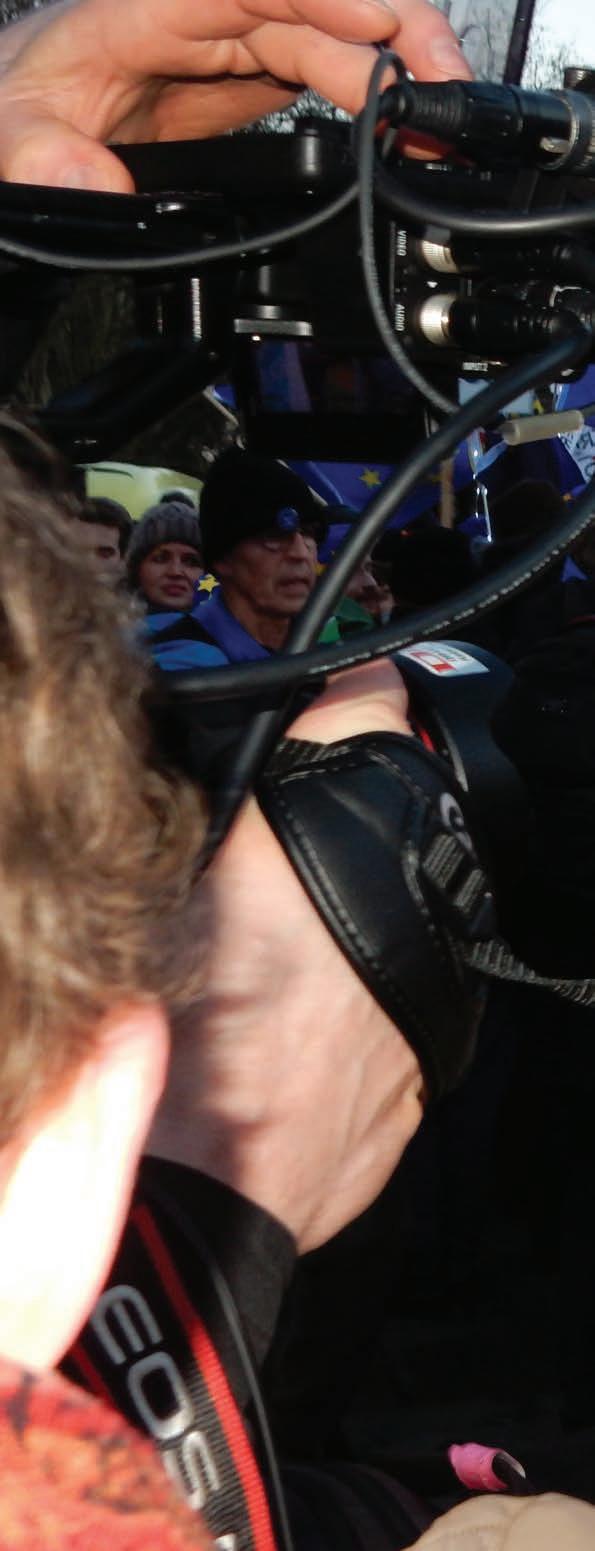



of tourists – a jumble of selfie sticks and plastic ponchos – try to capture the best possible angle. “Is it mediaeval?” one American woman asks. “No, Victorian,” her husband authoritatively replies. A nearby violinist gives a halting rendition of “The Star-Spangled Banner” to enthusiastic cheers. The School is not apart from the political ferment around it. “Bollocks to Brexit” stickers are sported proudly, but the Beadles refuse entry to a pupil with a “Leave Means Leave” placard. Up School, the intermingling sounds of chants, drums, and klaxons is a constant presence, matched by the slow pacing of the exam invigilators. In accordance with the principle of loyal dissent, Brexit debates become a regular occurence: one pits a leave supporter clad in a Union Jack onesie
against a self-confessed representative of the “snowflake generation”. Back in the outside world, “Stop Brexit Now” signs jostle with “No deal? No problem”. Perhaps it all went wrong when the scaffolding went up on Big Ben two years ago: without the structure of the hourly chimes, reality has started to misbehave. You study the placid face of a middle-aged protestor. She looks like she could be your aunt but 15 seconds later her face is contorted into an inhuman sneer: “Traitor! Traitor! Traitor!” she screams as a ministerial car pulls in. Each evening abandoned placards lie wilting in the street; each morning a fresh obstacle course of figures awaits, more flags than people... a Boots bag and a polemic clutched with equal political fervour.
The School is currently in the process of redeveloping a small area of land, bounded by Ashburnham House, Liddell’s and Singleton’s.

The site was most recently occupied by the Adrian Boult Music Centre, constructed in the late 70s and demolished last year. The building was rendered superfluous by the acquisition of the Manoukian Music Centre on Tufton Street in 2005. The Adrian Boult building had always been an unhappy compromise in an awkward space and, once its original purpose was removed, it swiftly became a dumping ground. Few will mourn its passing. A greater loss is the large London plane which was discovered to be diseased and had to be felled. It will be replaced with a new tree once the builders have completed their work.
As is so often the case in Westminster, the modern structures hid monastic remains. The location was previously home to the Great Kitchen of Westminster Abbey. The kitchen was part of a cluster of buildings to the south of the great cloister, relating to the more prosaic aspects of monastic life. These included the Prior’s House

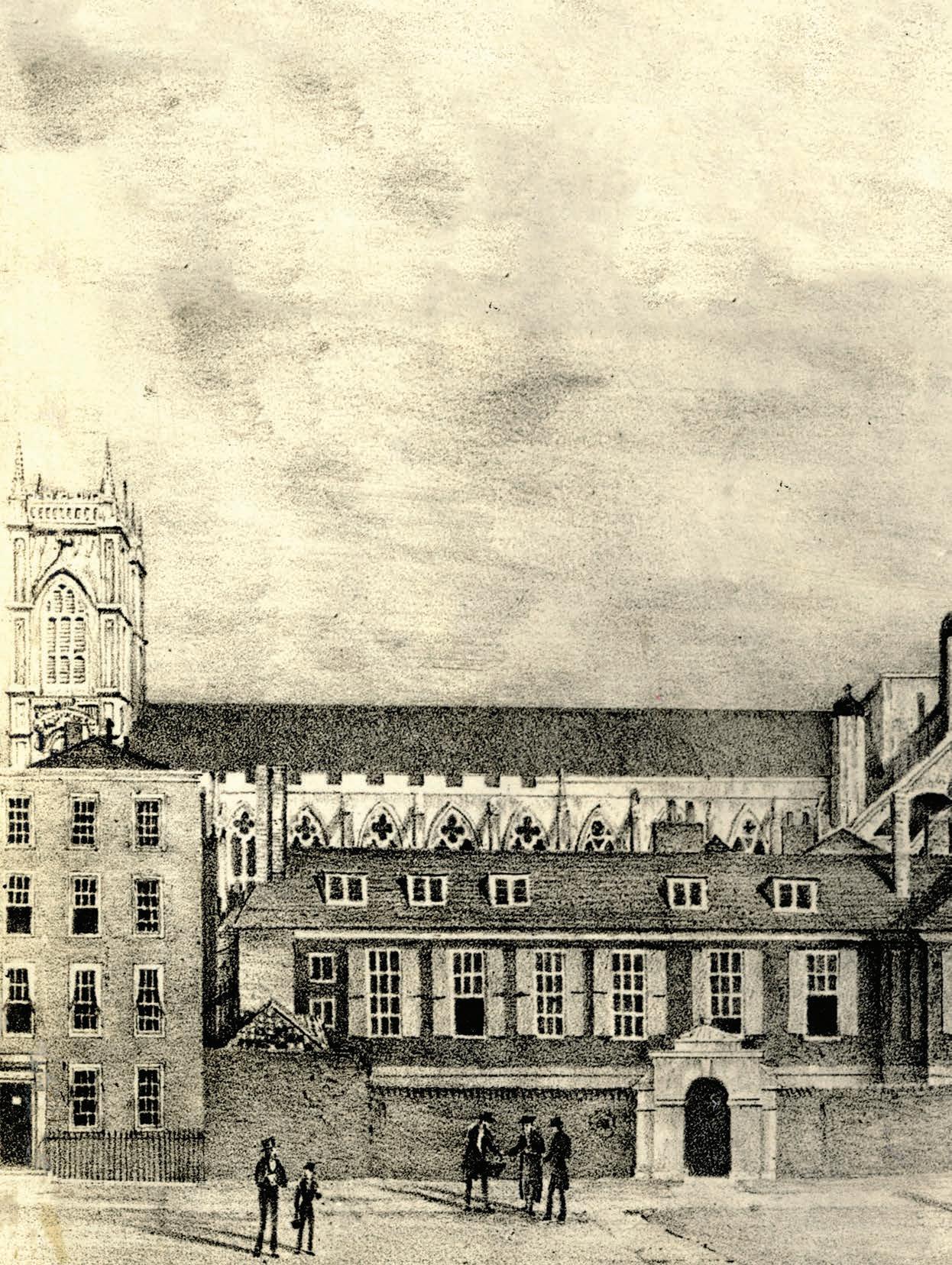
– later occupied and expanded into its current shape by the Ashburnham family and the Monastic Refectory, remnants of which are still visible in Ashburnham Garden. Whilst the kitchen’s rough position was known, the present building project has afforded the first opportunity for archaeologists to work on the site.
Their investigations have revealed a series of kitchen buildings; the earliest finds date back to Edward the Confessor’s Abbey. The kitchen was a large freestanding structure of around 12 metres square, with thick stone walls. There are remnants of a Norman archway, through which food would have been served to the monks in their refectory. Floors were of trodden earth until the 15th century, when there is evidence of a red brick floor, sloping from west to east into a stone gutter for drainage.
Fragments of floor tiles similar to those used in the Chapter House have also been discovered and it is possible that seconds were put to use in the Kitchen.
Following Henry VIII’s dissolution of the monastery at Westminster in 1540, the kitchen was no longer needed, although it may have been used during his daughter Mary’s brief reign. At some point in the late 16th century, the building must have been demolished. A lease assigned to William Ashburnham in 1663 for the former Prior’s House mentions “a piece of ground on the west side towards the school garden”. This confirms that the bulk of the space once occupied by the Great Kitchen was then associated with No. 19 Dean’s Yard, now known as Liddell’s House, but at that point serving as the Head Master’s residence. Later, a boarding house kept by Mrs Playford occupied the south side of the site, until it was demolished in 1847. At this point, a new garden was laid out for the benefit of Henry George Liddell, who had recently become Head Master.
It is hoped that some of the artefacts unearthed will eventually be displayed in the School’s new building, once it has been constructed. Although the excavators, PreConstruct Archaeology, are still processing and researching the items discovered, we can provide a preview of two finds associated with the School. The first items are the remnants of a blue and white dinner service manufactured by Hicks, Meigh & Johnson at the Shelton Pottery, Staffordshire. The fragments found have been re-assembled into five plates each bearing a distinctive and unusual ‘Chinese Landscapes’ design, which was produced in the early 1830s. The service was probably disposed of in the 1850s, but was clearly once highly valued; one of the larger plates shows signs of an earlier repair, with holes for staples on its reverse. We have approached some Liddell’s descendants in the hope that they might have a piece from the service in their possession, and thus confirm our suspicion that the plates belonged to the School’s Head Master, but unfortunately no match has been found.

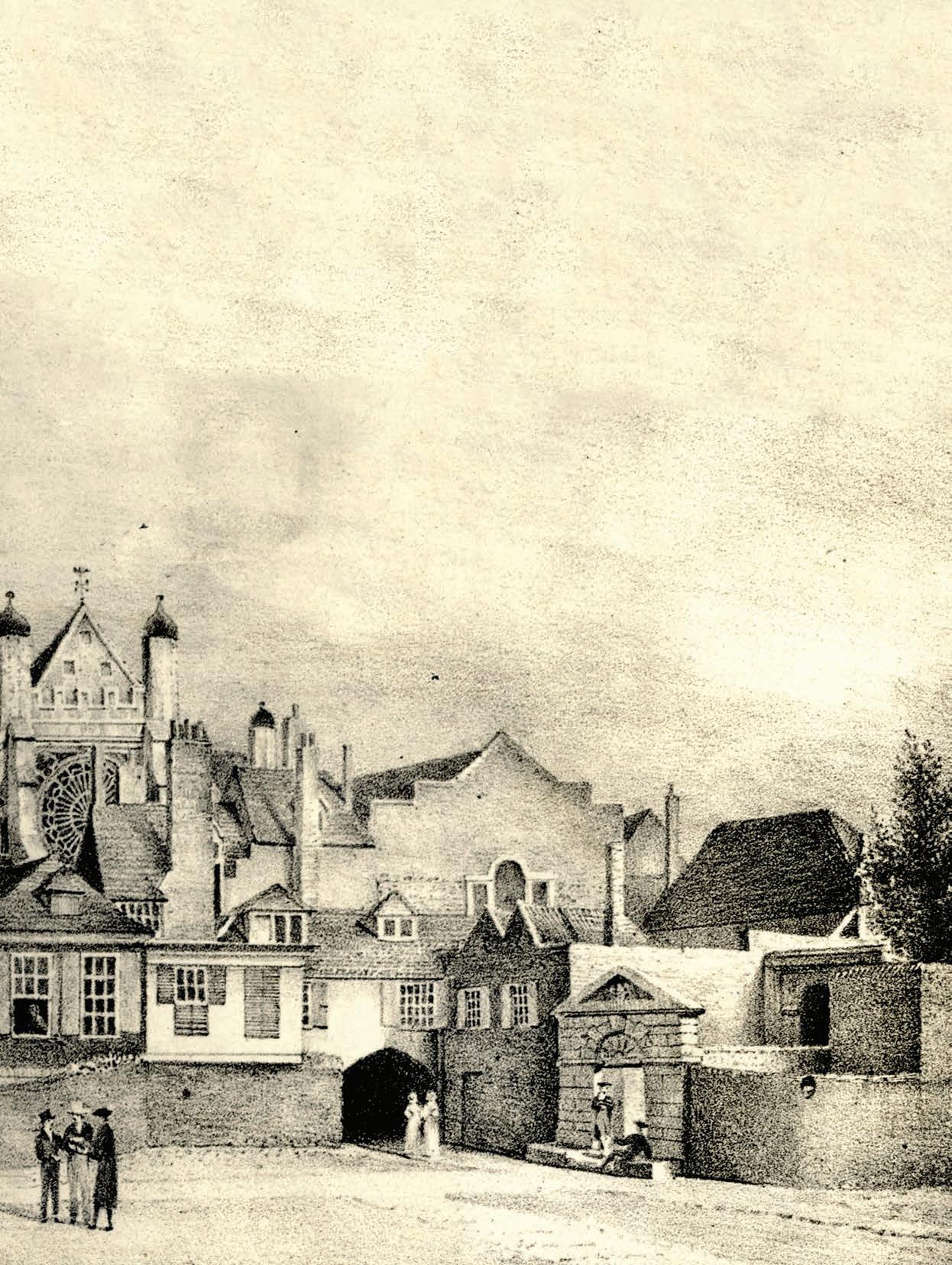

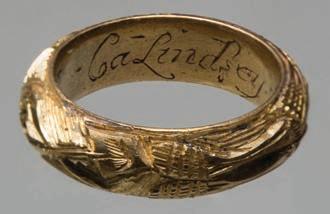
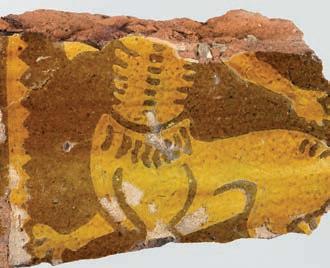
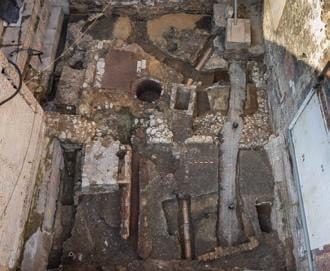
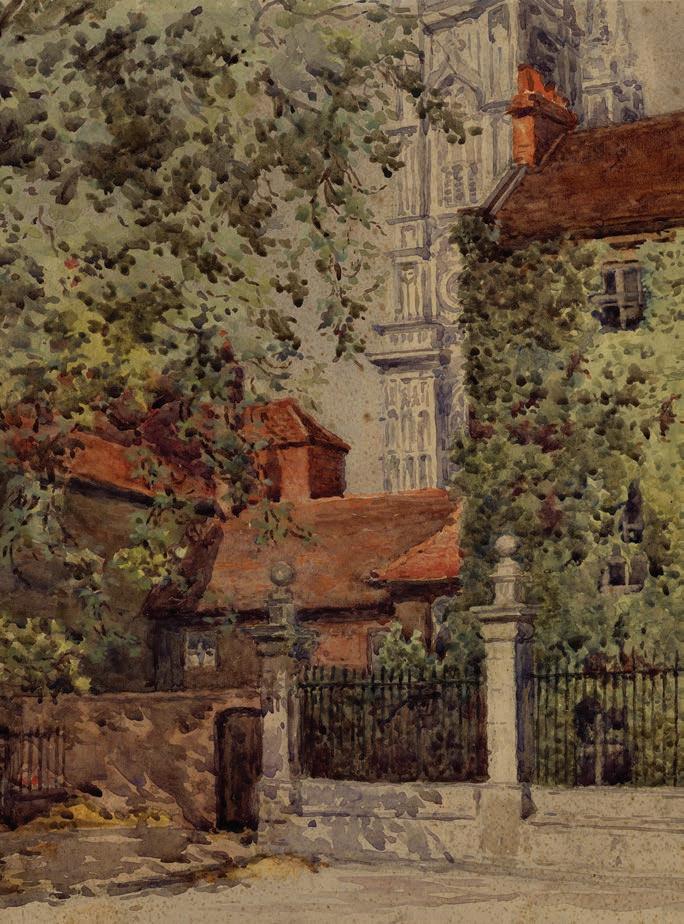
The second discovery is a small gold ring, dating from the early 18th century. On its inside is a short inscription, which indicates that it was a mourning ring commemorating Ca. Lindsey who died in 1722. Some initial research by our archaeologists suggested that the deceased might be Catherine Lindsey, wife of Richard Lindsey, Merchant. Catherine’s burial, alongside her daughter Mary, in the chancel of St Dionis Backchurch, City of London on 21 June 1722 is recorded in the church’s register. Mary was both born and baptised on 10 June and we know from the mourning ring that Catherine was aged just 28 when she died, three days later. Their deaths emphasise what a dangerous event labour could be for
both mother and child in this period. The visible side of the ring is highly decorated and includes an enamel skull, or death’s head, which was a common motif on these memento mori.
Eddie Smith, former school archivist, identified the Westminster connection, suggesting that the owner of the ring is likely to have been one of two Lindsey brothers: William, who was admitted to the School in May 1719, or Richard, who joined in June 1722. The birth and baptisms of both boys also feature in the parish register and we know that they were young when they joined the School, aged seven and nine respectively at the point of admission. Both remained


at Westminster for at least four years. William and Richard were Catherine’s eldest children. When she died, she also left behind three daughters: Catherine, Dorothy and Sarah. In addition to her own offspring, it is likely that Catherine cared for Elizabeth Lindsey, a surviving child of Richard’s first wife, Lucy, née Scrivner, who died in 1708. Richard married Lucy in 1697, and their five other children together all died in infancy.
We lose track of the boys, William and Richard, once they leave Westminster. Their father died in 1734, and his will left land in Choston [Chediston], Suffolk and all his personal estate to be divided between Catherine, Sarah and Dorothy to ”share and share alike”. As neither of the boys are mentioned in this document, I initially assumed that they had predeceased their father. However, there is one final mention of William, who was granted probate of Dorothy’s estate, as her next of kin, when she died a spinster in 1740.
The brothers would almost certainly have boarded at the School and likely lived in Mrs Playford’s house. The ring could have been lost playing in the yard behind the building, or have fallen down a drain – there were a number of out-houses in the area marked on a contemporary plan. Both boys were young when their mother died, and the loss of this valuable object connecting them to her must have been distressing. Its rediscovery has provided insight into their family life, and we hope to discover more with further research.

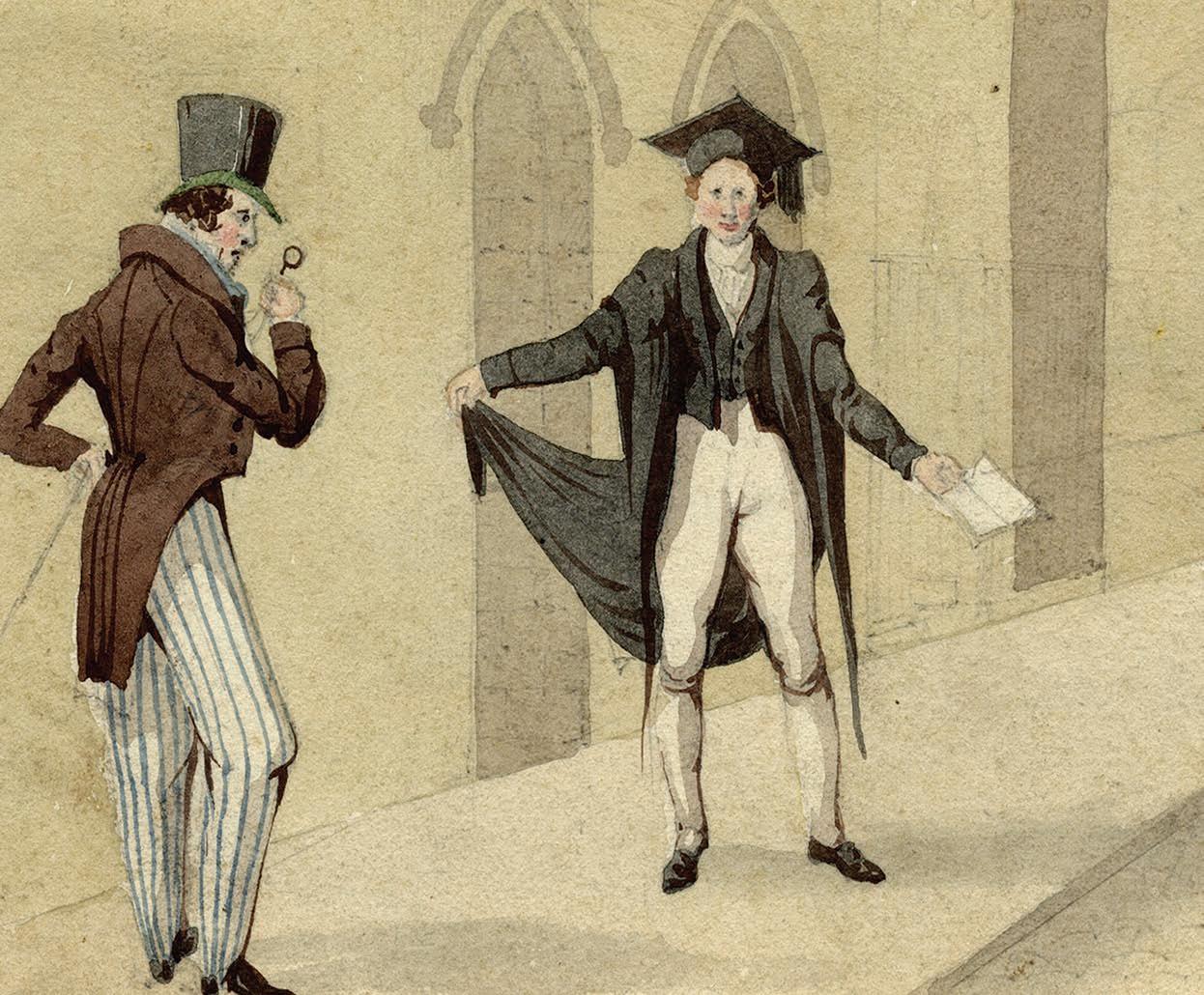
Three Fifth Form pupils, inspired by the plethora of school colours around them, were keen to know which of the School’s 11 houses was the first to have a house tie, so Elizabeth Wells and Tom Edlin set out to investigate...
Initial research indicated that ‘the modern necktie emerged around 1860 when men began knotting their scarves like the reins of a “four-in-hand” carriage. The first “club tie” appeared in the 1880s when the Exeter College rowing team removed the striped bands from their hats and tied them around their necks. So, when did Westminsters adopt the new fashion?
The first port of call was to examine the School’s photographic record. Our earliest house photographs do show the pupils from Grant’s, Rigaud’s, Ashburnham and Homeboarders wearing neckties in the 1870s and 1880s. As the images are in black and white, it is difficult to identify colours, but it is apparent that a range of shades and patterns is on show. It seems unlikely that these ties represent ‘house colours’ or sporting
colours, known as ‘pinks’. It is more probable that at this early stage ties were unregulated.
In June 1892 the topic was addressed by an Elizabethan editorial entitled ‘On Dress’. Looking back at a photograph taken a mere decade earlier, the author expressed shock at the sight of ‘a young and apparently healthy Town Boy wearing an Eton jacket of liberal cut and superfine gloss, and underneath it – proh pudor! – a coloured waistcoat. A coloured waistcoat!’ He confirms that pupils had since become ‘convinced of the dignity of dark clothes—sub-fusc., in academic phrase’ and concludes with a diatribe about the ‘heinousness of colour in [ties].’ This trend appears to have been formalised from at least 1901, when a school prospectus notes that: ‘Dress shall be simple, without
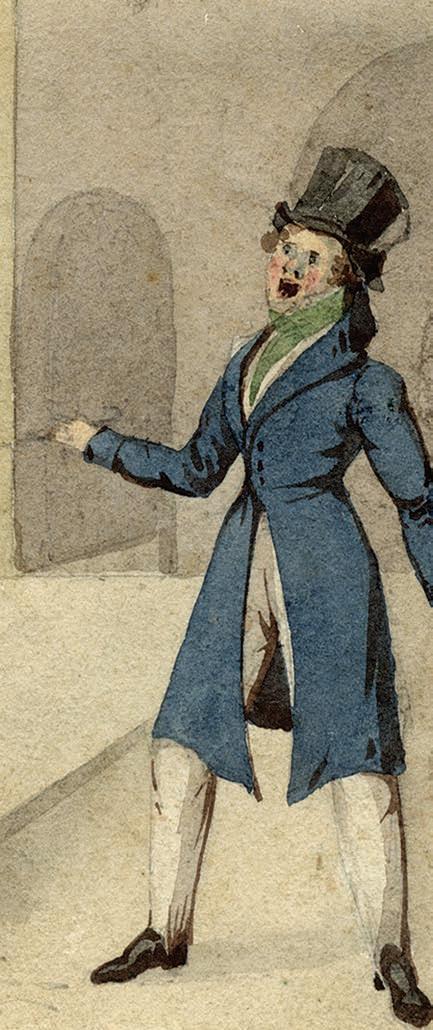
bright colours. White shirts, black neckties, and tall hats are worn by all; and Eton jackets and collars by juniors.’ Of course, one of the great difficulties in researching historic costume is that textiles rarely survive. At Westminster we are lucky to have a small collection of clothing, some of which was recently conserved by students at Glasgow University. Items treated included some striped and coloured square neck-ties. However, they were found to be of synthetic fibres and therefore date from the mid-20 th century. Our collection of more traditional-style neck-ties date from the 1990s onwards. We have a full set from the past 30 years, which TPJE has identified and labelled. In addition to house and sporting ties, there are now a large number associated with other school societies and activities, from the ground-breaking general knowledge

tie featuring owls holding the key of knowledge, to the crossed gavels of debating and the of-its-era Environmental Society design.
Even within this set of recent samples, though, there has been change afoot. Since a slightly opaque conversation with then Head Master Stephen Spurr in the Common Room nearly a decade ago, TPJE has been ‘Master i/c ties’ and taken on a few sporadic (but necessary) corrections and redesigns. House Seniors from Rigaud’s and Liddell’s have been returned to their authentic pre-2000 ‘blocks’ of colour rather than the unappealing triplestripe, while Liddell’s Inters and Juniors have revived the House’s full colour scheme. The Hakluyt’s ties have been converted to the proper scheme of ascending stripes in the true House colours (Leicester City blue and Malaysian yellow, as the first HH Housemaster Dave Cook stipulated!), with the phasing out of the anomalous red and black stripes in the Inters and Junior ties. College has gained a proper set of Lower School ties for the first time, and the precedent of the ‘Grant’s Blue’ as a full-colour
tie has now been followed by others, with the Dryden’s Scarlet arriving to some acclaim, the Ashburnham Turquoise to muted consternation, and the Rigaud’s Full Orange to considerable horror all round.
The expansion of ‘full colours’ for co-curricular activities has also inspired new designs for chess, bridge, MUN and – most recently –bellringing. Requests for new ties regularly surface, and an uneasy ‘policy’ of sorts tries to exercise some control with the principle that societies linked to specific academic departments do not all get a tie. Limited space in the school store and the fact that tie orders need to be of at least 50 to be economic have meant that Mrs Lancaster has been known to groan when the ‘Master i/c’ appears with another new design... though an attempt has also been made to revive the purchase and wearing of some semi-forgotten ties which are still very much in stock, notably the ‘out-of-season’ full and half pinks ties, the latter being probably the finest design of them all (a zig-zag pink stripe on black...)
Ties, Ties, Ties continued
Having hit a dead end with the investigation of actual ties in the collection, ECW decided to approach the problem from a different angle, and instead investigate ‘house colours.’ We knew that house colours must have been in existence for some time, as when Busby’s was created in 1925, colours were selected at the point of foundation, inspired by a dining room carpet belonging to the first Housemaster. Later founding Housemasters also played a major role in picking colours, often with a theme in mind; the Milne’s colours in 1997 were the yellow and red of Winnie-the-Pooh in his [Disney] jersey, once the suggestion of mini Poohs had been vetoed on the grounds that House ties need to be stripes... The first mention of the award of house colours occurs in The Grantite Review in 1884, and the ‘house notes’ section of The Elizabethan regularly records their award from 1894 onwards. At this point colours were awarded exclusively for sporting achievements.
The need for house colours appears to have derived from the increasing popularity of inter-house sports. In cricket and Water, distinguishing between opposing teams was not difficult, but in football errors could easily occur. Initially, house identities were not strong and the main form of division was between Queen’s Scholars and Town Boys (non-scholars); the former generally wore blue and the latter red, though without colour-fast dyes this really meant pale blue for the scholars and pink for the rest, explaining the origins of our main school colour. A Grantite vs. non-Grantite game took place in 1857, and boys in the Rev. B. James’ House (Rigaud’s) occasionally played as a unit in the 1860s. Dale’s, a boarding house that had a brief existence in Barton Street, was founded in 1878 as the School grew in numbers. Later that year, the
Town Boy Ledger records that
”Dr. Scott [the Head Master] has given permission for the house elevens at cricket & football to wear caps of distinguishing colours. The caps for College are to be dark green and light blue, for Grant’s, chocolate & light blue, for Rigaud’s, black & orange, & for Home Boarders [now Wren’s] crimson and light blue”.
These are, of course, with slight changes of shade, exactly the colours those Houses still wear. Caps are no more, but in 1997 – nearly a century after the idea of distinguishing jerseys in house colours was first mooted –the t-shirts for house competition finally arrived. The need to ensure the main colour of each was distinctive,
to ensure clarity in any house fixture, did have one unfortunate consequence: although most Houses got t-shirts in the ‘house tie colours’, a few were anomalous. The Wren’s t-shirts could not be pale blue (taken by Grant’s) or mulberry (Busby’s), so were black with bright pink lettering, while Milne’s could not be scarlet (Dryden’s) or yellow (Liddell’s) so was left with a compromise bright orange. The pale blue ‘Liddell’s’ on the yellow t-shirts also moved away from the ‘real’ house colours, and as t-shirts have been ever more visible in school life, some confusion has developed over what the ‘true’ colours are.
The answer is that ties are always the answer...

Lady Mildred Burghley, née Mildred Cooke, was a formidable figure. Today she is little known, at least when compared to her husband, William Cecil. However, she played an important role in England’s history.
Born in 1526, Mildred was daughter to the humanist scholar Anthony Cooke. She had four brothers and four sisters, each home-schooled under the watchful eye of their father. All of the Cooke children were versed in Latin and Greek. Roger Ascham, tutor to Elizabeth I, ranked Mildred Cooke’s education alongside the tutelage he provided to the royal family. With this grounding, all of Mildred’s siblings went on to involve themselves in politics. As the wife of Elizabeth I’s Chief Advisor, Mildred played a particularly crucial role.
Mildred committed herself to the Protestant cause early in her political career. She often acted as de facto emissary between the Protestant lords of Scotland and England, having been privy to negotiations concerning the Treaty of Edinburgh in 1560. In addition to this more direct political role, she patronised a number of establishments in order to sway individuals to the Protestant cause. She provided scholarships at Cambridge, and supplied a selection of books to Oxford. Westminster School, now re-founded as a Protestant centre of learning, was of keen interest to her, and she donated items from her own library.
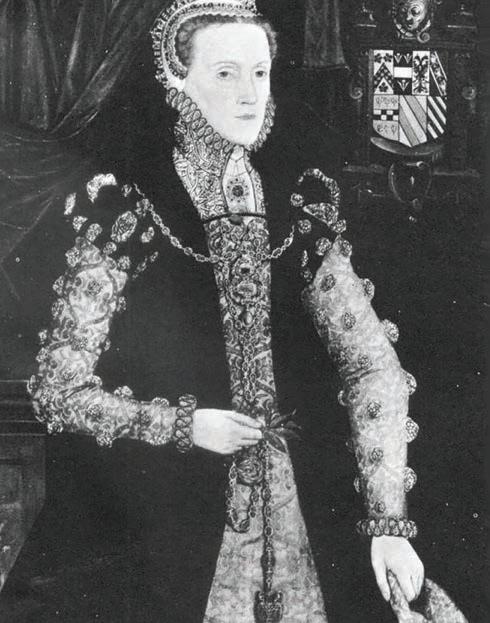
One of these books, a bound copy of Aeschylus’ Tragedies, written in original Greek with an introduction in Latin, is still held by the School. Mildred Cooke took a substantial interest in translation and produced several adaptations of Latin and Greek texts, of which sadly few survive. The copy held by Westminster School is, unfortunately, not one of these translations, but it is nevertheless littered with annotations and miscellaneous notes, some perhaps in Mildred’s own hand.
Her widely respected intellect and status afforded Mildred an uncommon position in international politics. While there is debate regarding the role of noblewomen in the Tudor political sphere, especially on an international scale, there are a number of confirmed incidences where Mildred Cooke is cited by name. The Portuguese ambassador approached her directly in 1562, seeking to ensure her family’s support for the furtherance of Portuguese interests in court. Four years later, the Spanish ambassador spoke of Mildred Cooke’s involvement in marriage negotiations between Elizabeth I and Charles II of Austria, and in 1577 she was touted to act as intermediary between Elizabeth I and the Queen of Denmark.
Mildred Cooke passed away on 4th April 1589. She was buried in Westminster Abbey, alongside her daughter. Their burial site is marked by a Corinthian tomb, well over 20 feet high, and effigies of both women are still clearly visible. Although Mildred did not publish any of her own translations, three books were dedicated to her throughout her lifetime, and she came to possess many more, creating what has been referred to as “one of the finest private libraries” of the era.
In 1594, Mildred’s husband William Cecil had issued what are today known as the Burghley Indentures, a legal document which redistributed proceeds from land tenancy in Oxfordshire, with a view to funding tuition for pupils at Westminster School. While this could have overshadowed Mildred’s donations and her support for Westminster School, her dedication to England’s educational establishments has not been forgotten. Today, both Mildred Cooke and William Cecil are remembered annually, at the School’s Commemoration of Benefactors.
1 Q ueen’s heir, apparently switches sides to what HM wants! (5,7)
6 Westminster slang is on the increase! (2)
9 L ines as the last five in Rigaud’s go missing after i nvolvement in afternoon commitments. (10)
10 Philosopher lacks energy to bolt. (4)
12 Joke about rubbish order from teacher. (6)
13 Frequenter of station at Putney? (5)
15 A lmost concealed identity: a part of s chool unmapped, perhaps? (9)
18 Panic in the MFH! (5)
19 Working girl has no right to be an OW! (5)
20 Mocking Wren’s, Rigaudite yells at first. (3)
21 Jaguar Head lost has new conductor, s ometimes. (1-4)
23 Writer almost played on here... (5)
24 L atin to open up at end of Play Term. (6)
29 OW renegade held architect hostage. (4)
30 Hot Rod is into a good beer – but lacking t he French sexual desire. (10)
31 “ Help nobody! Alright?” (2-2)
32 D runken Dave: live at Latin Prayers. (2,2,6)
1 O ff games and on the street, being this? (4)
2 Dean’s upward carriage. (4)
3 W inning rules, no good for riding lesson. (7,5)
4 Fool one girl with no time. (5)
5 A refuge outside school. (9)
7 I mpassive eco-freak with PD is a mess. (5-5)
8 Follow sport! Why? I’ve heard it’s old a nd tired. (3-5)
11 Simple hideout for English poet. (6)
14 Worn by QSs when they retire? (10)
16 P ut an end to new drug, b efore Study Skills are nearby. (9)
17 E ngrossed at home with RED, t aking in program. (9)
22 Tutor lacks alternative option to show disdain. (3)
25 Very Irish part of Abbey service. (5)
26 Reminder that the first five in D ungeons go free. (5)
27 P rimarily a sixth-former is asking for Gap Year plans, possibly. (4)
28 New Undermaster is a legal scholar. (4)

